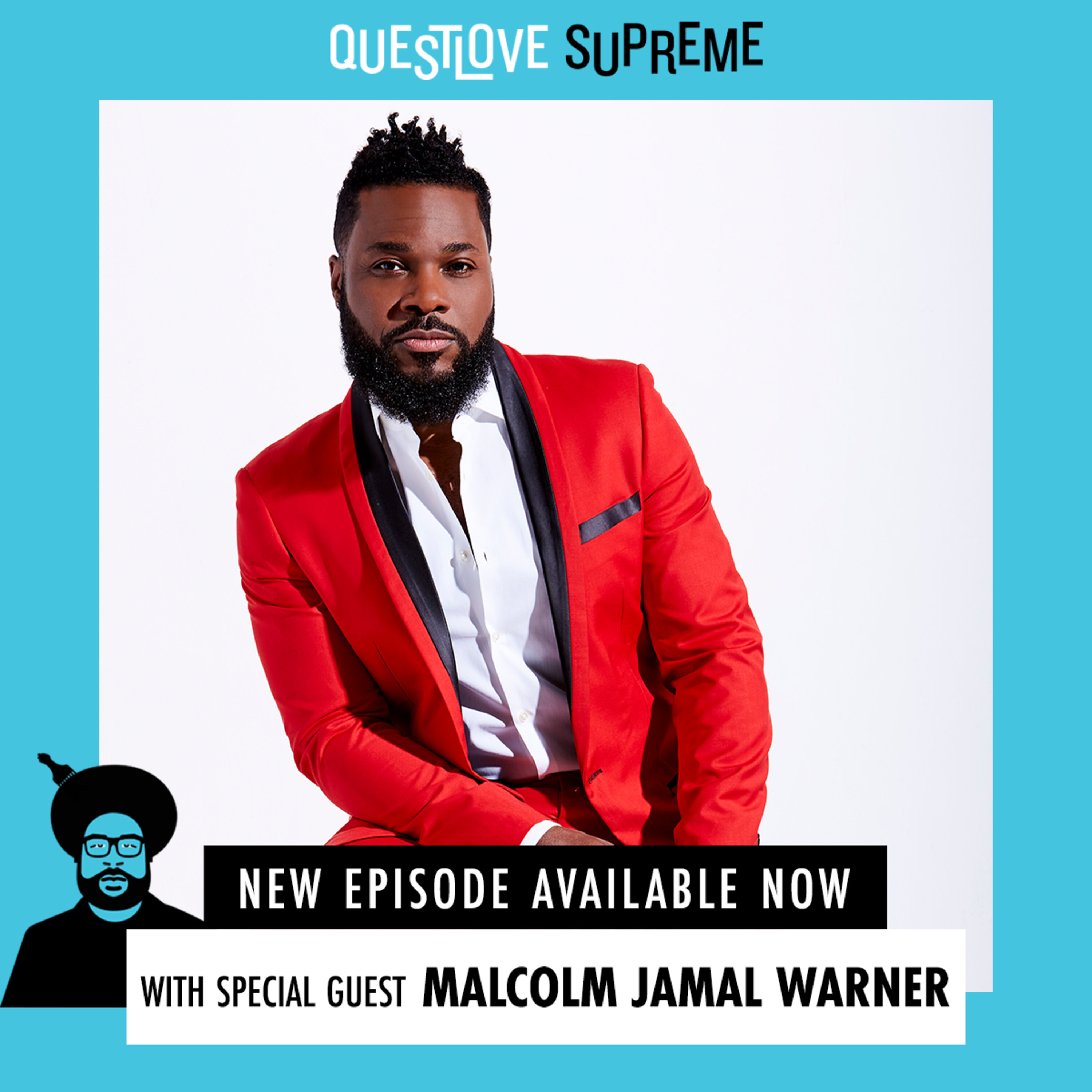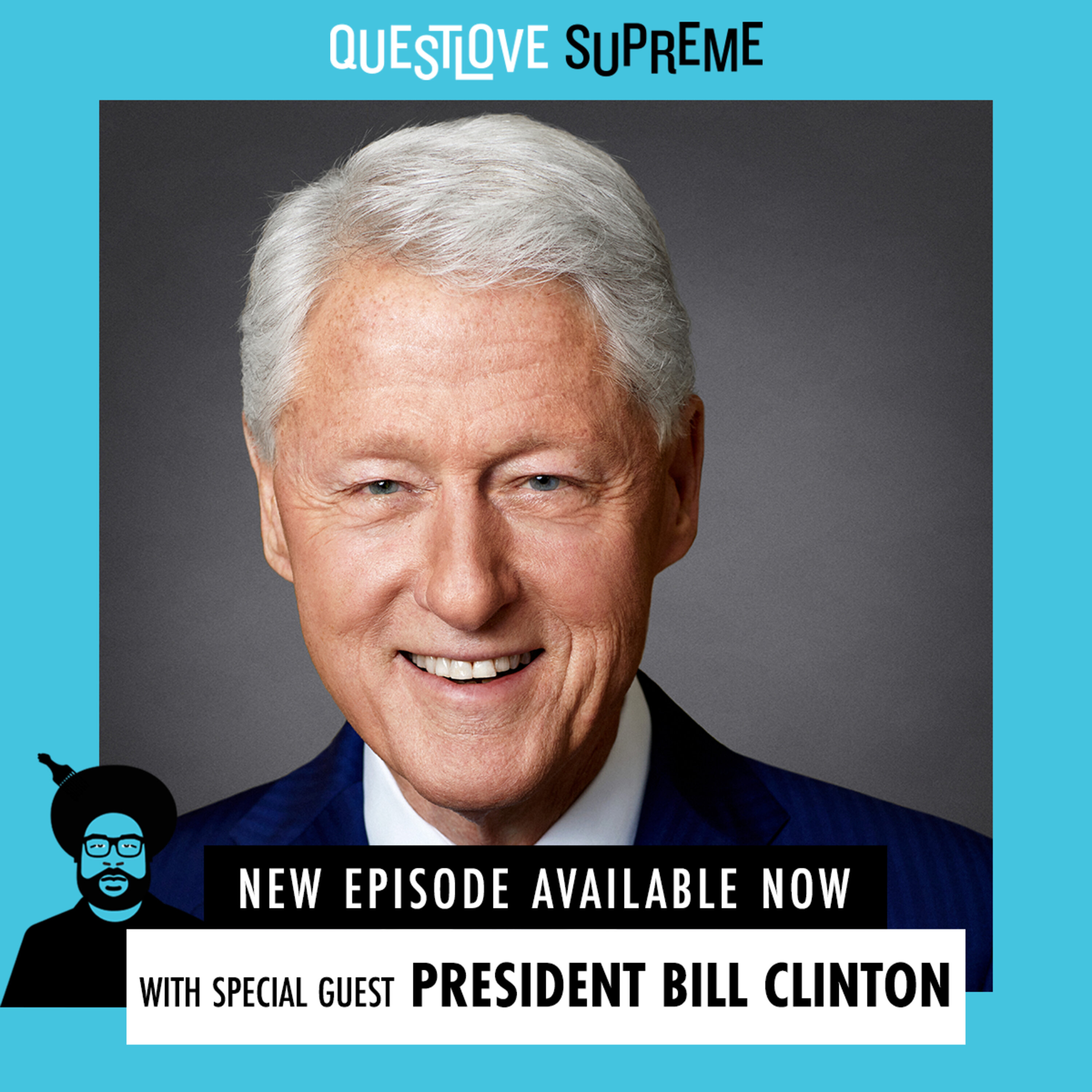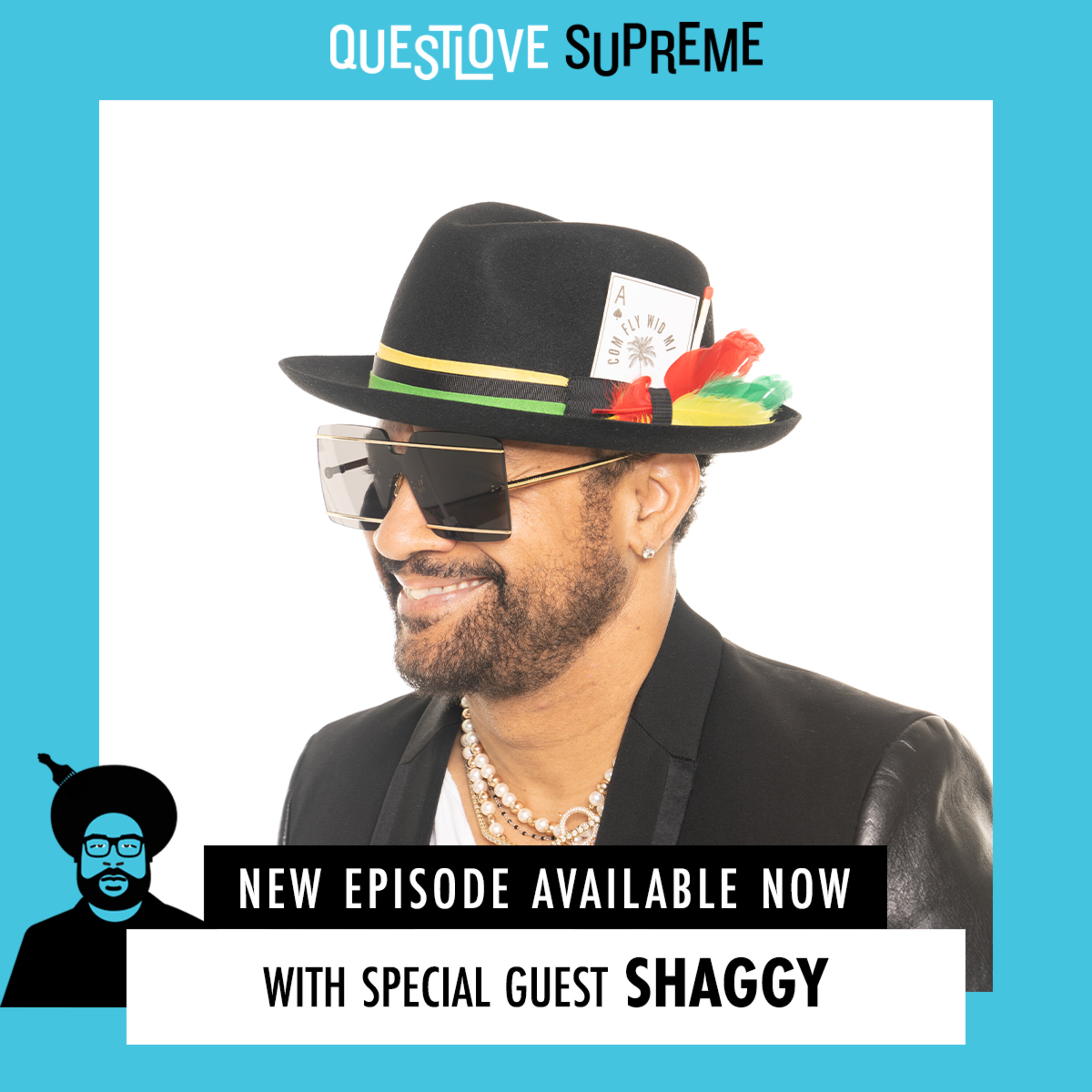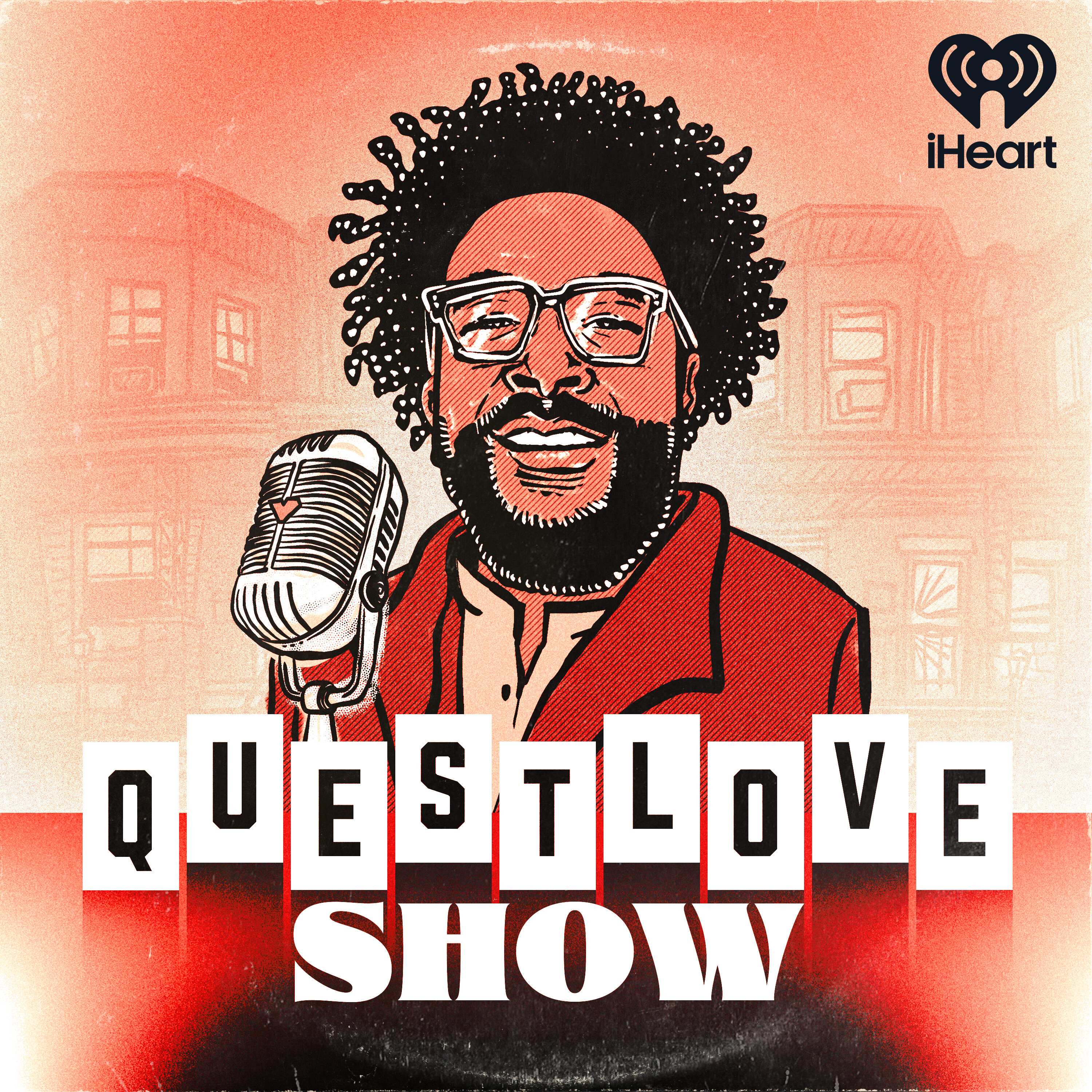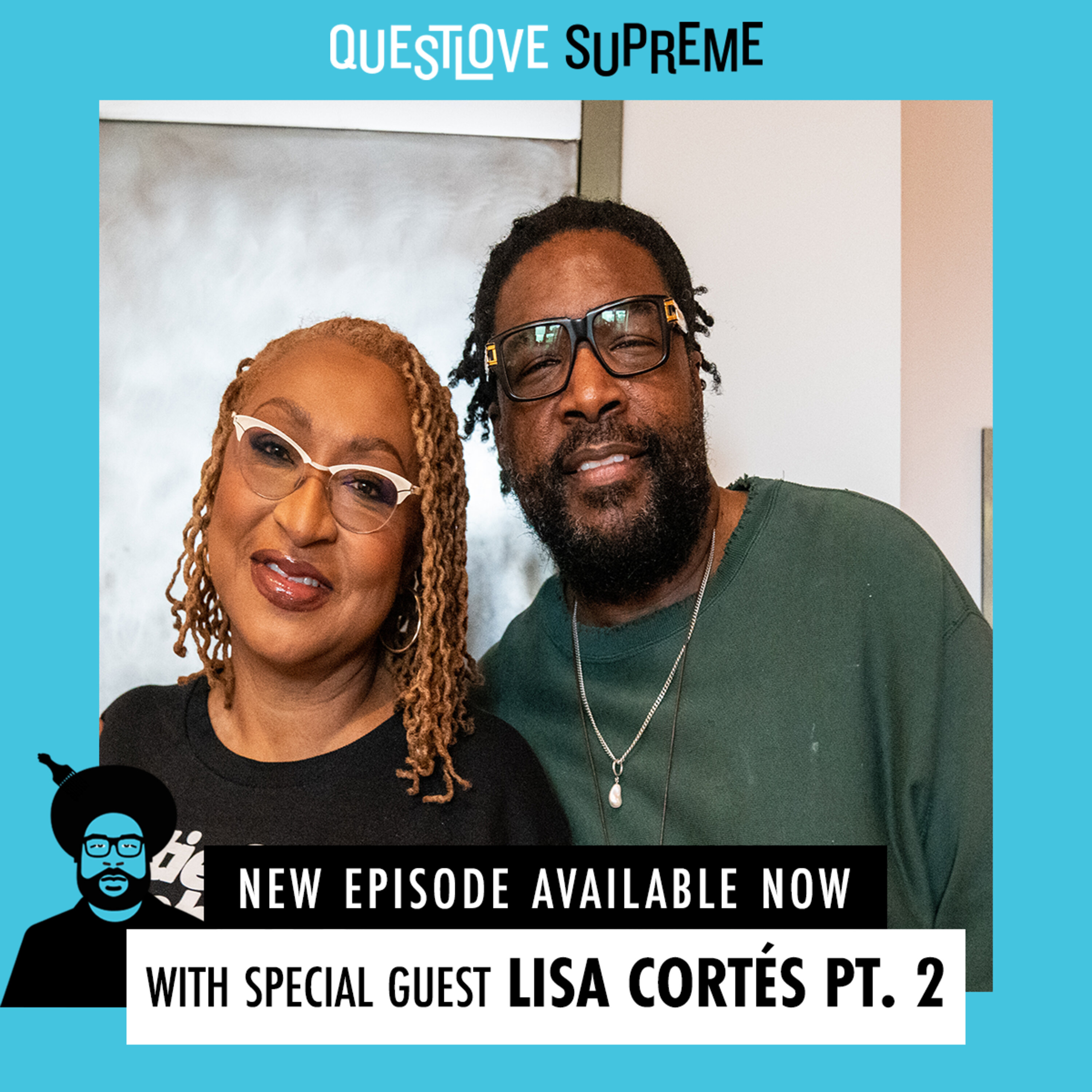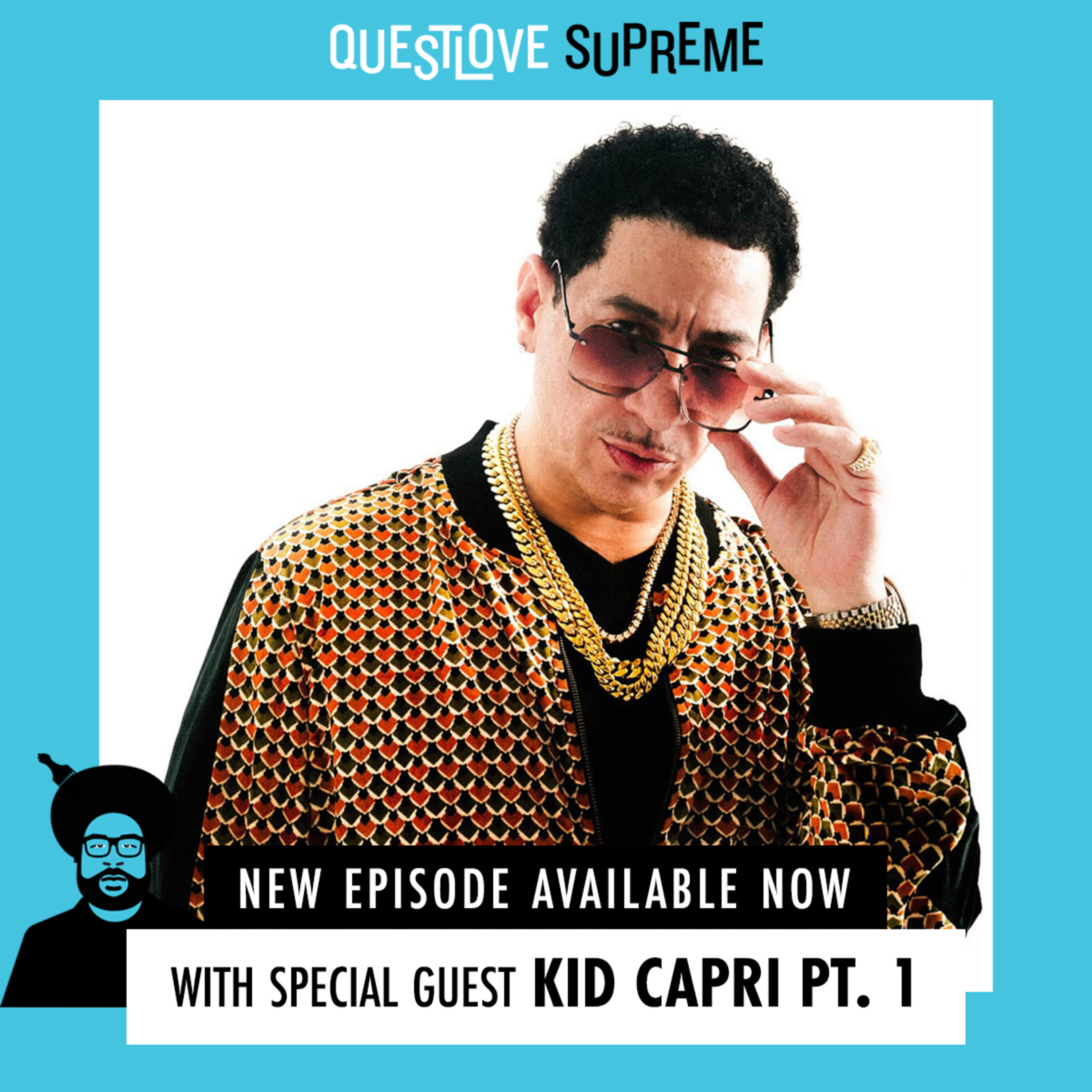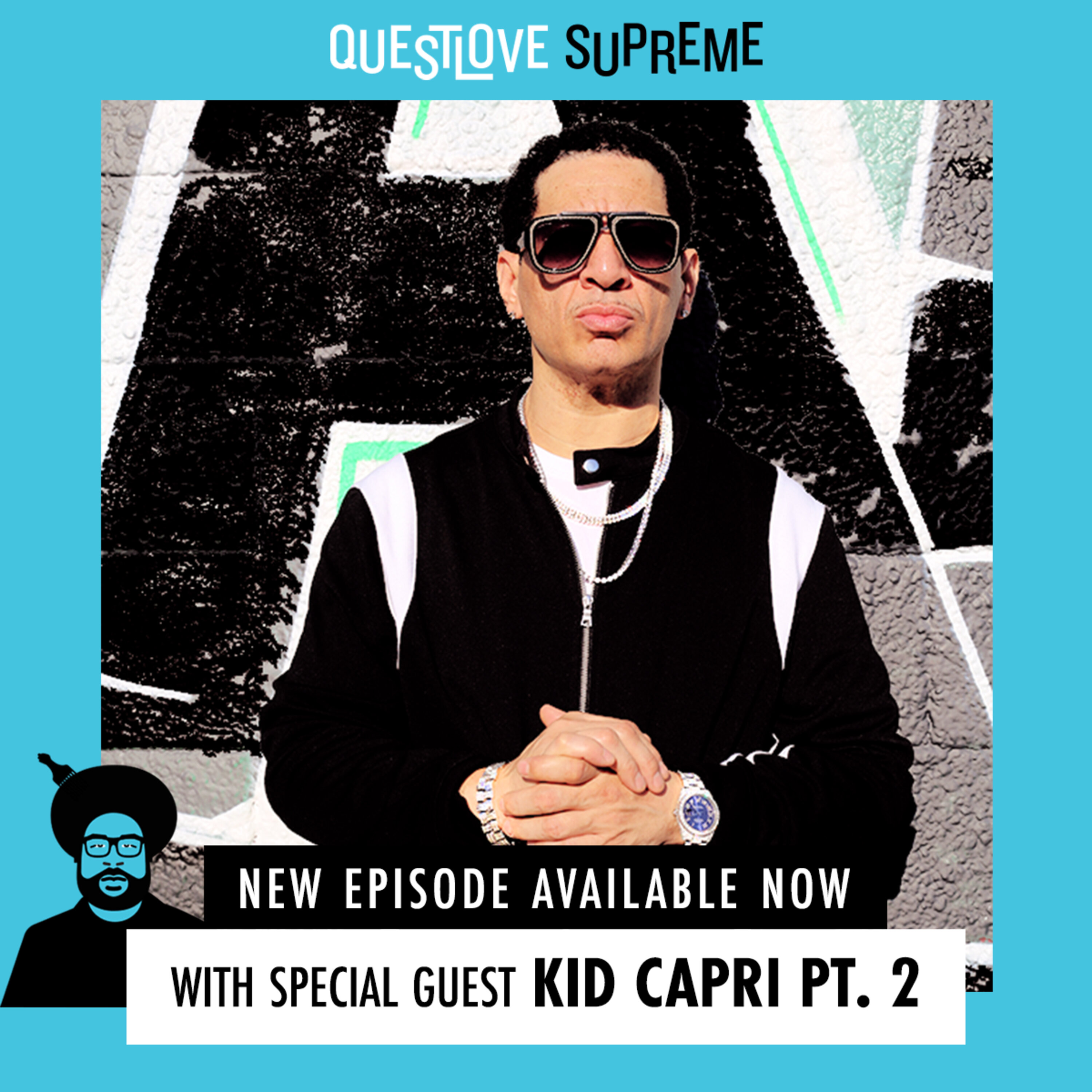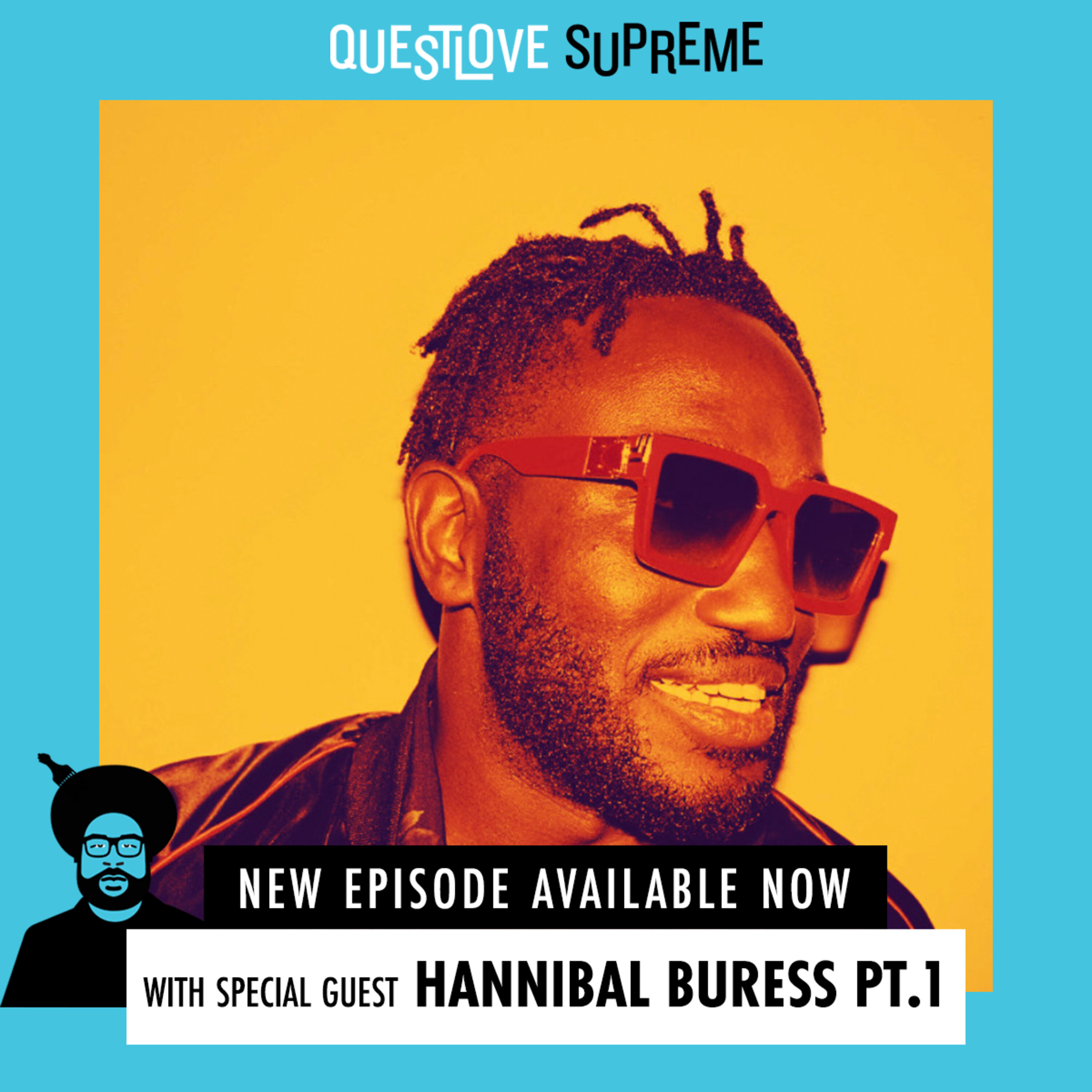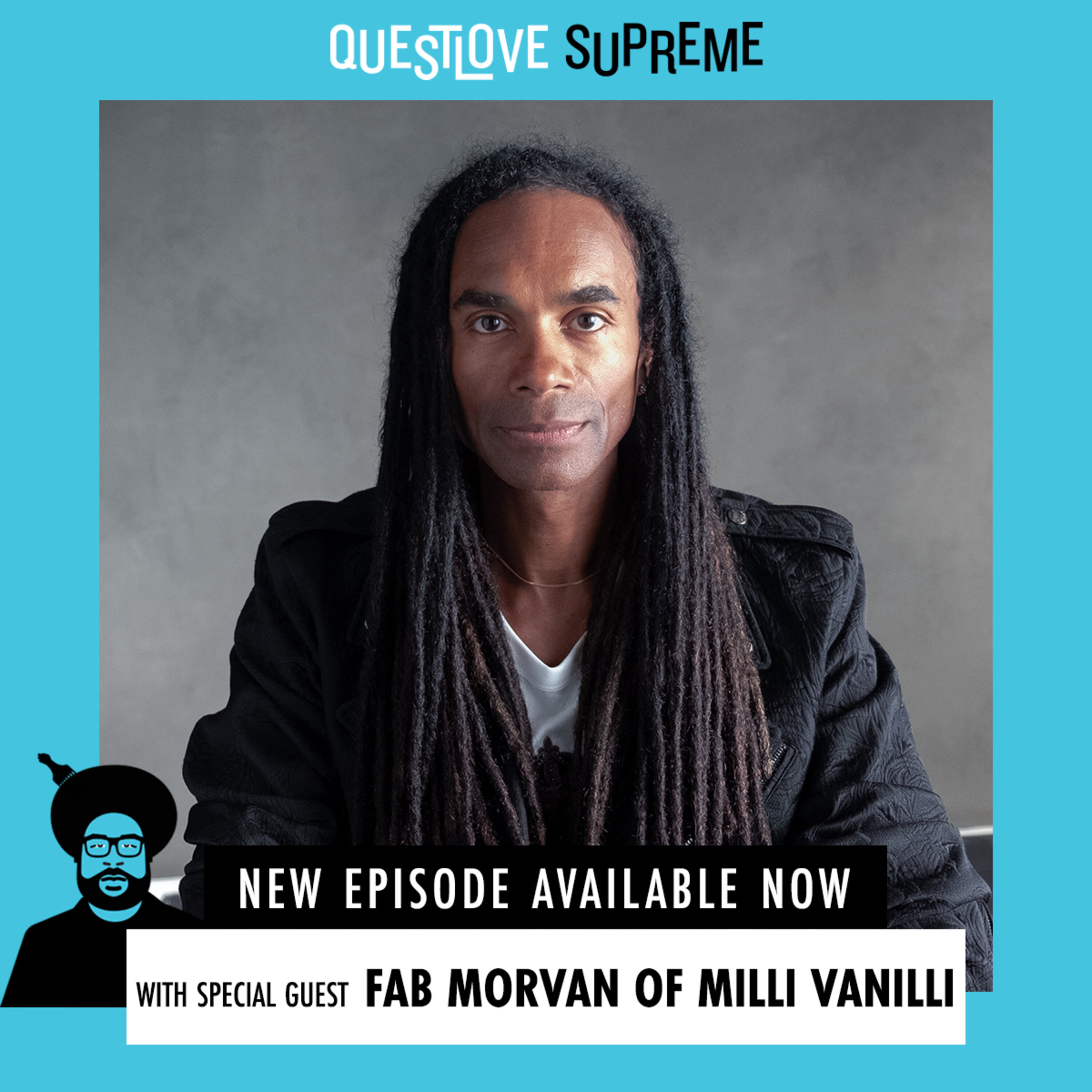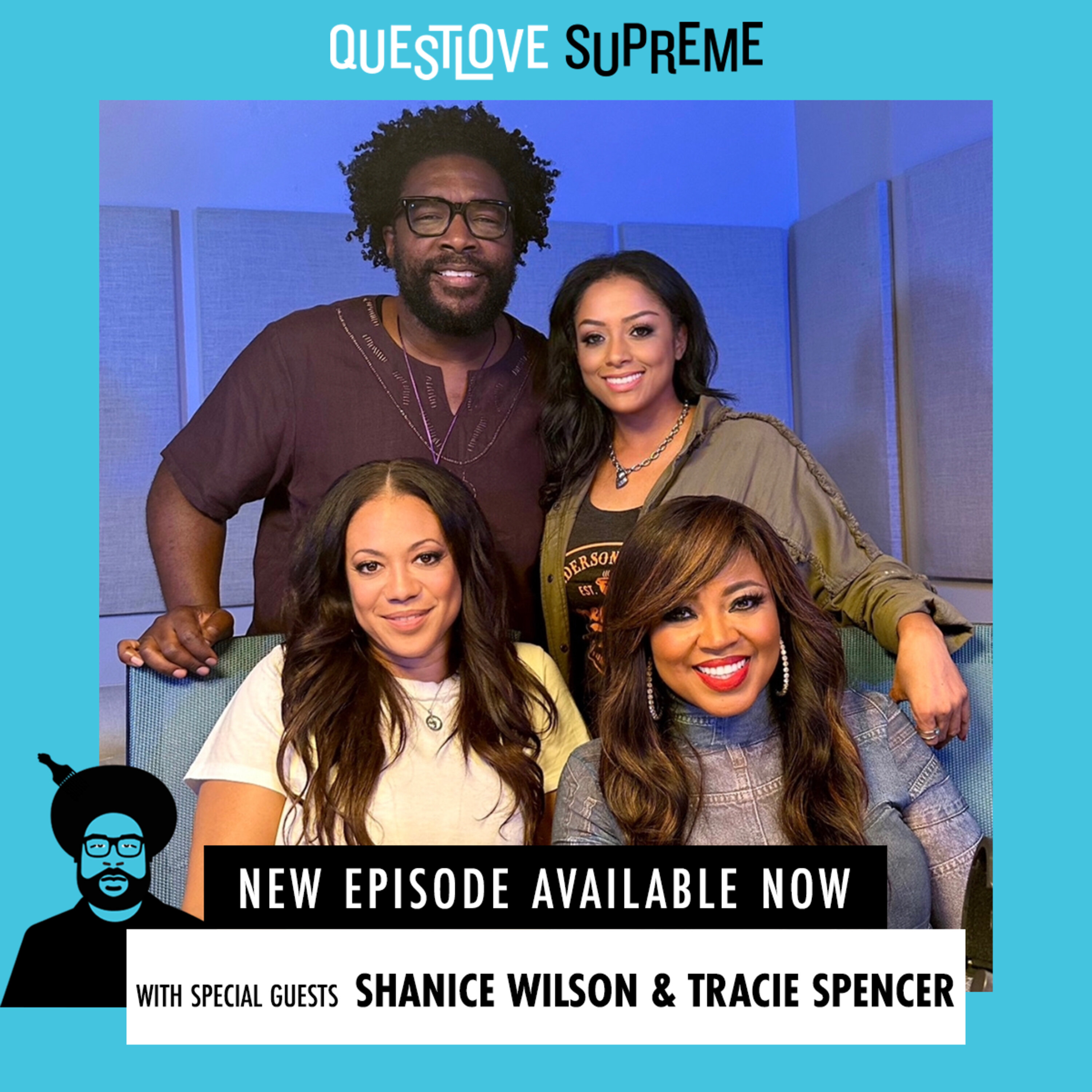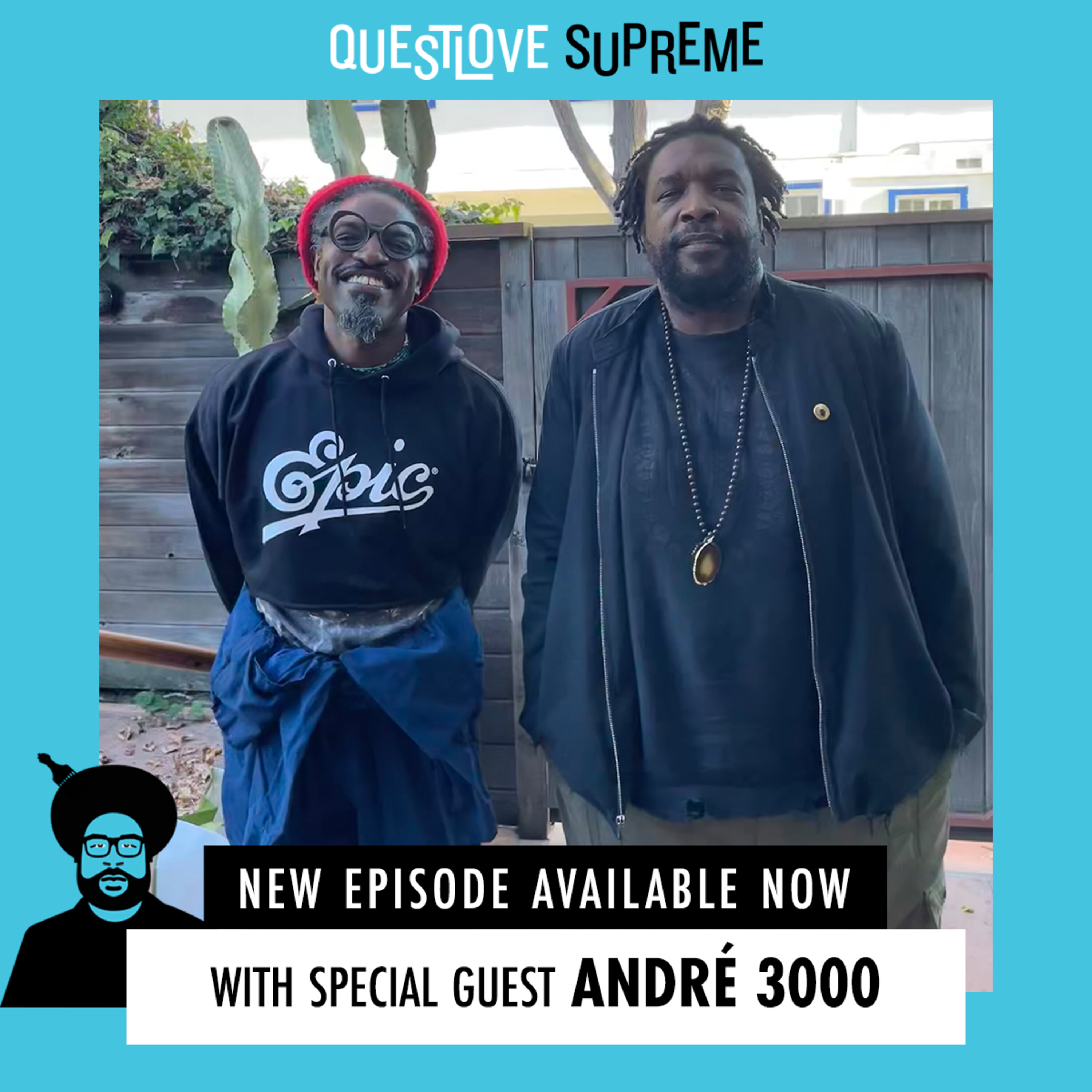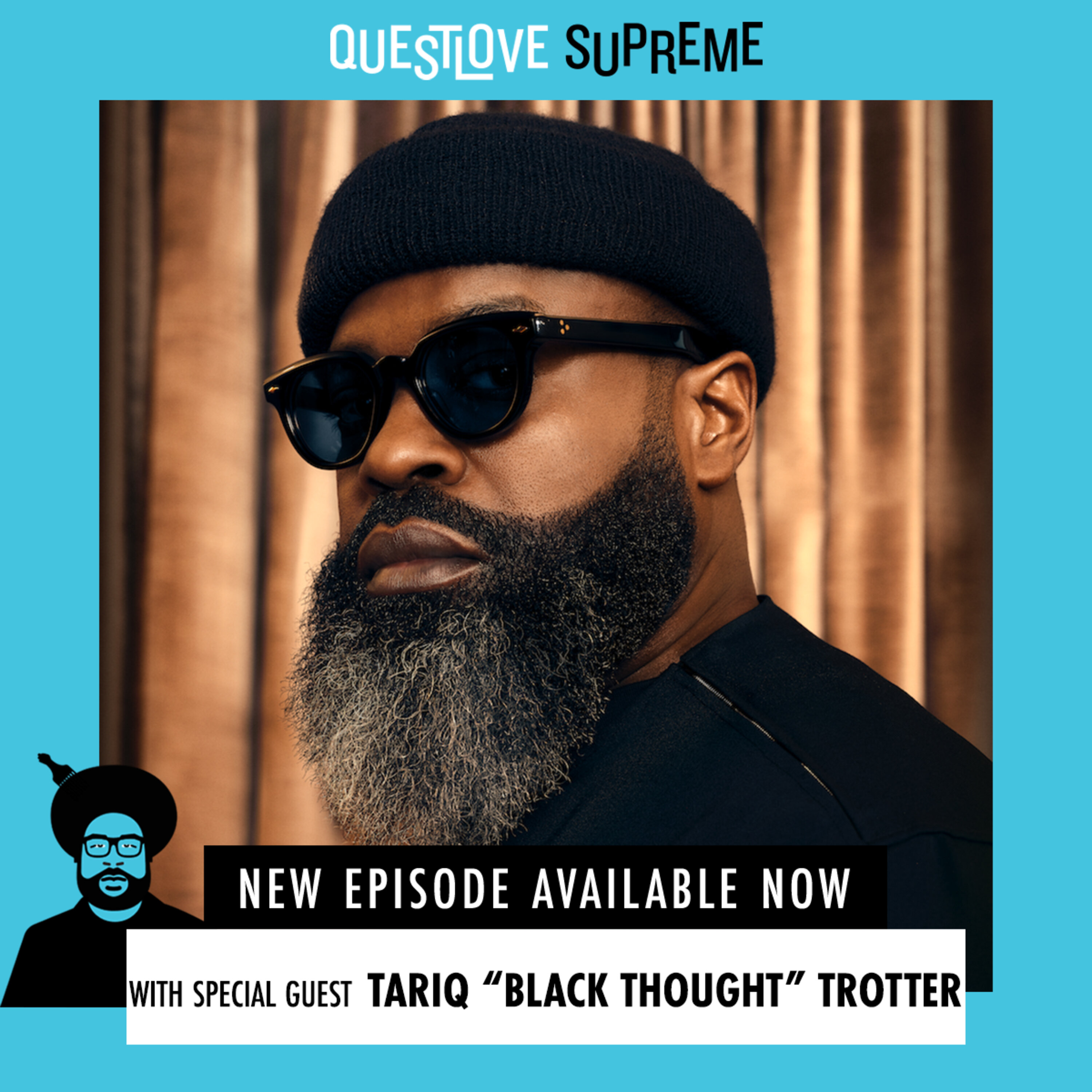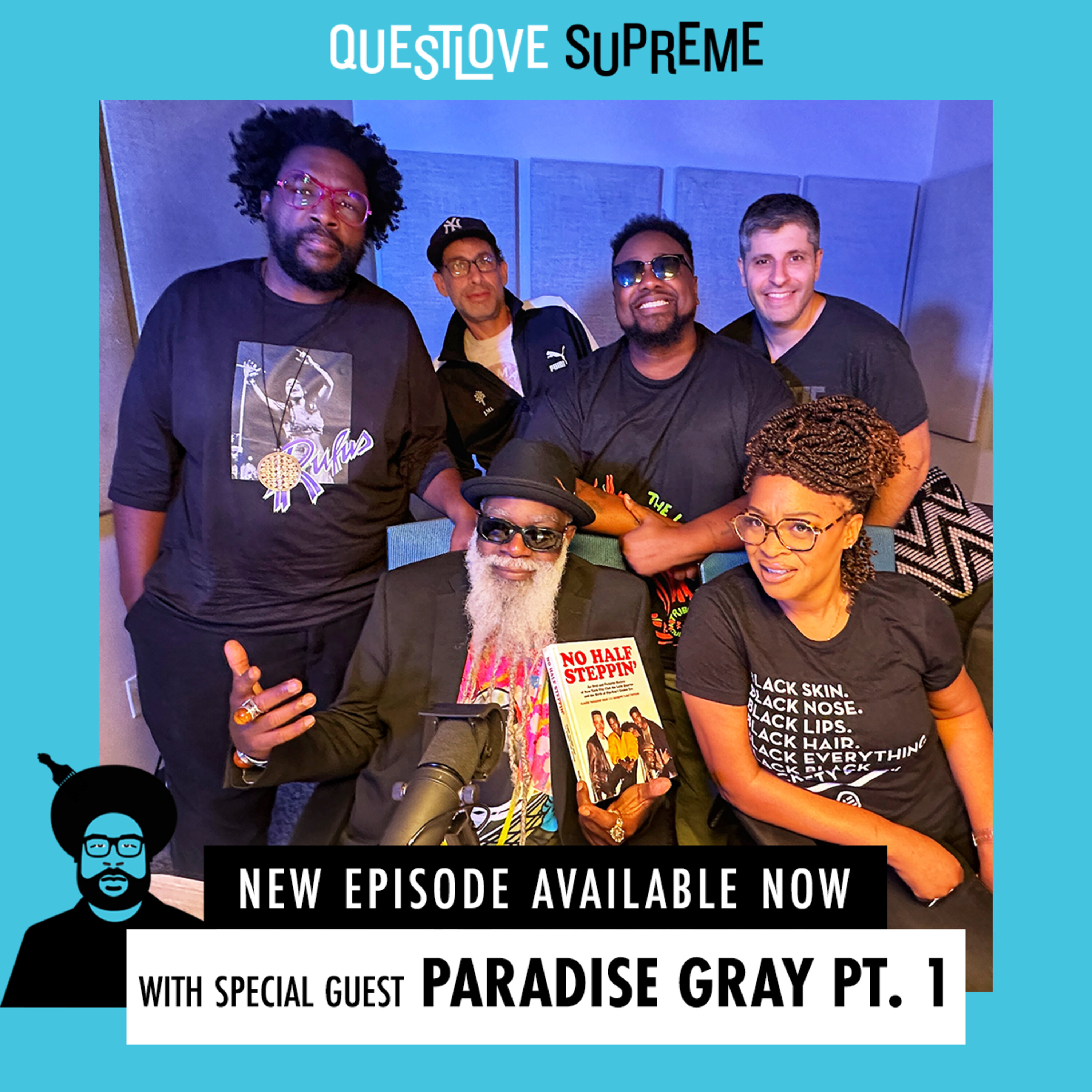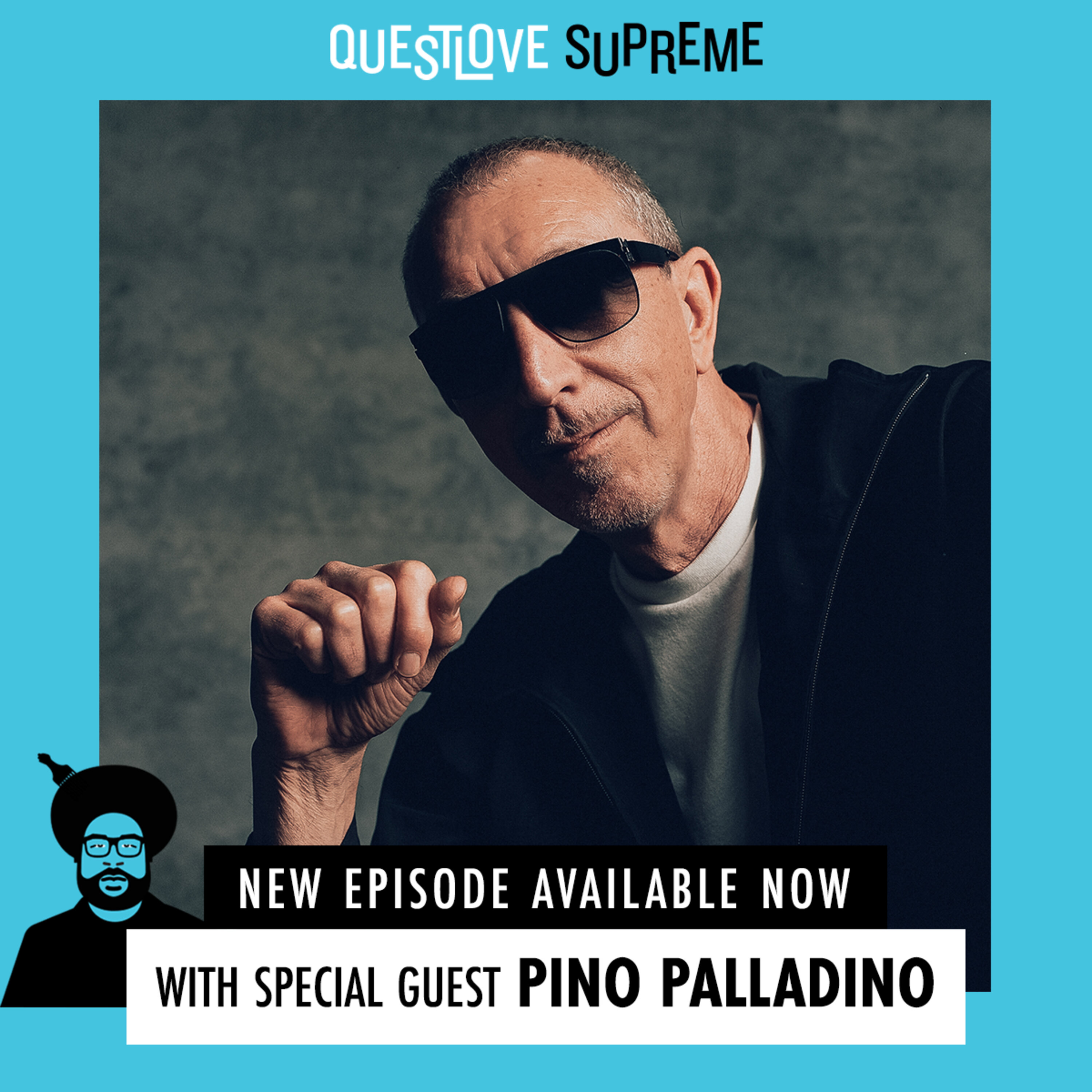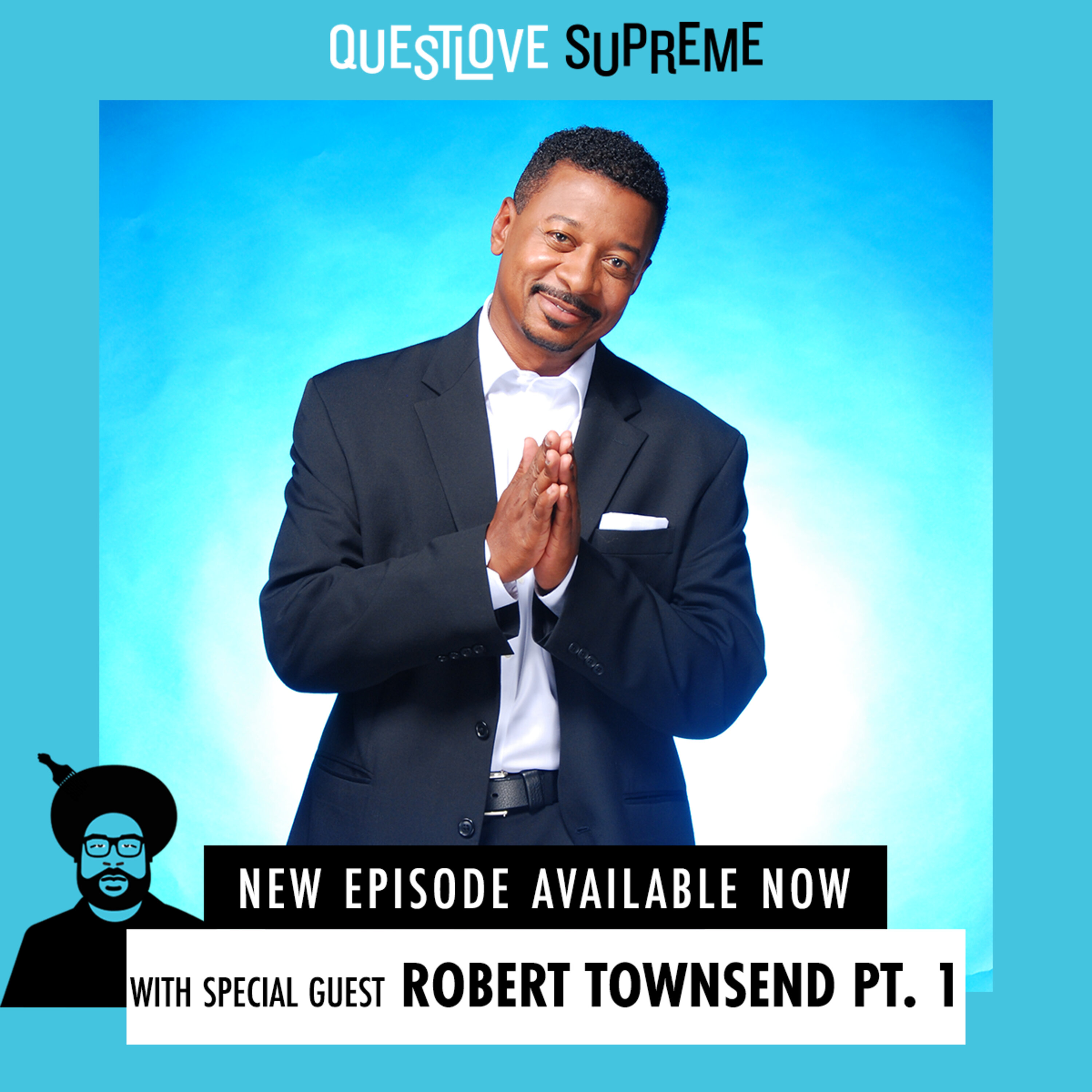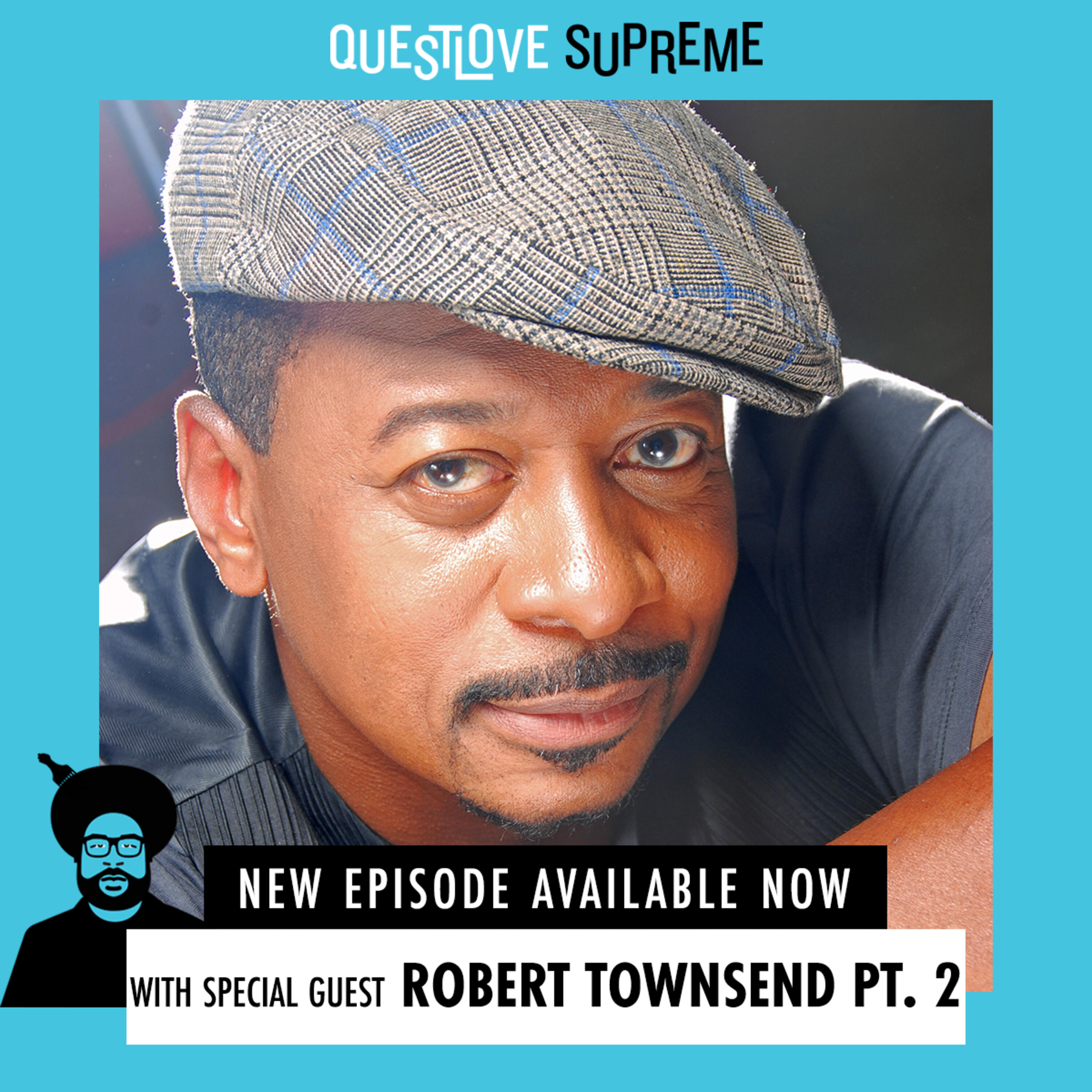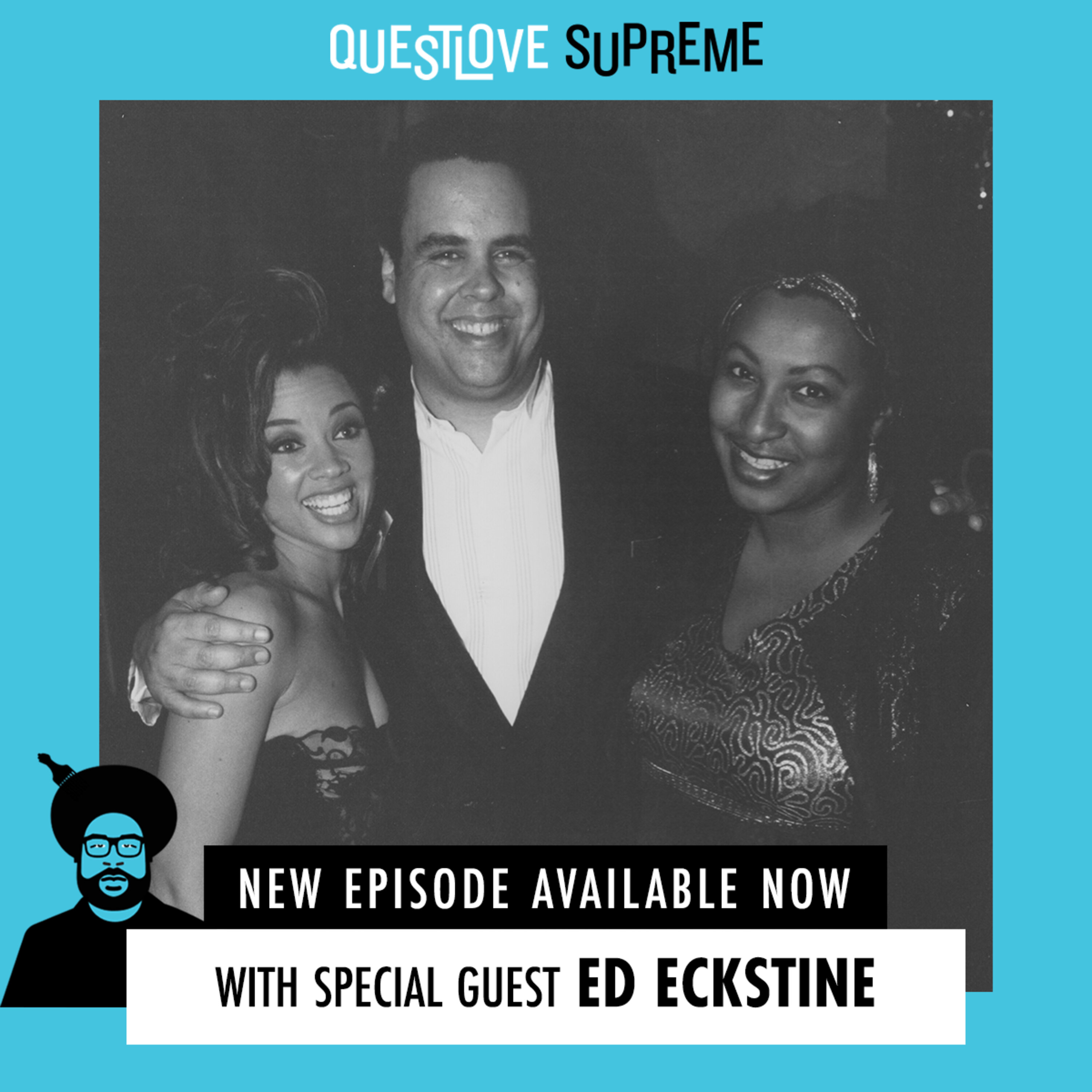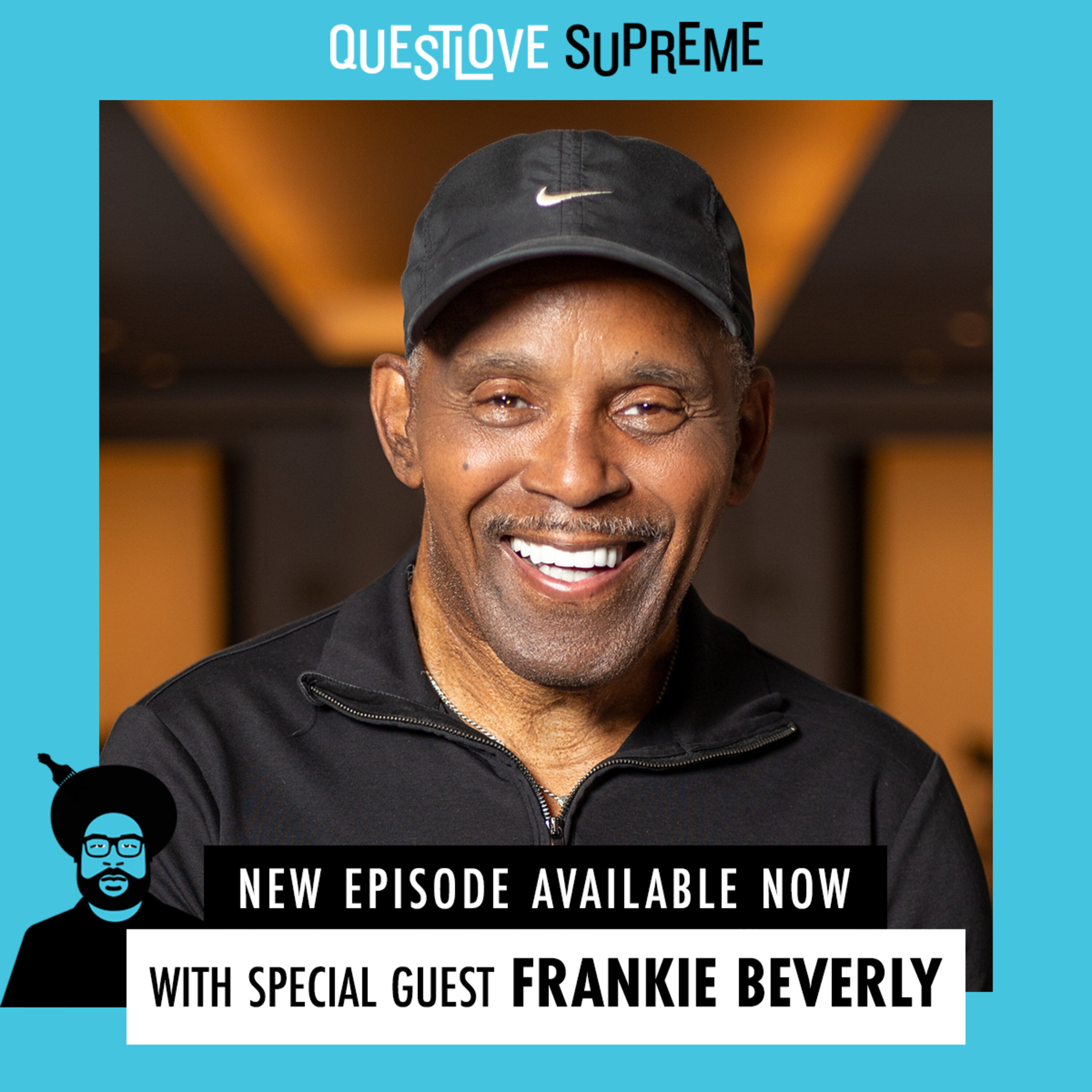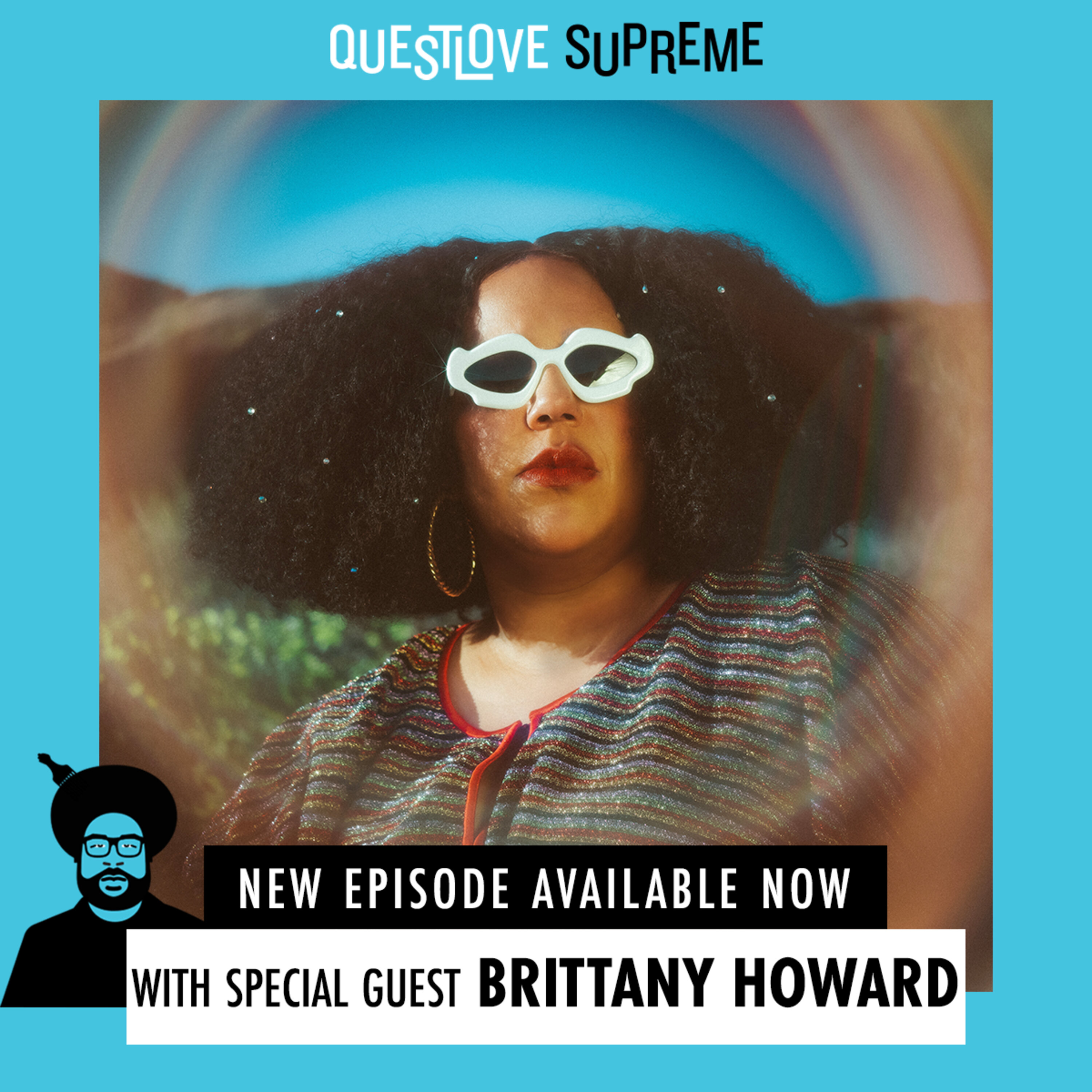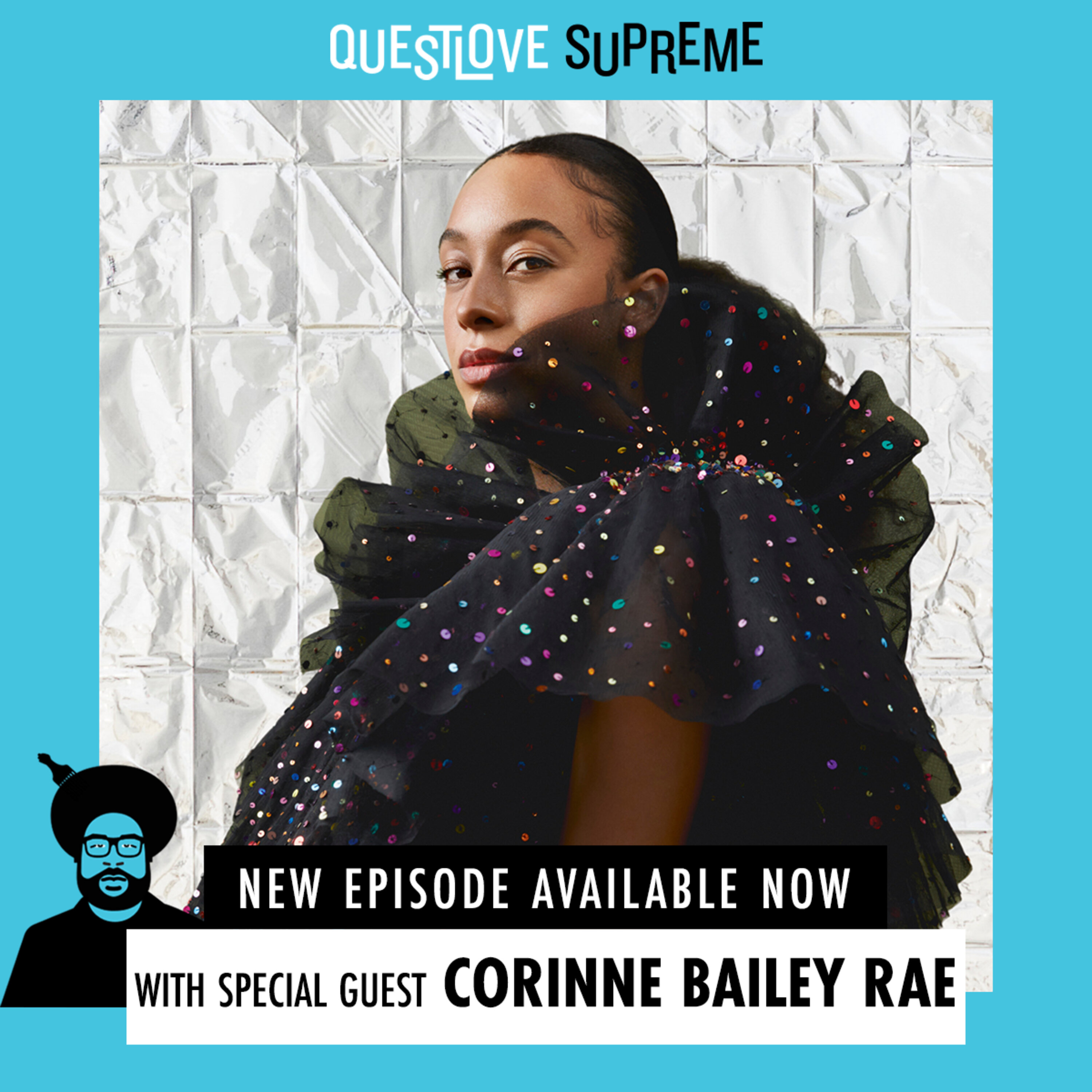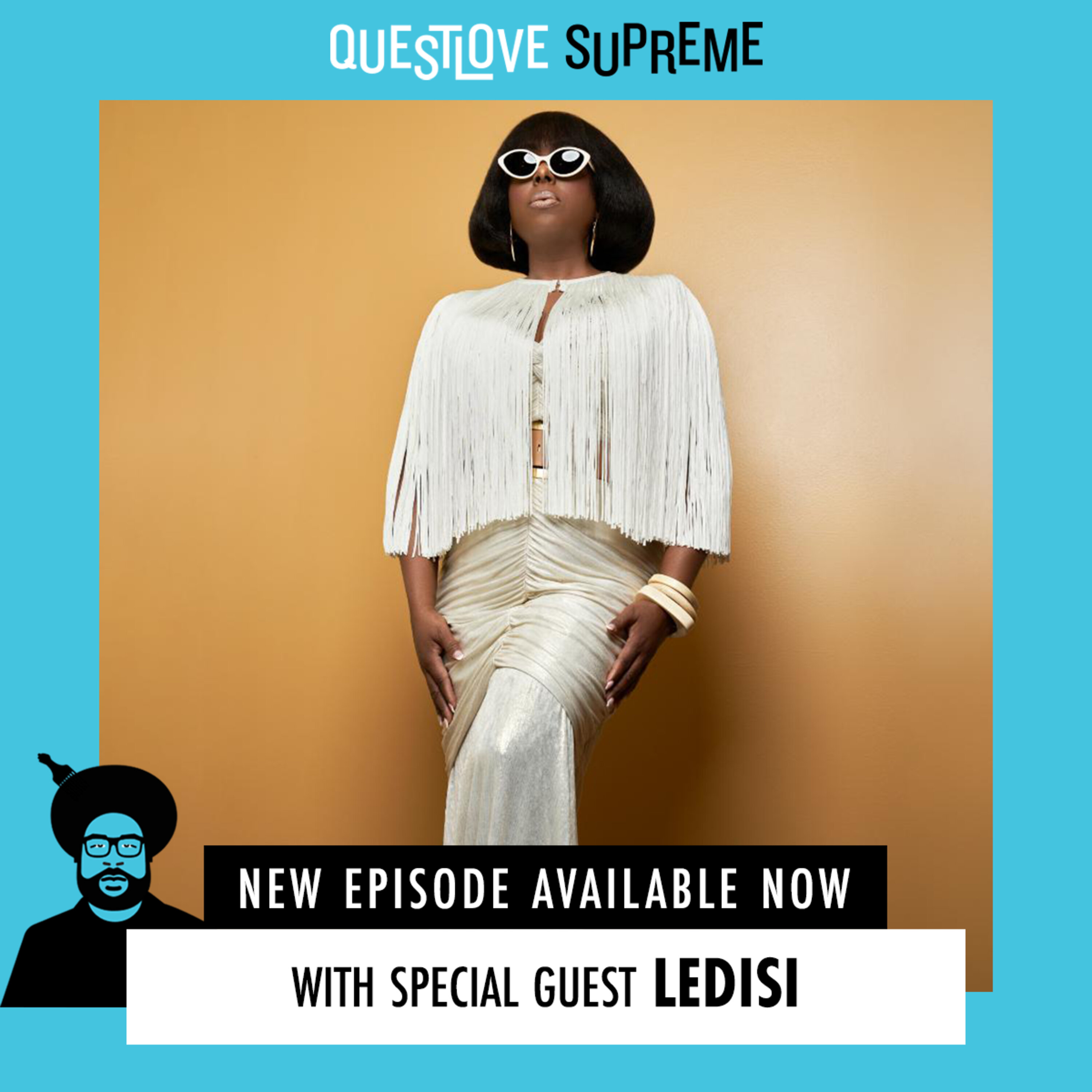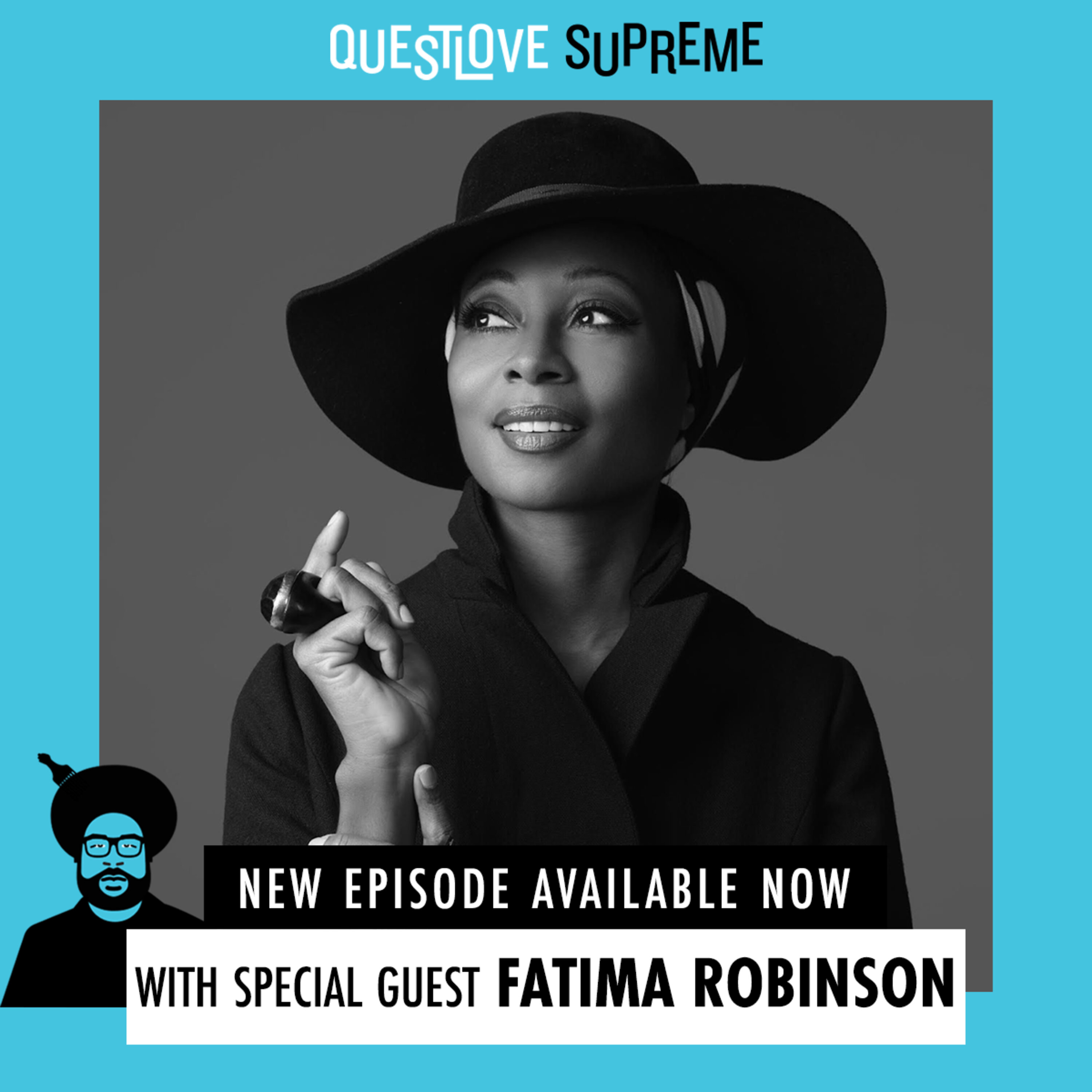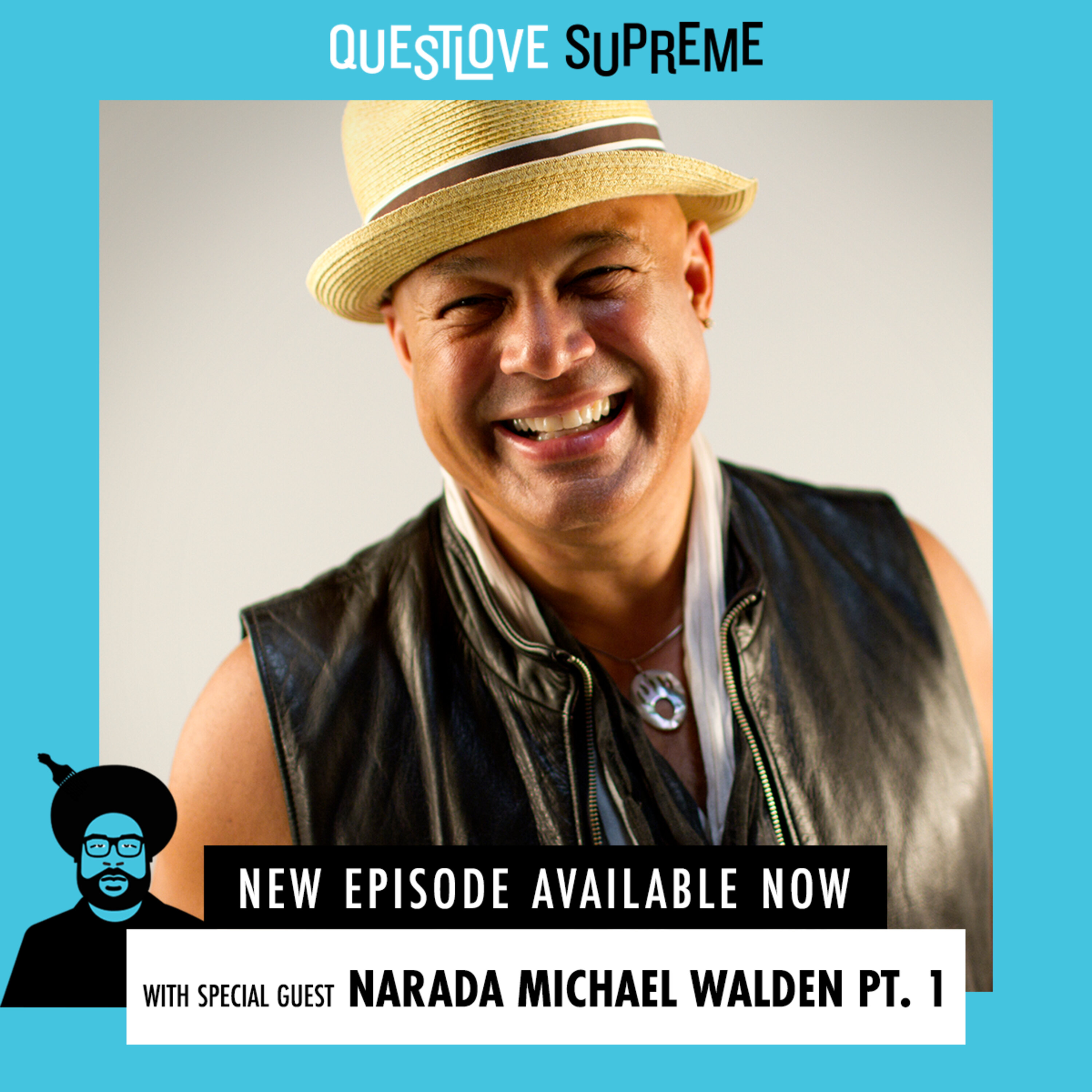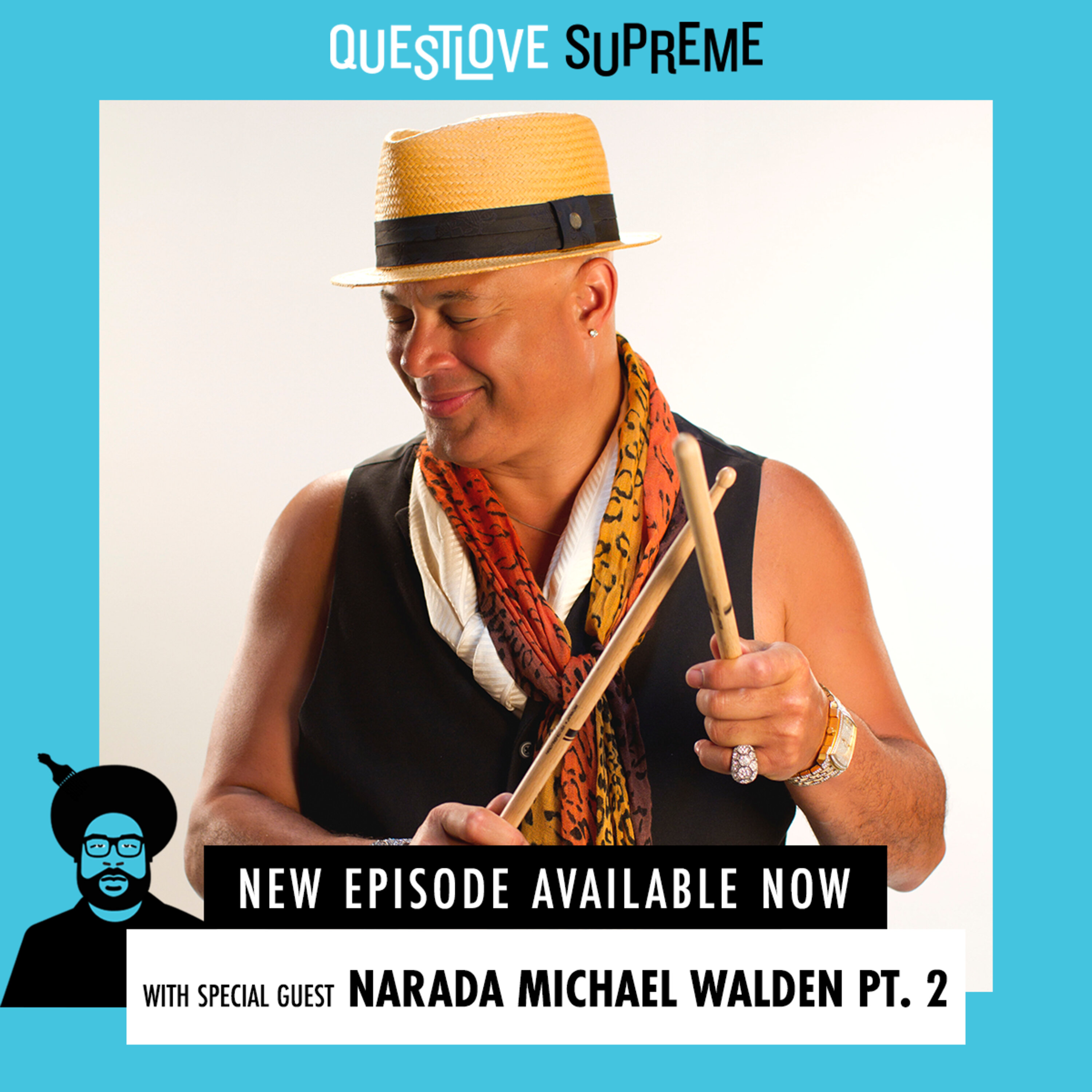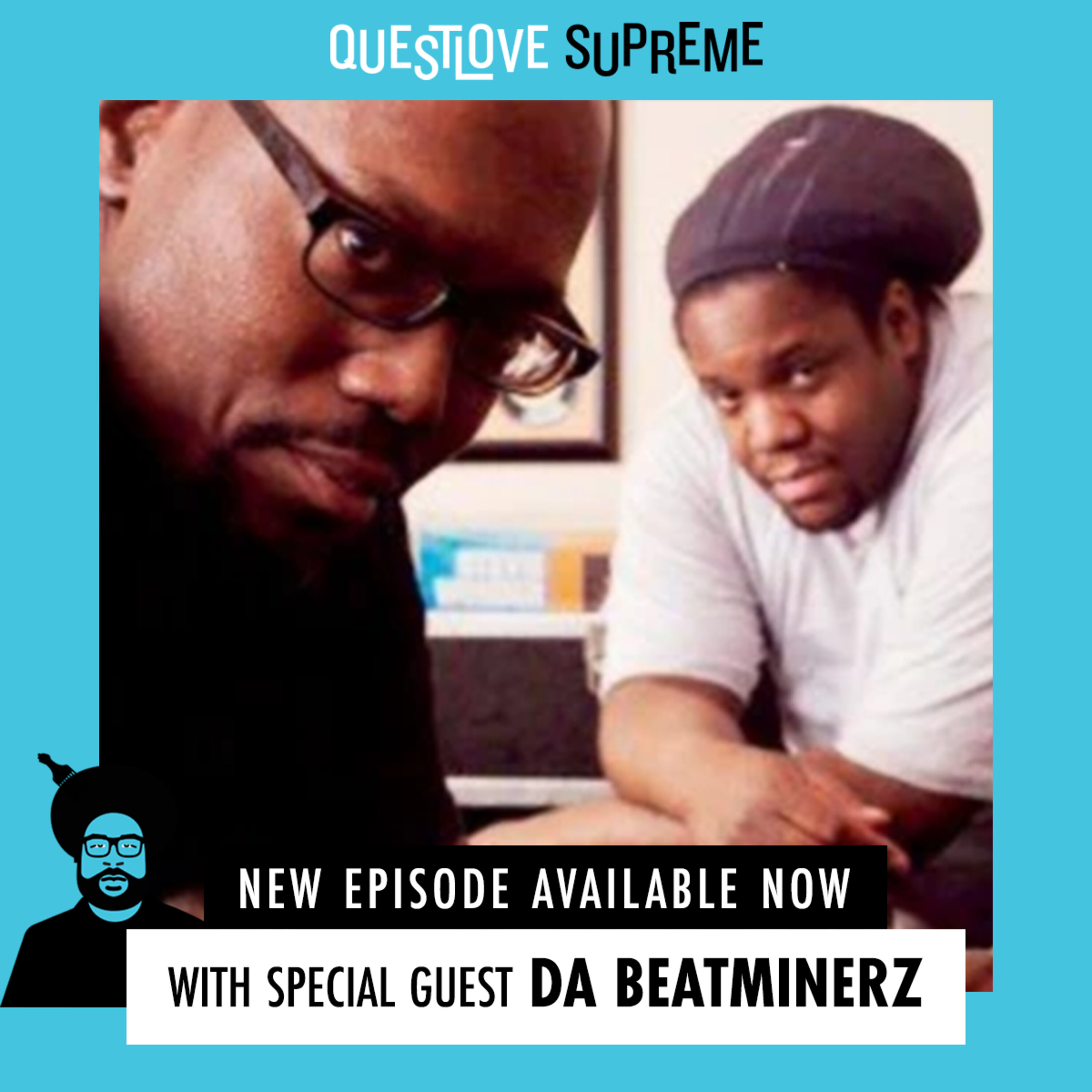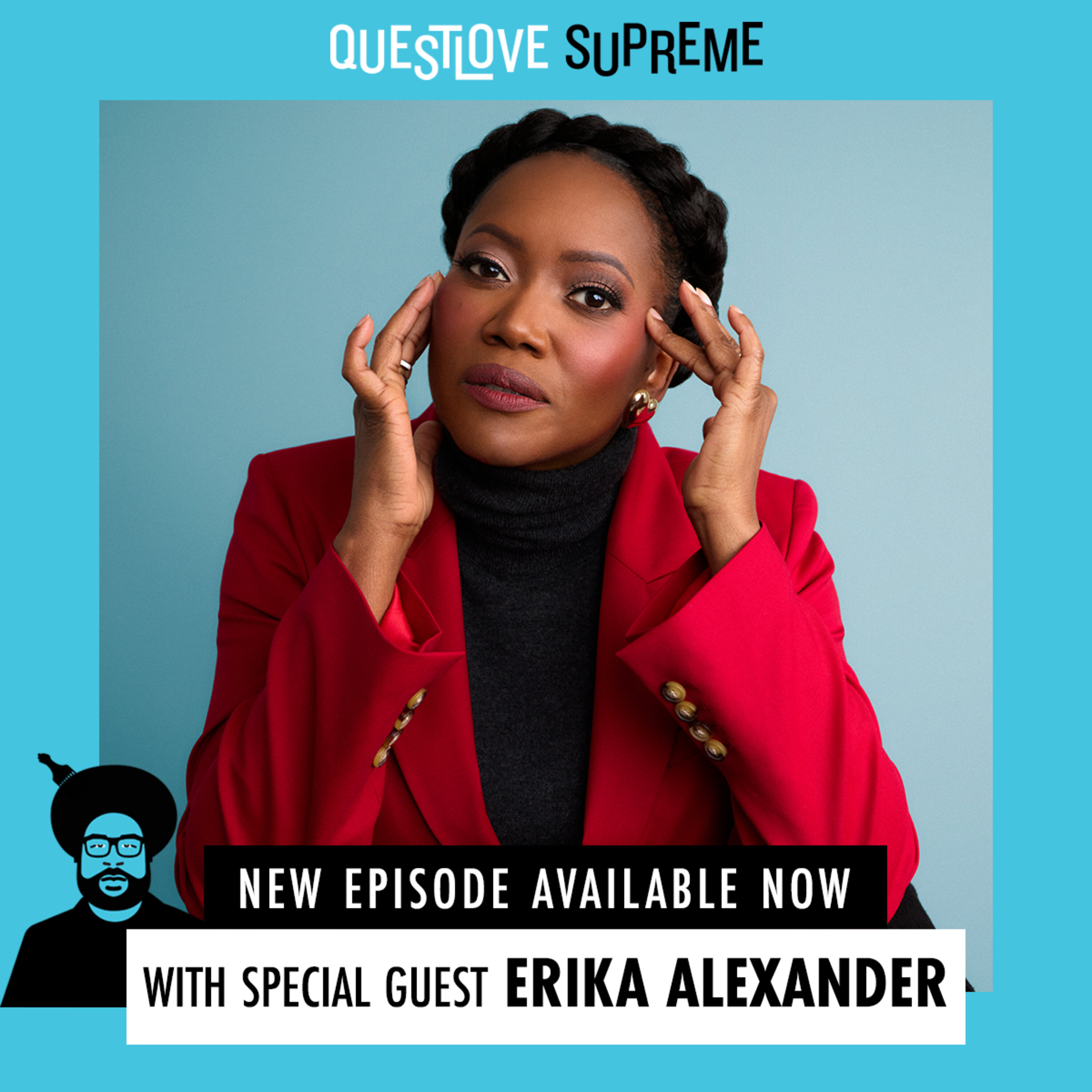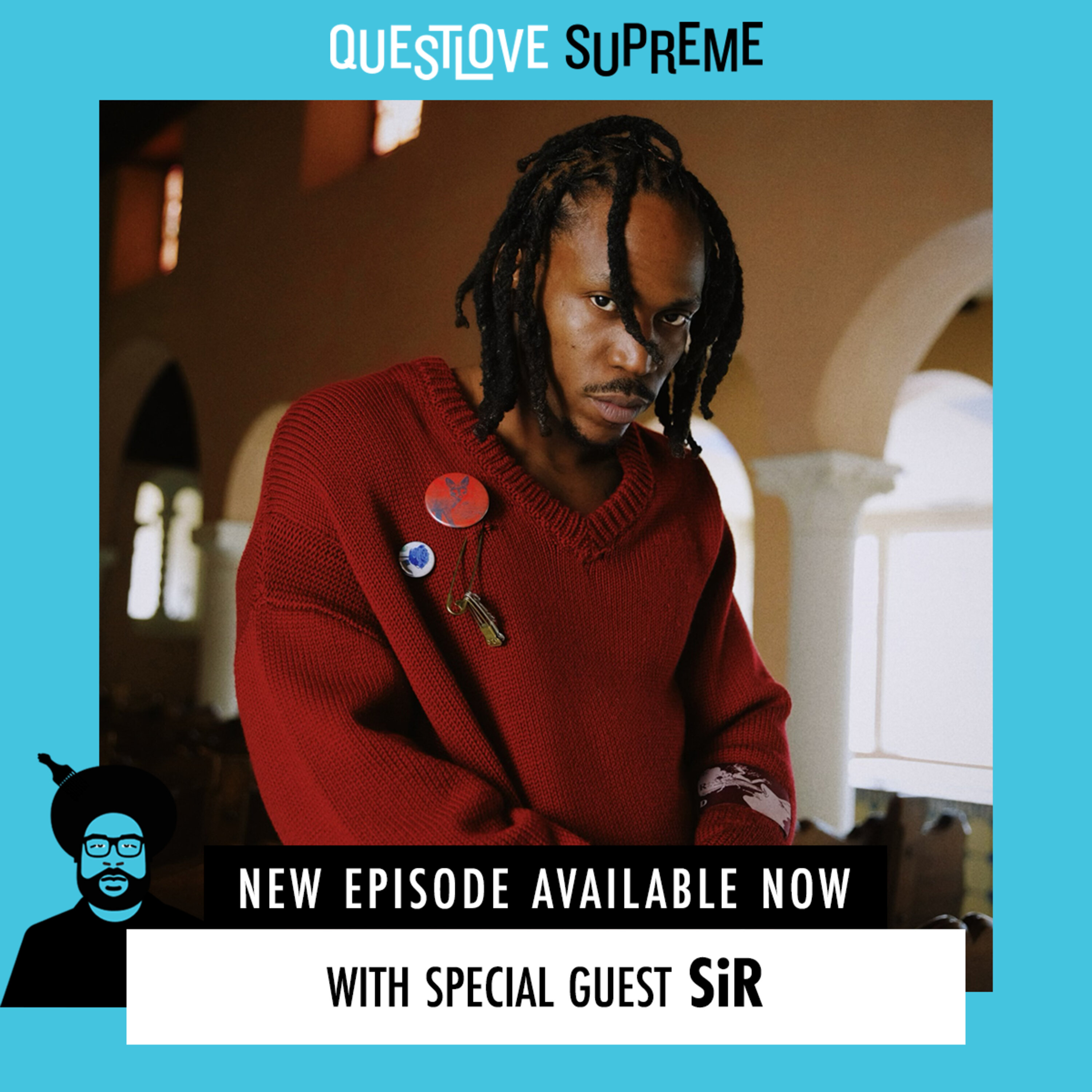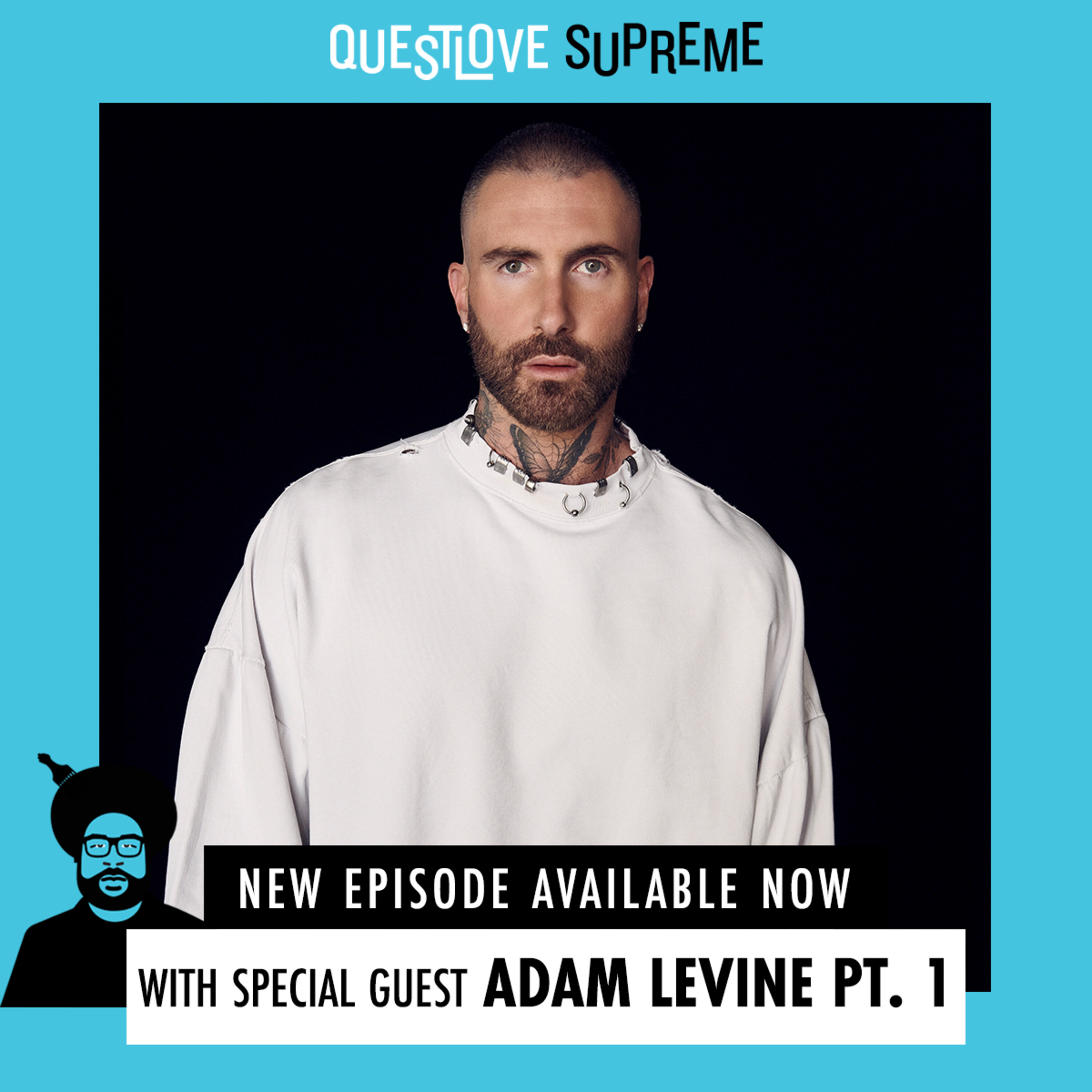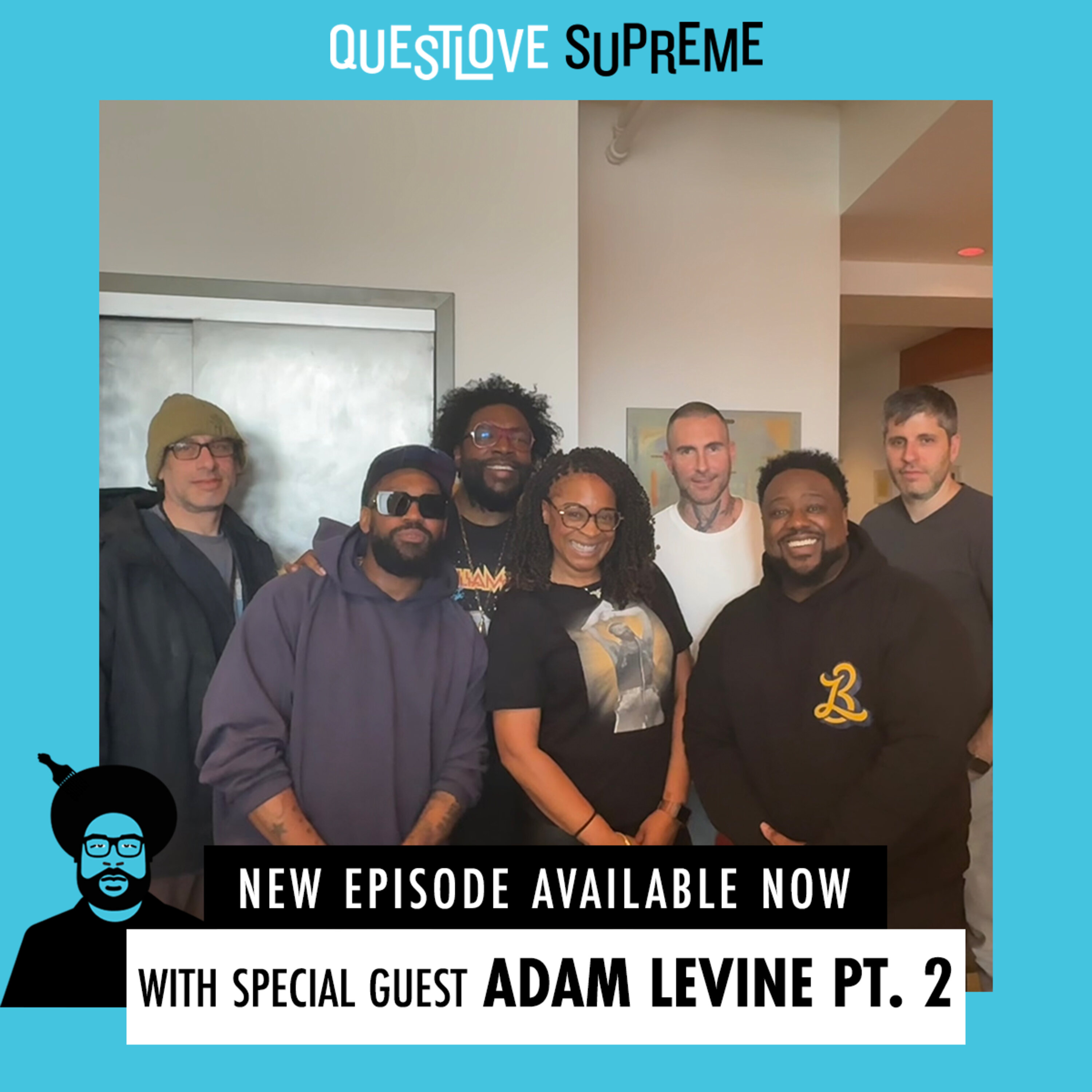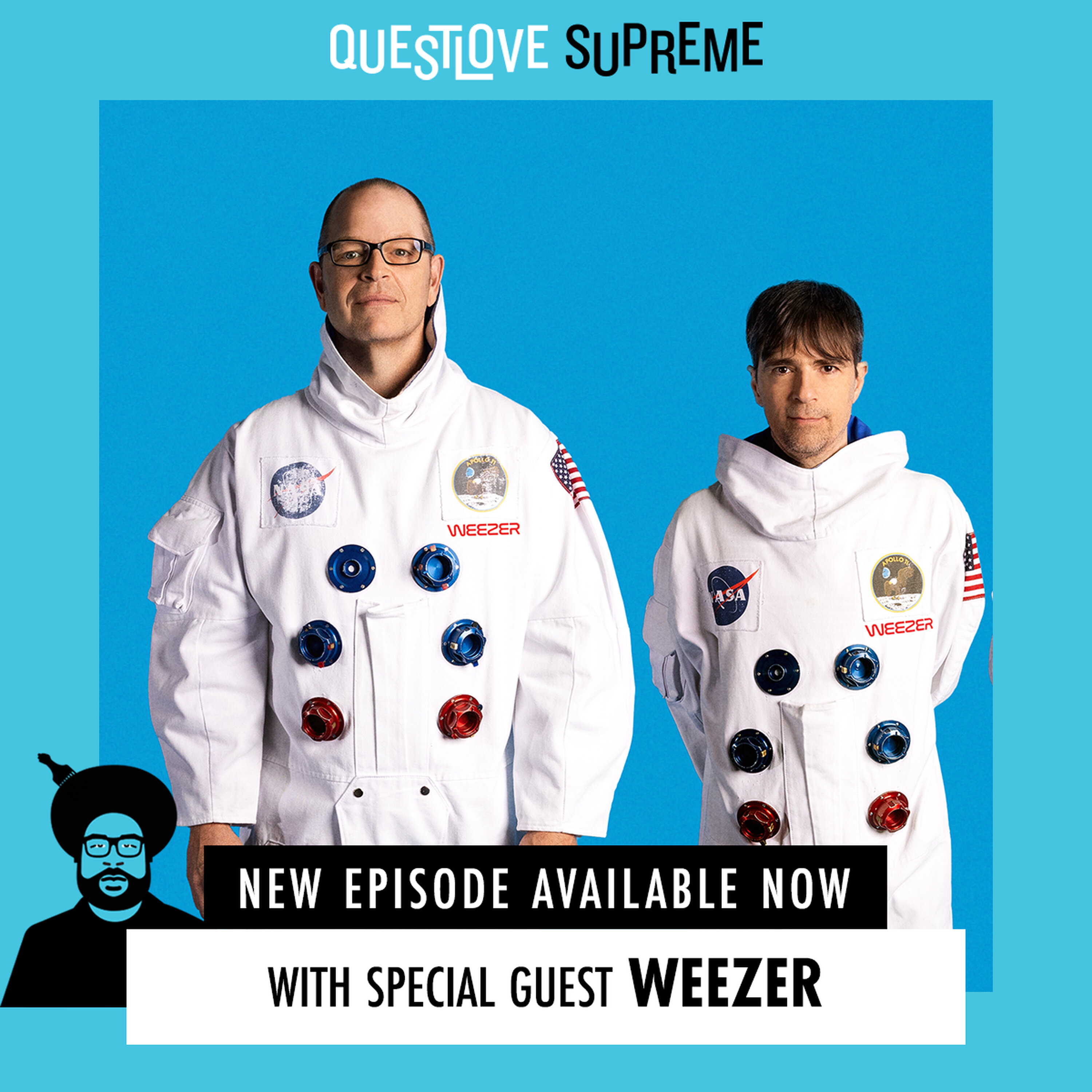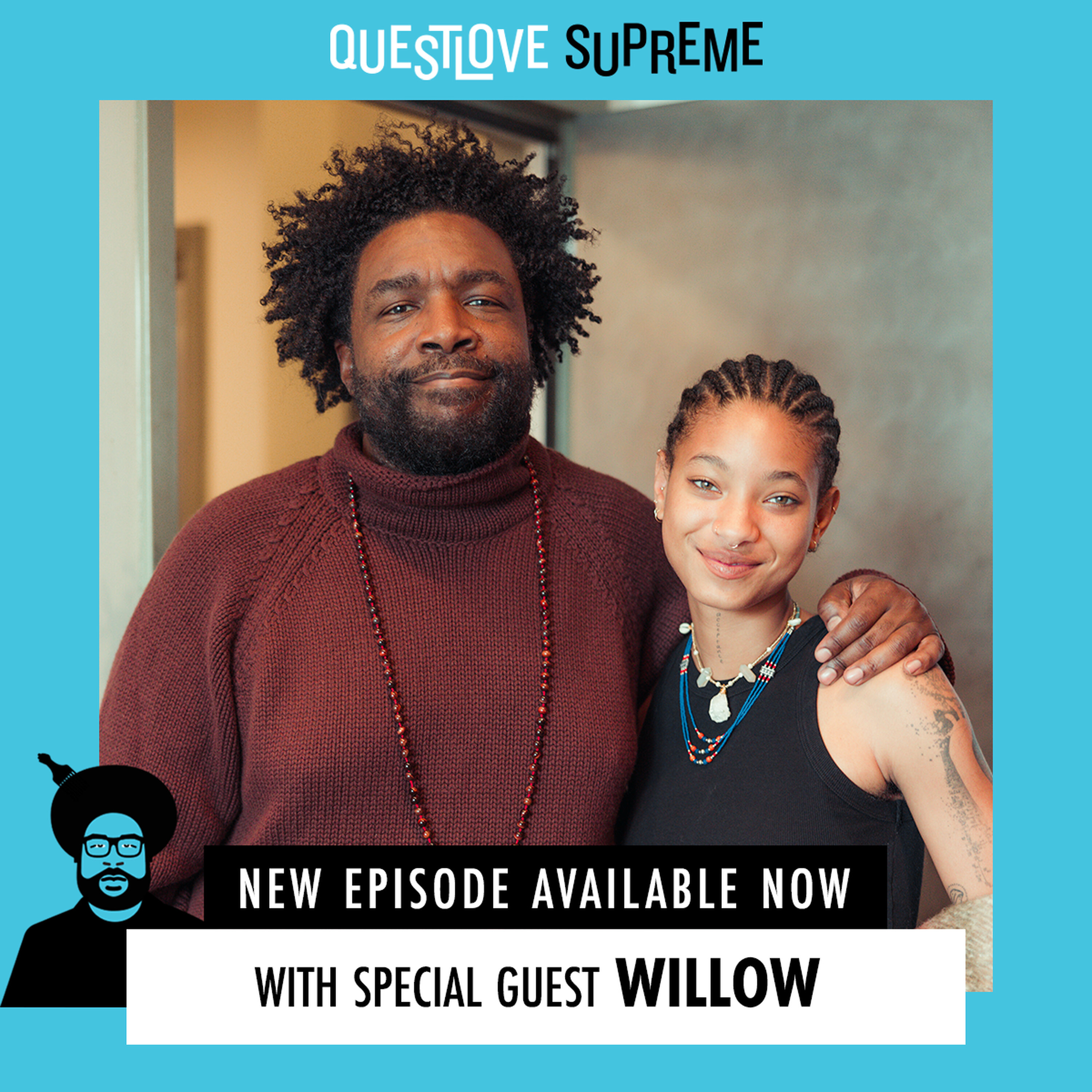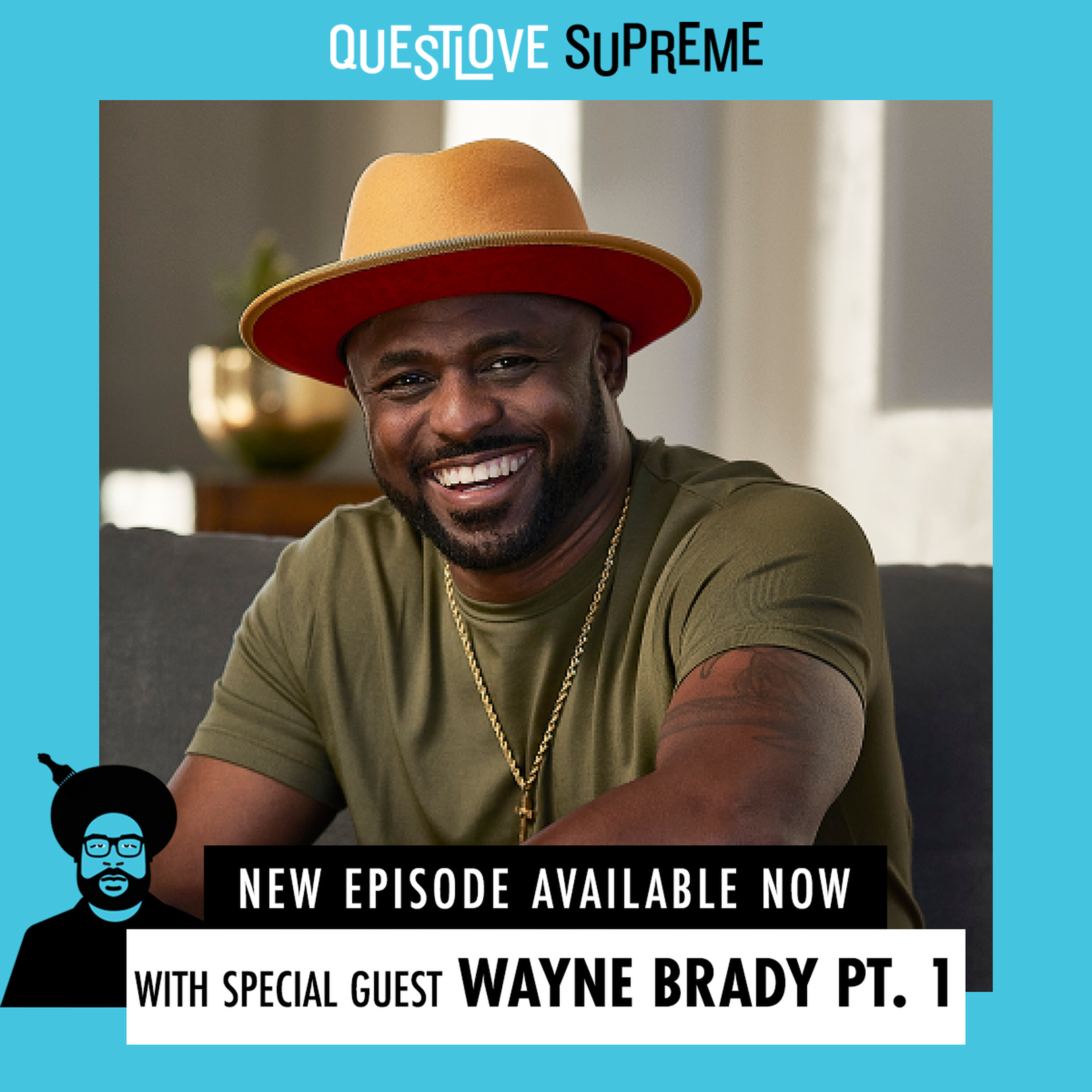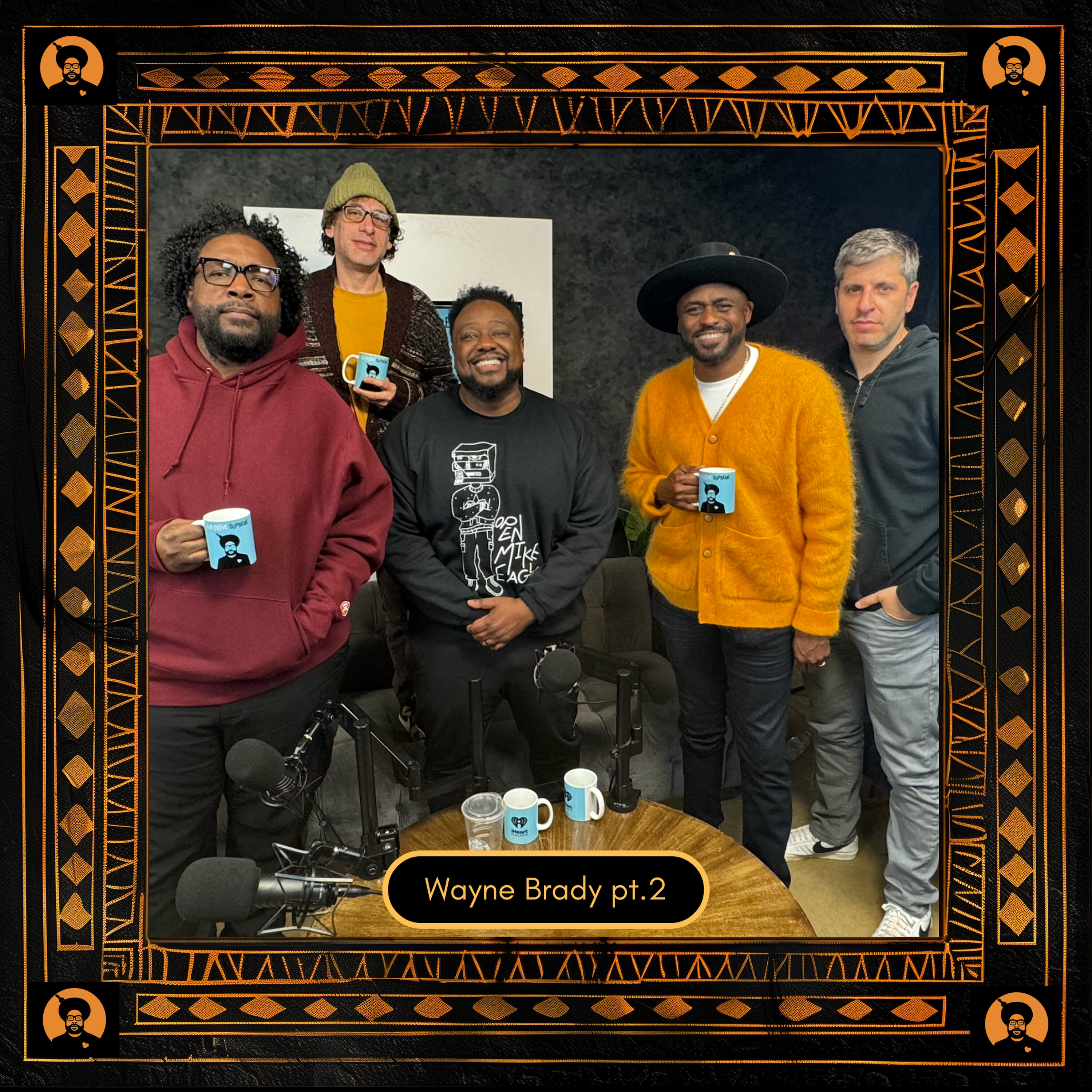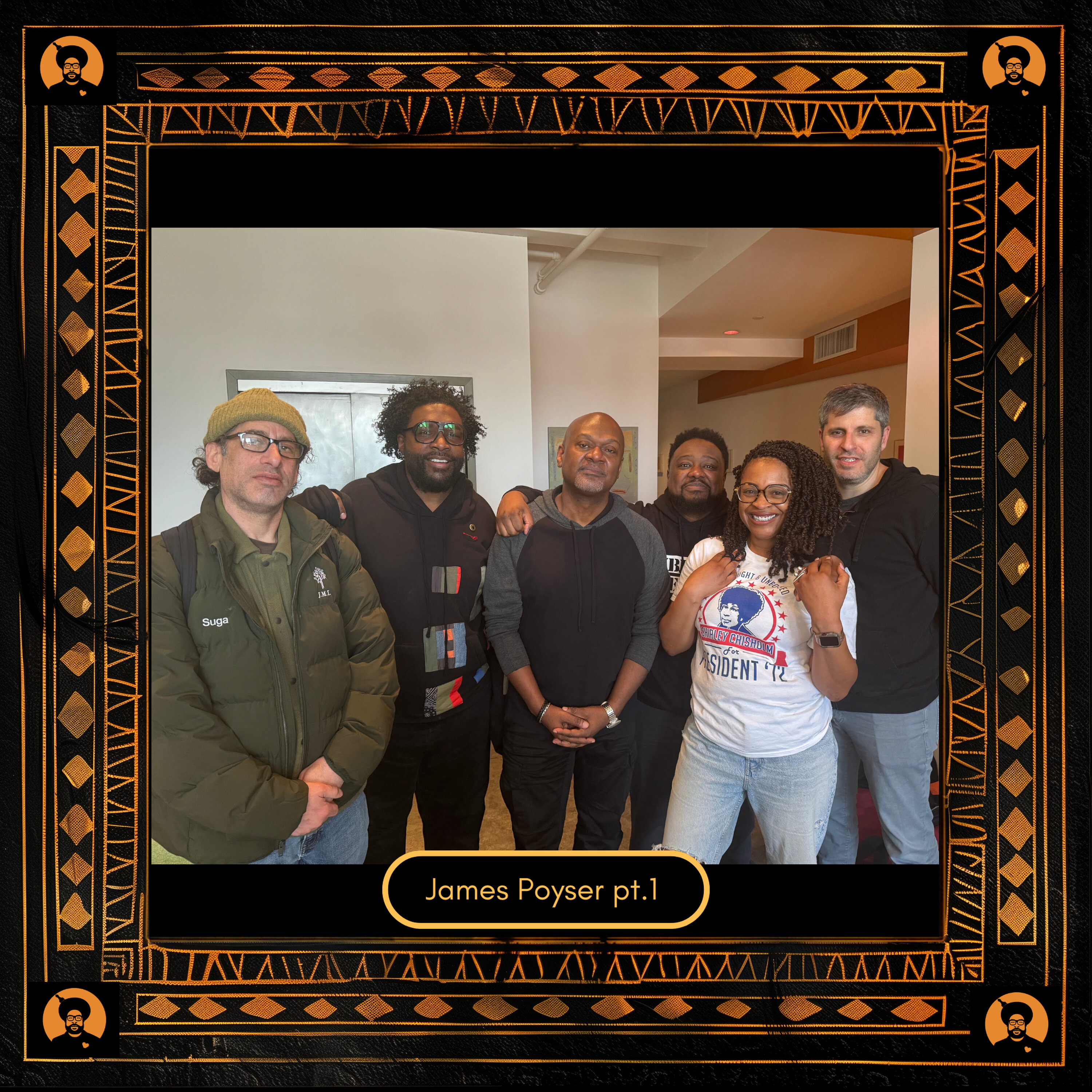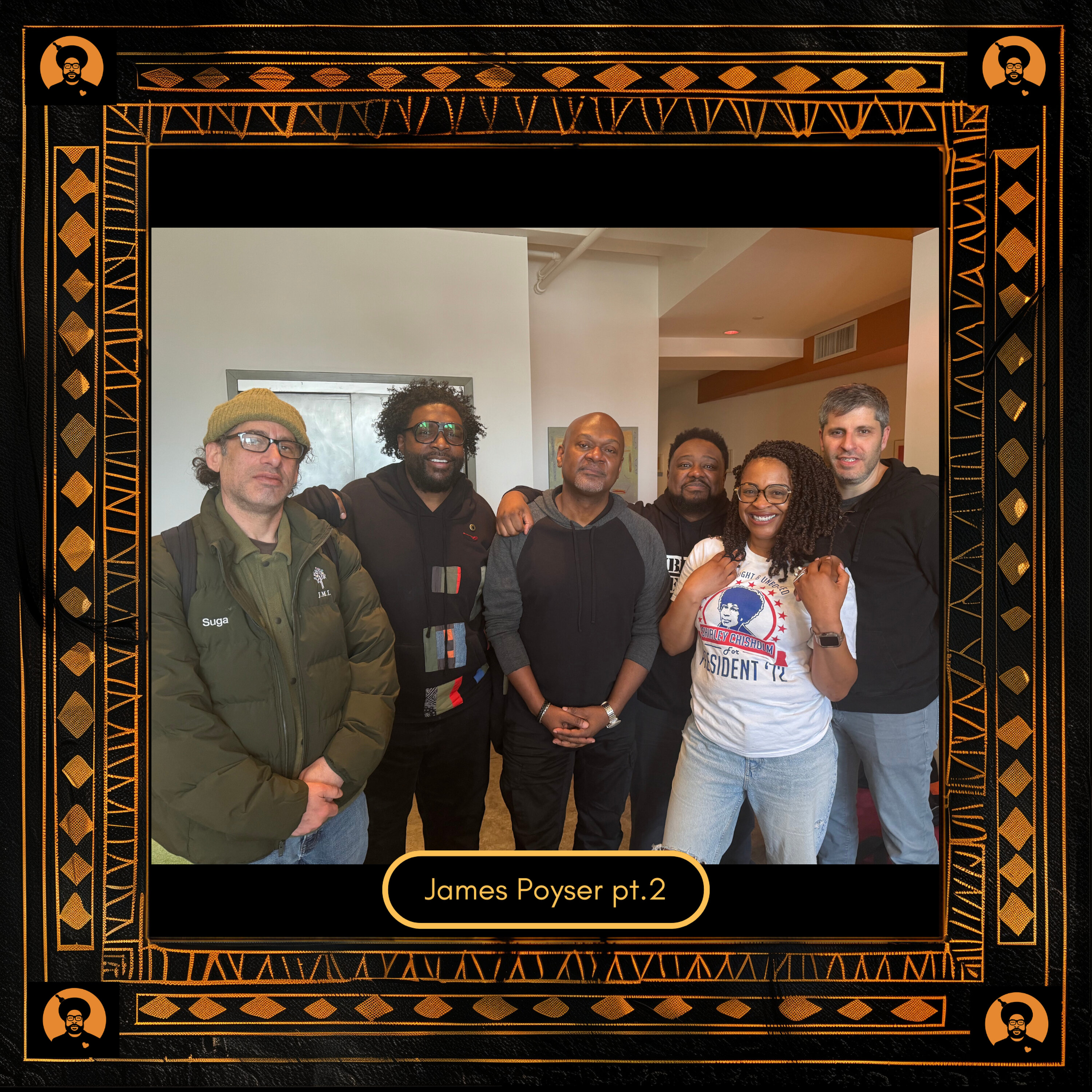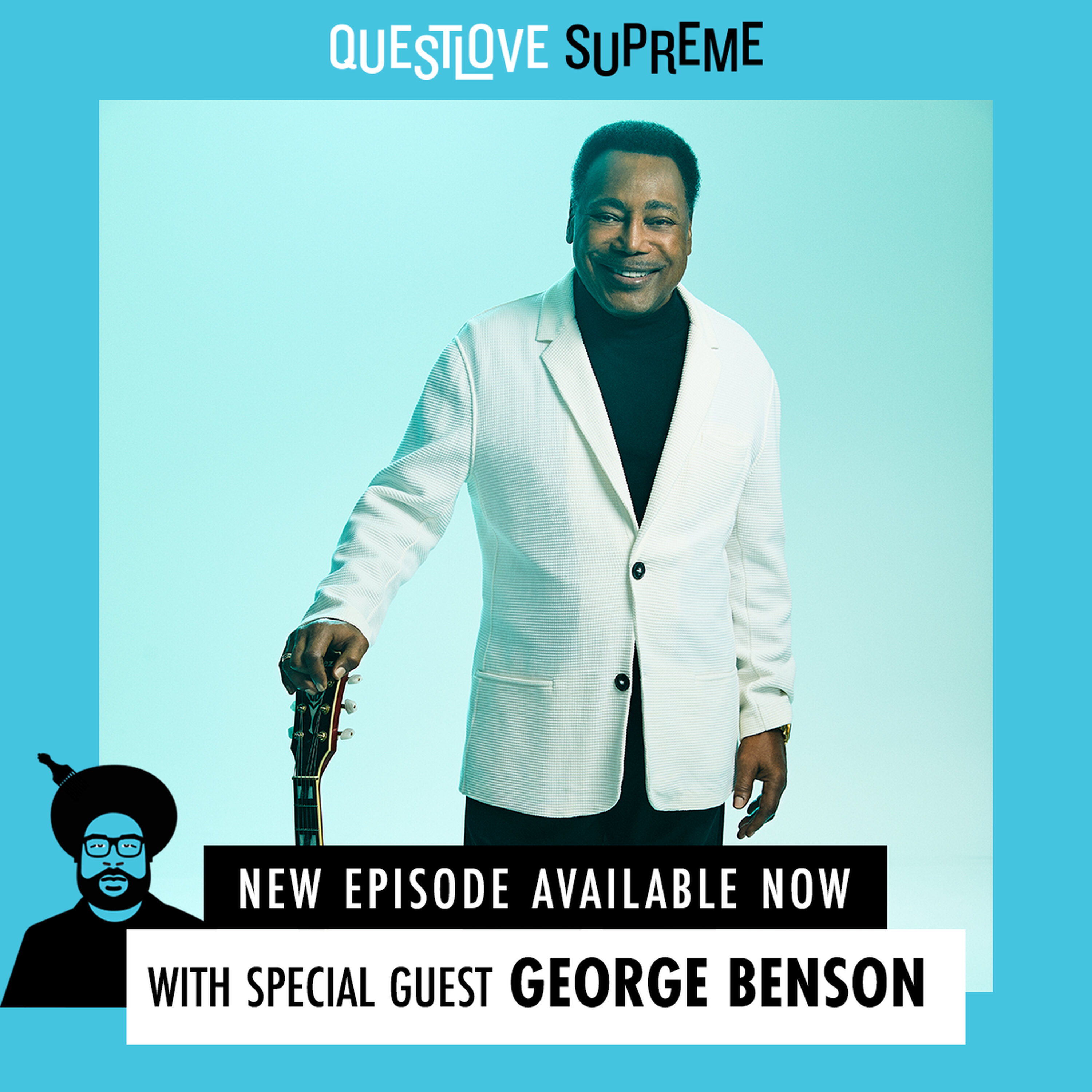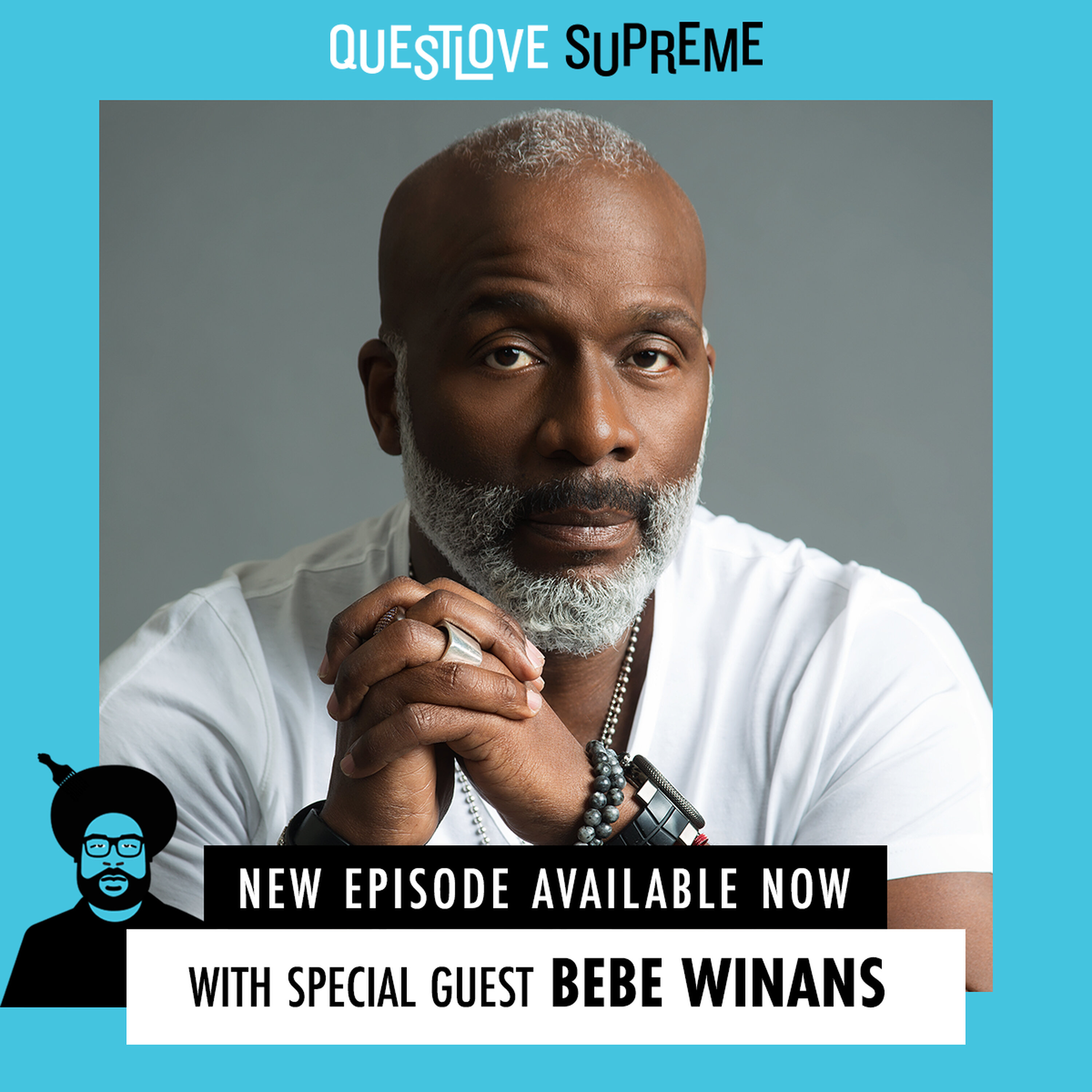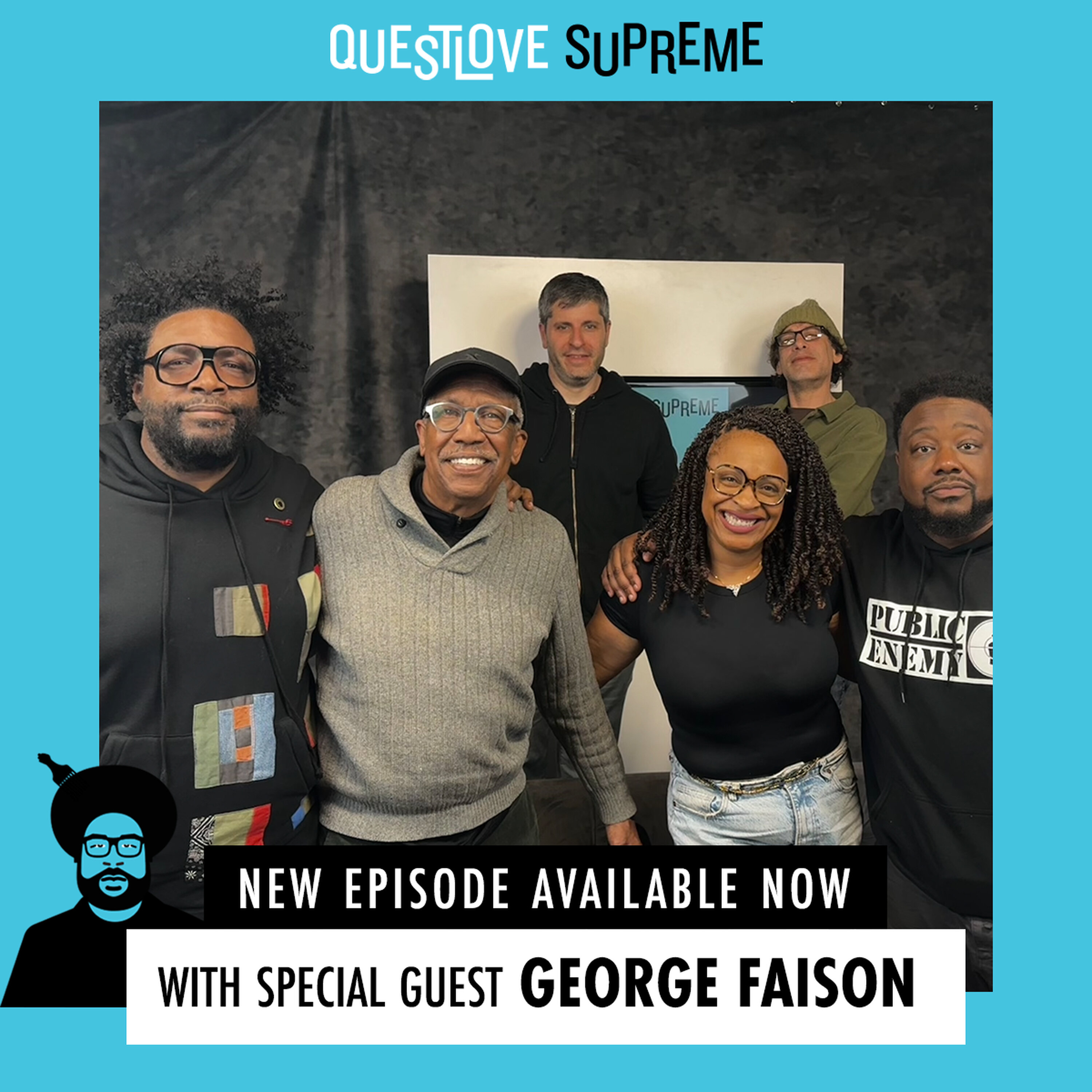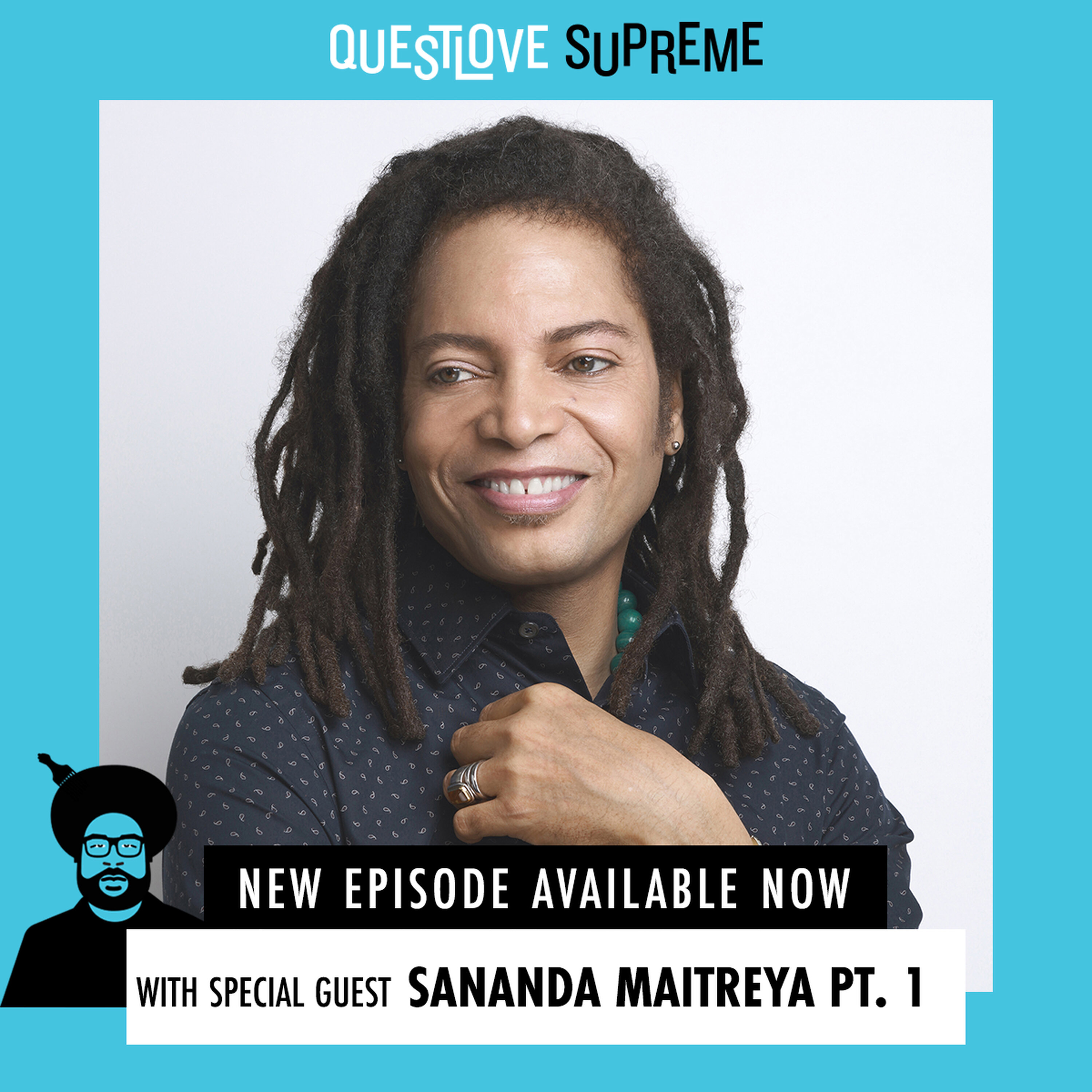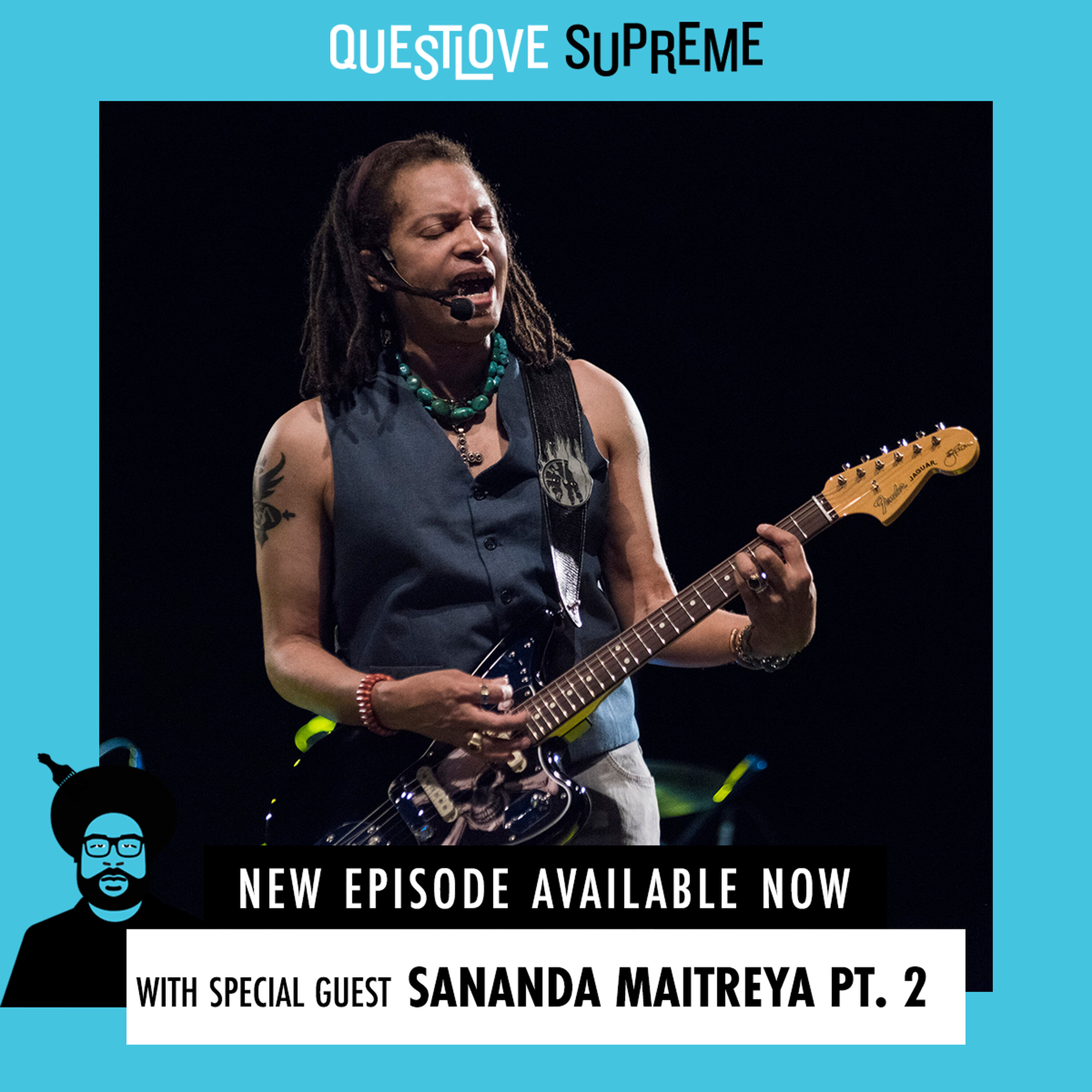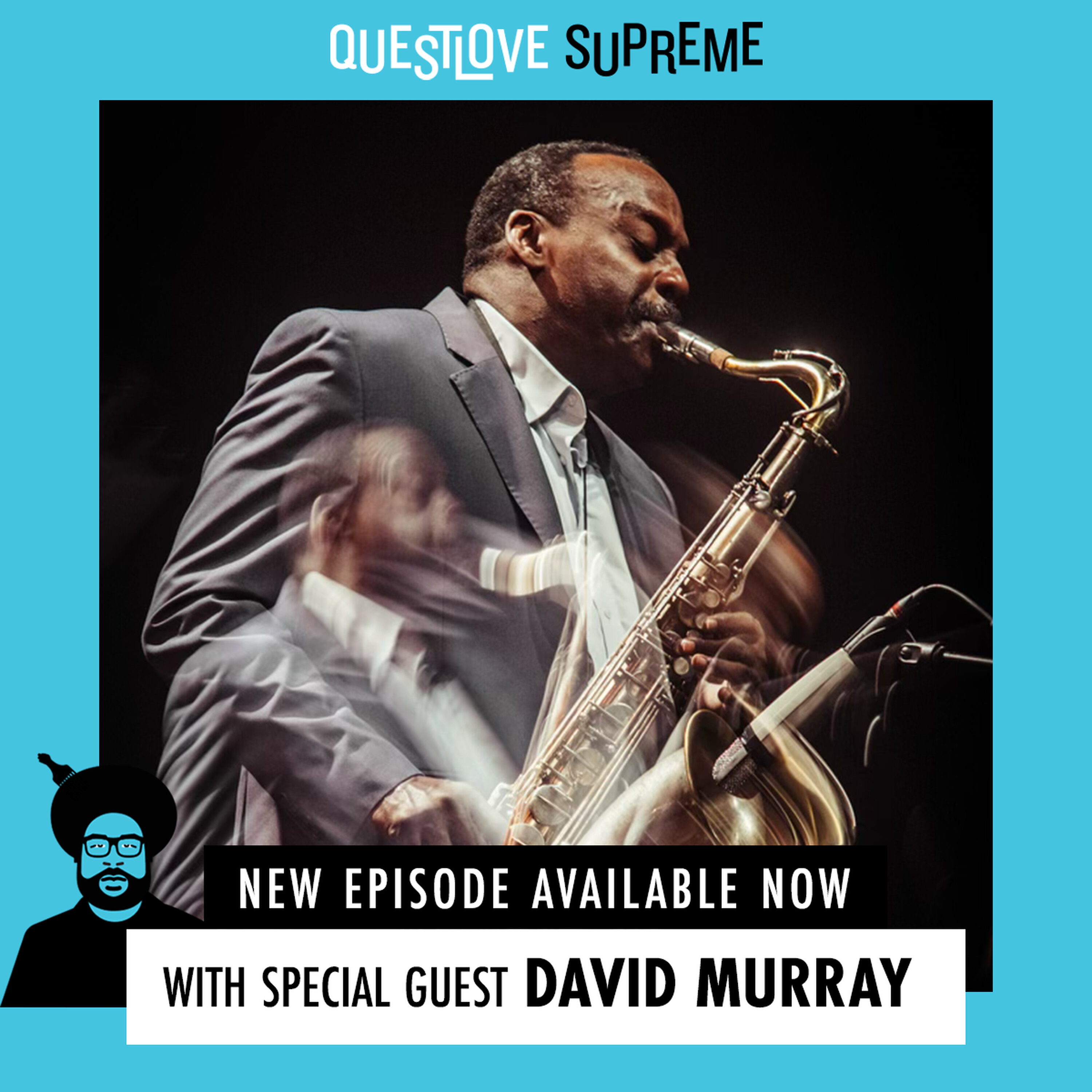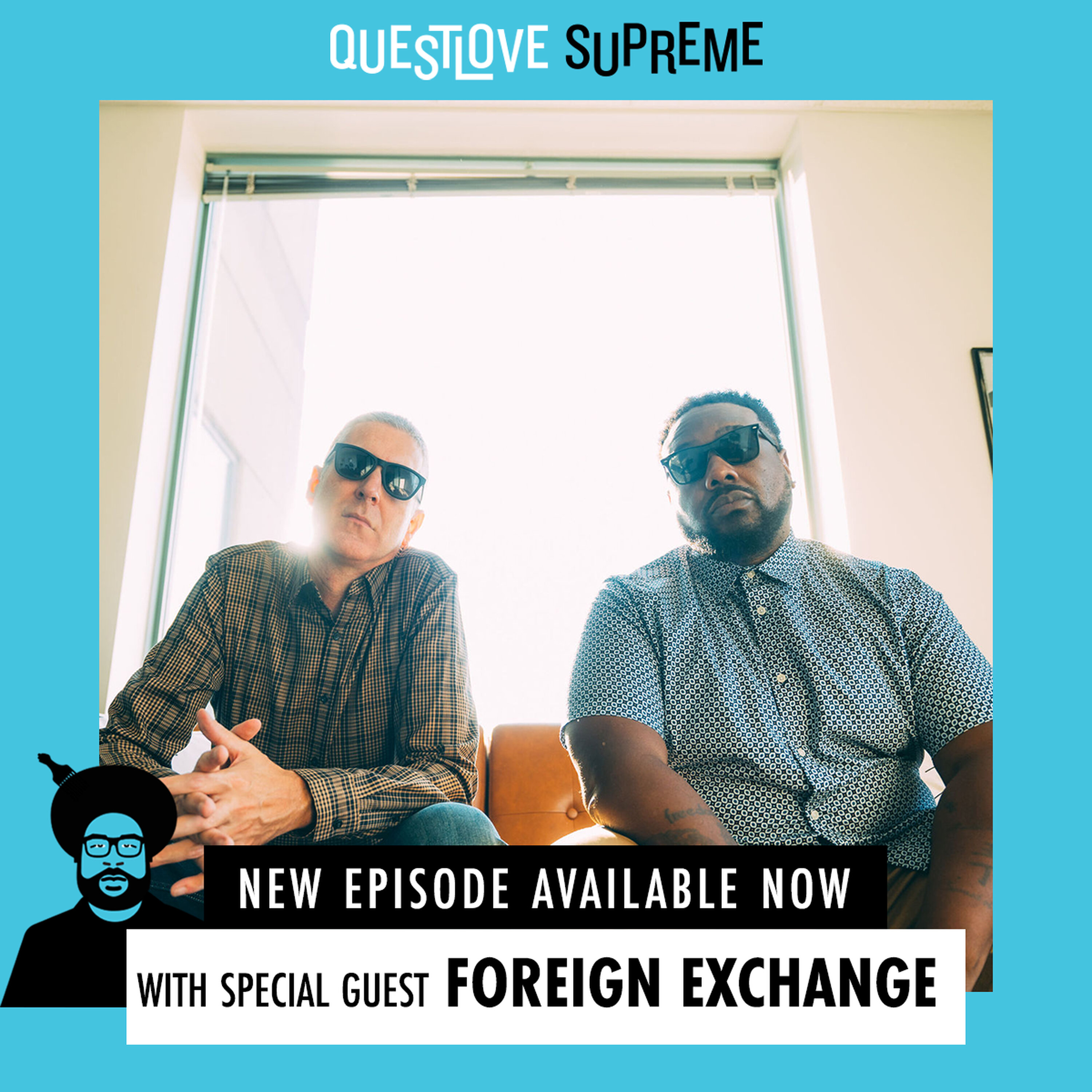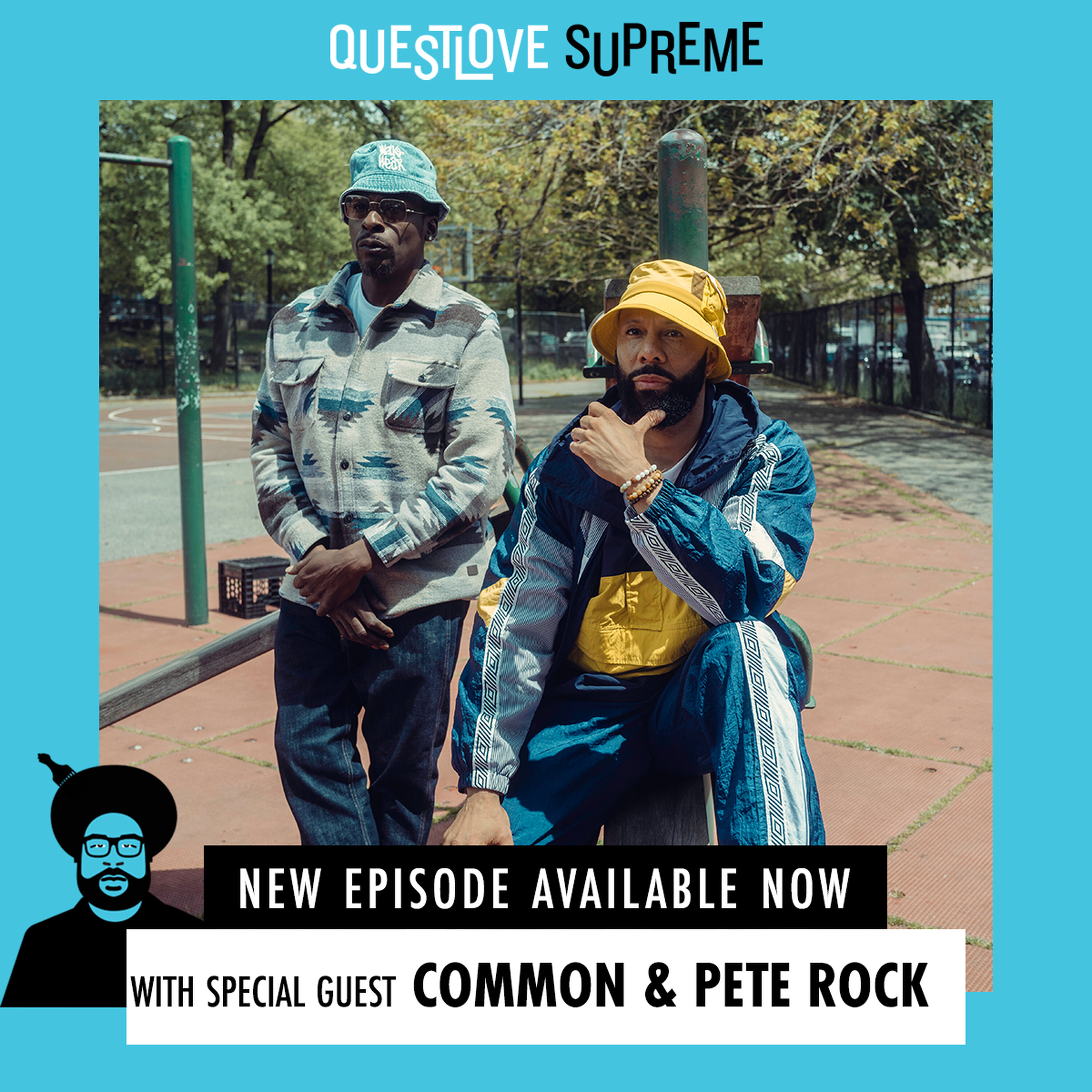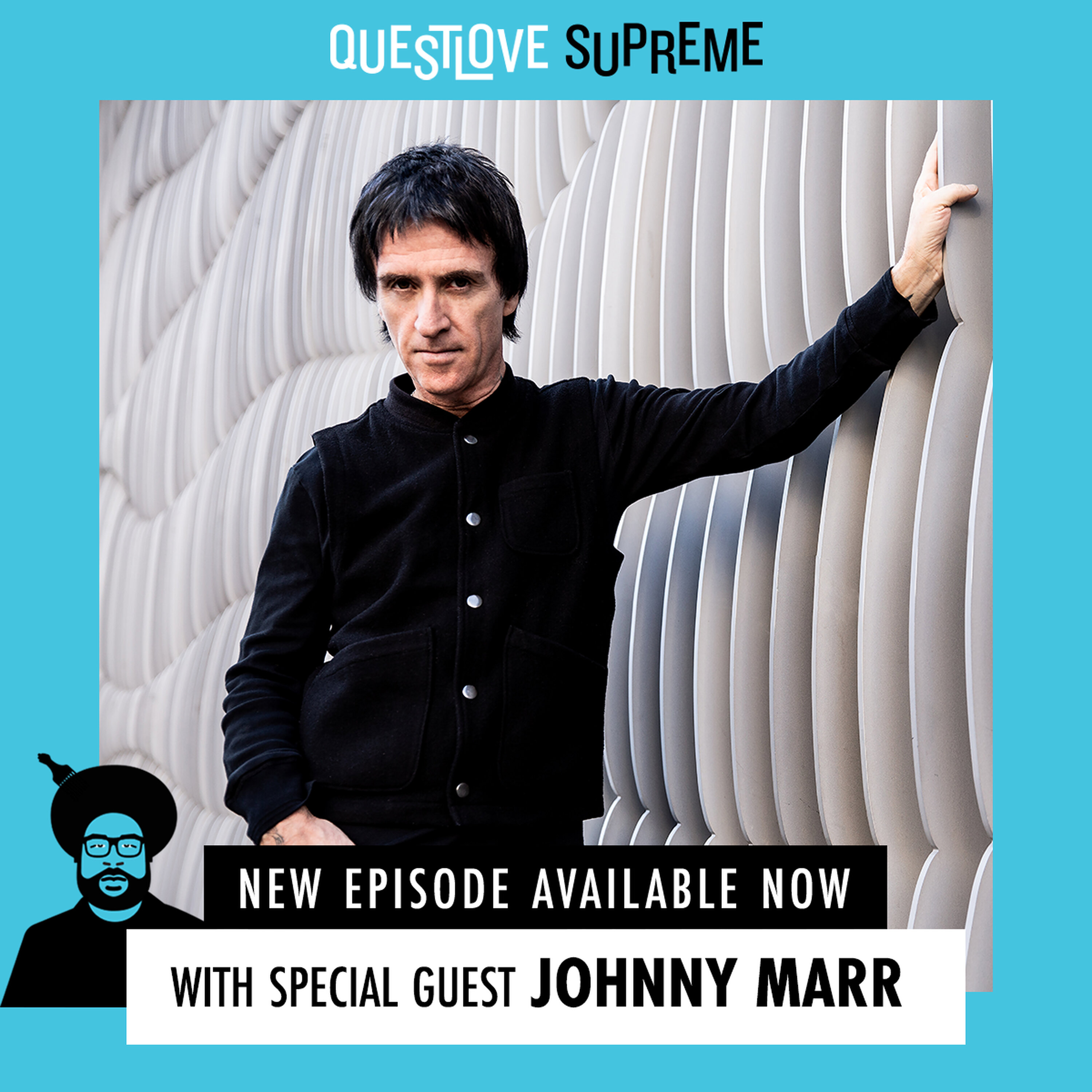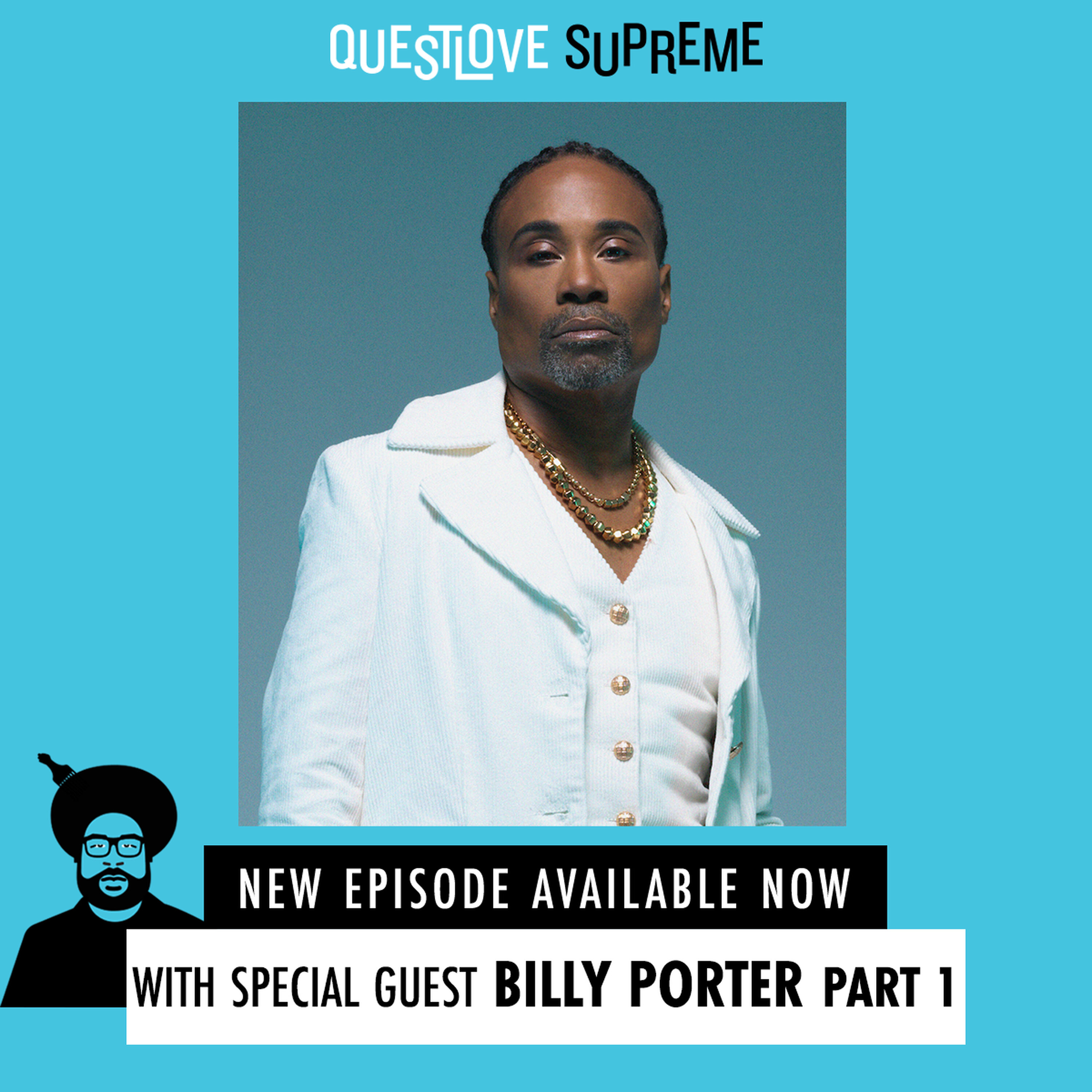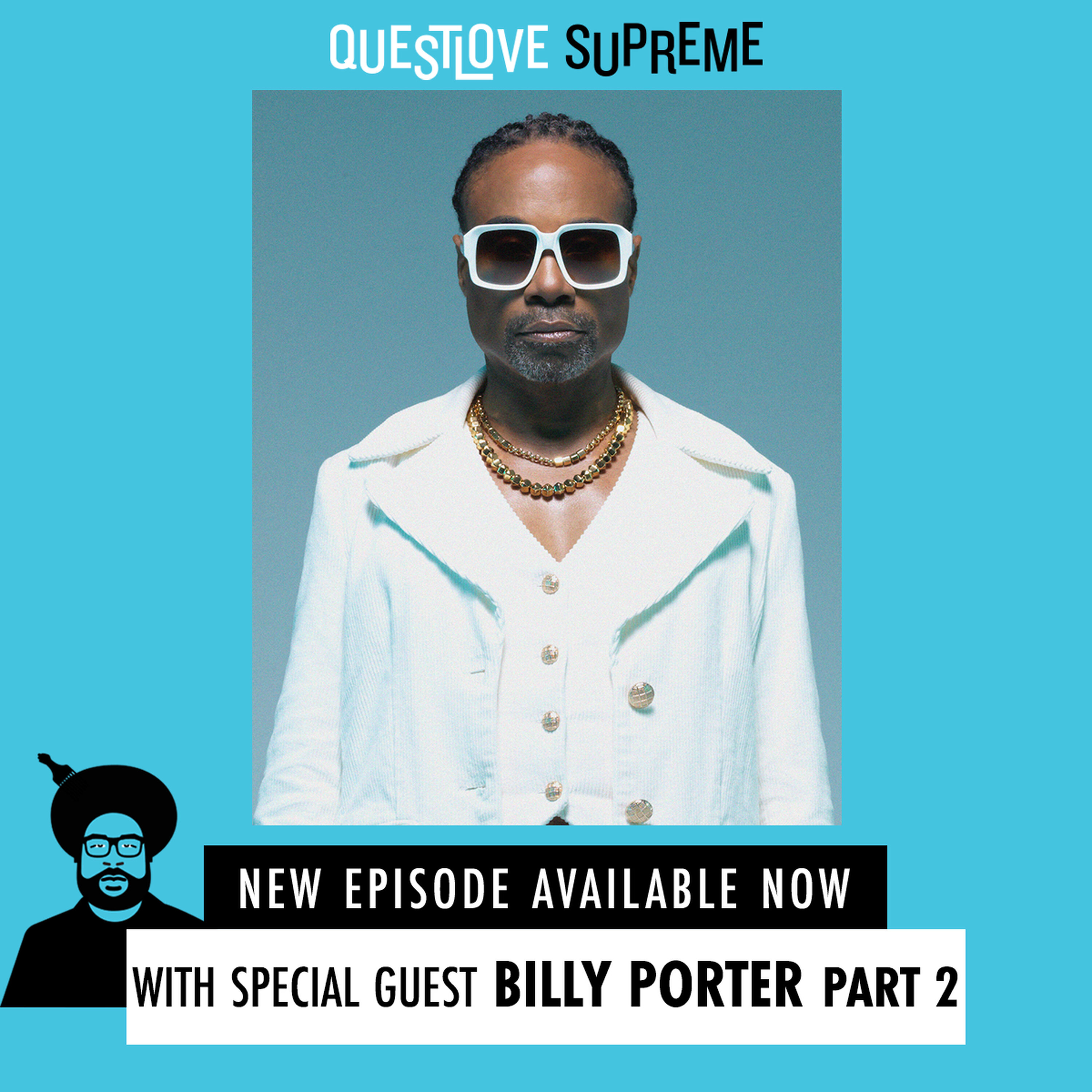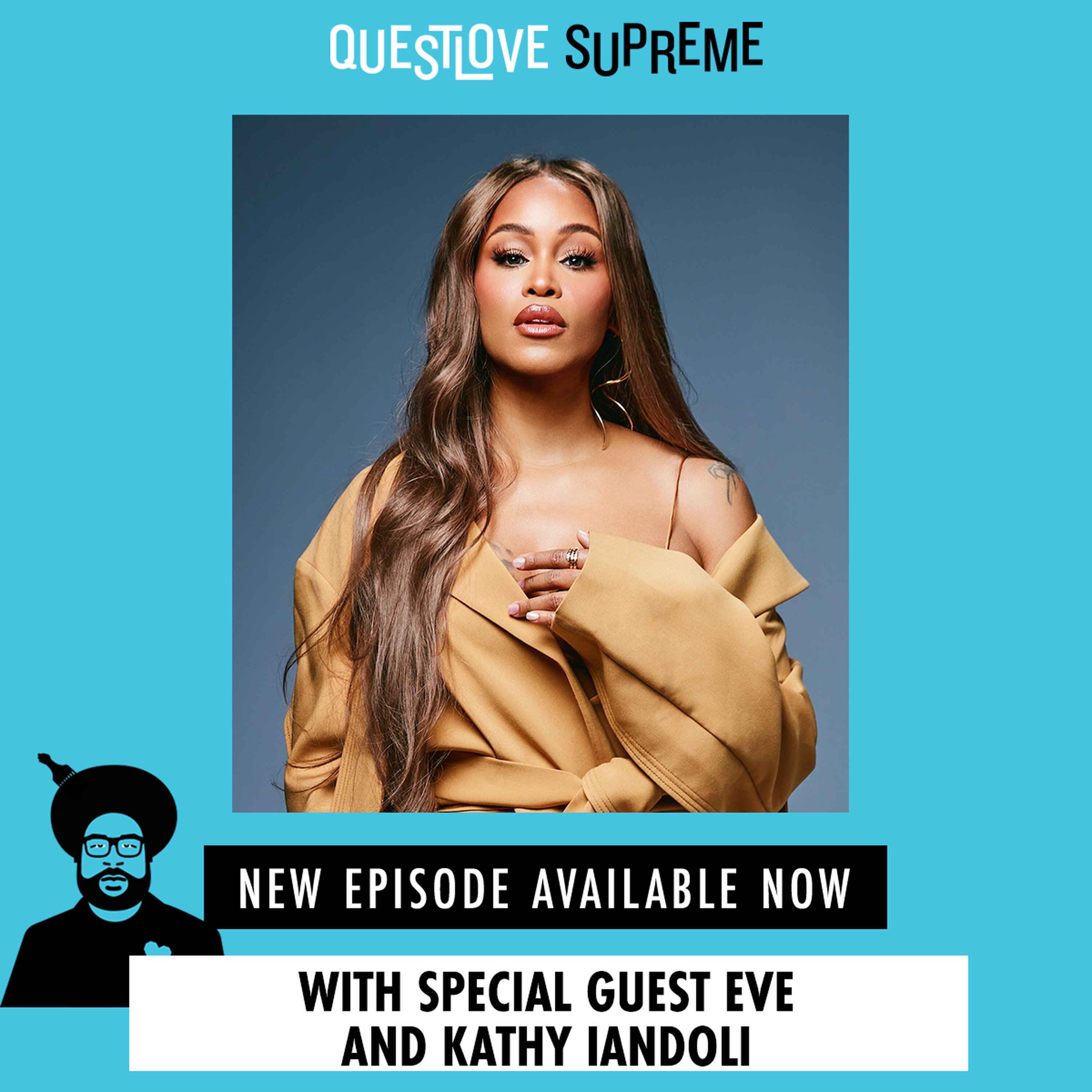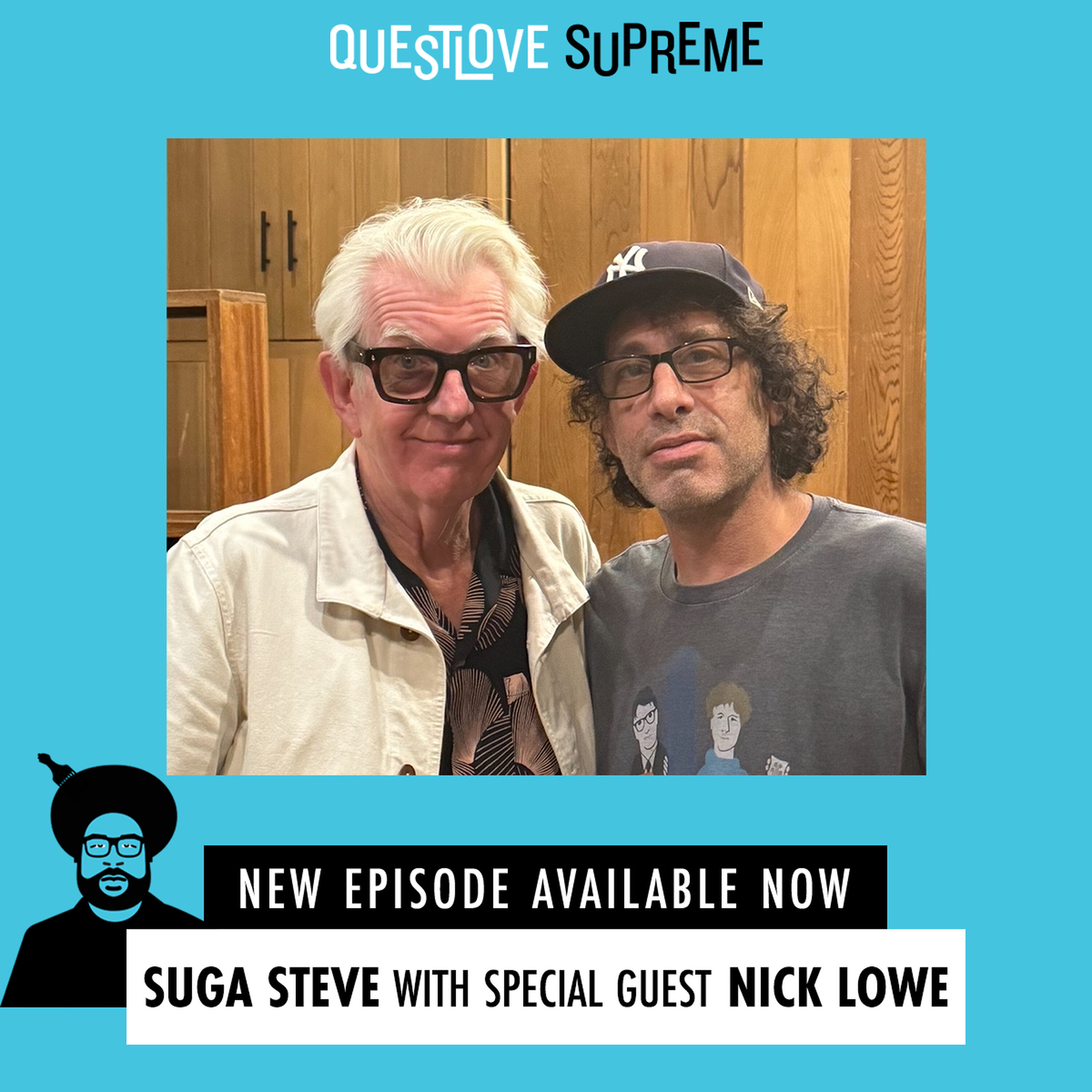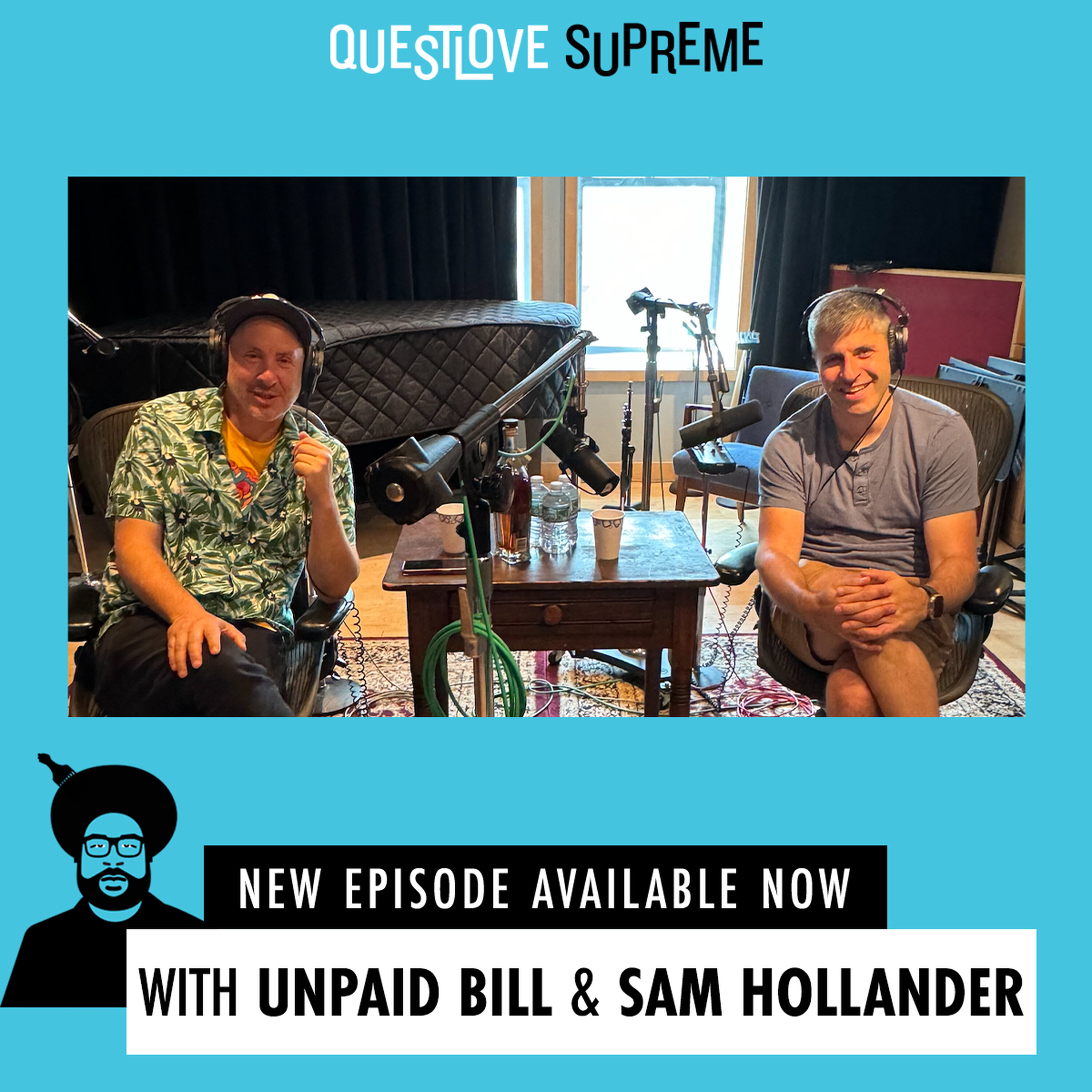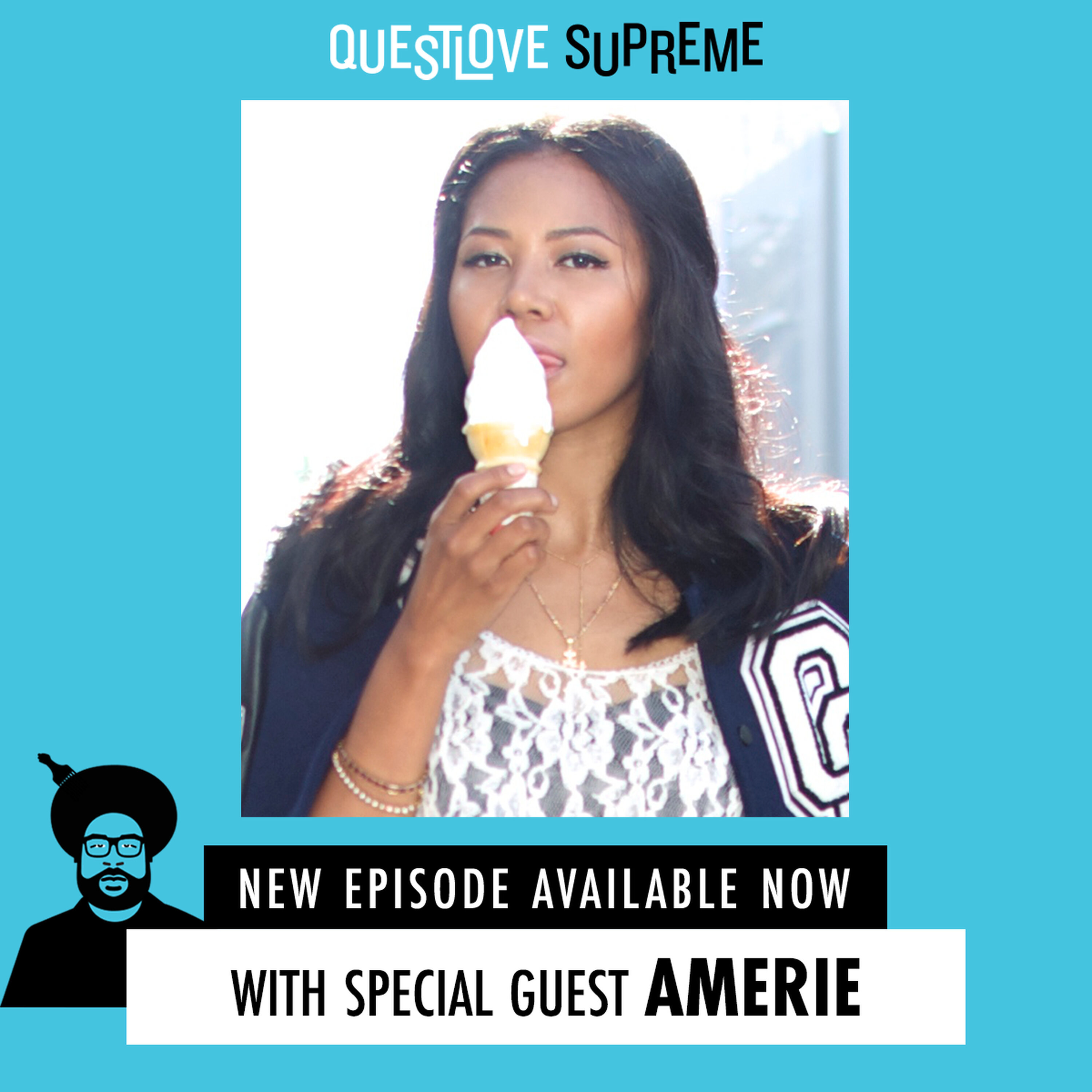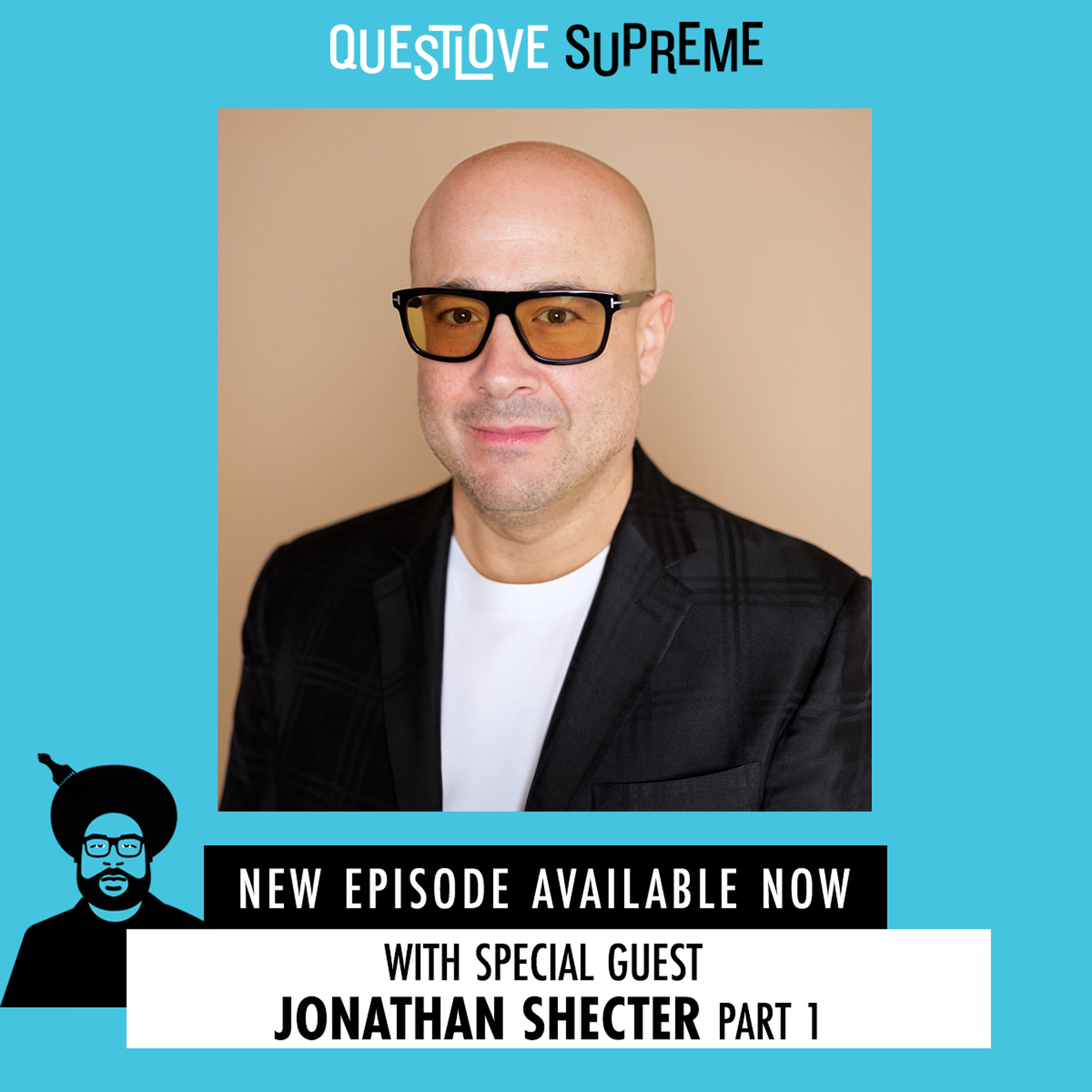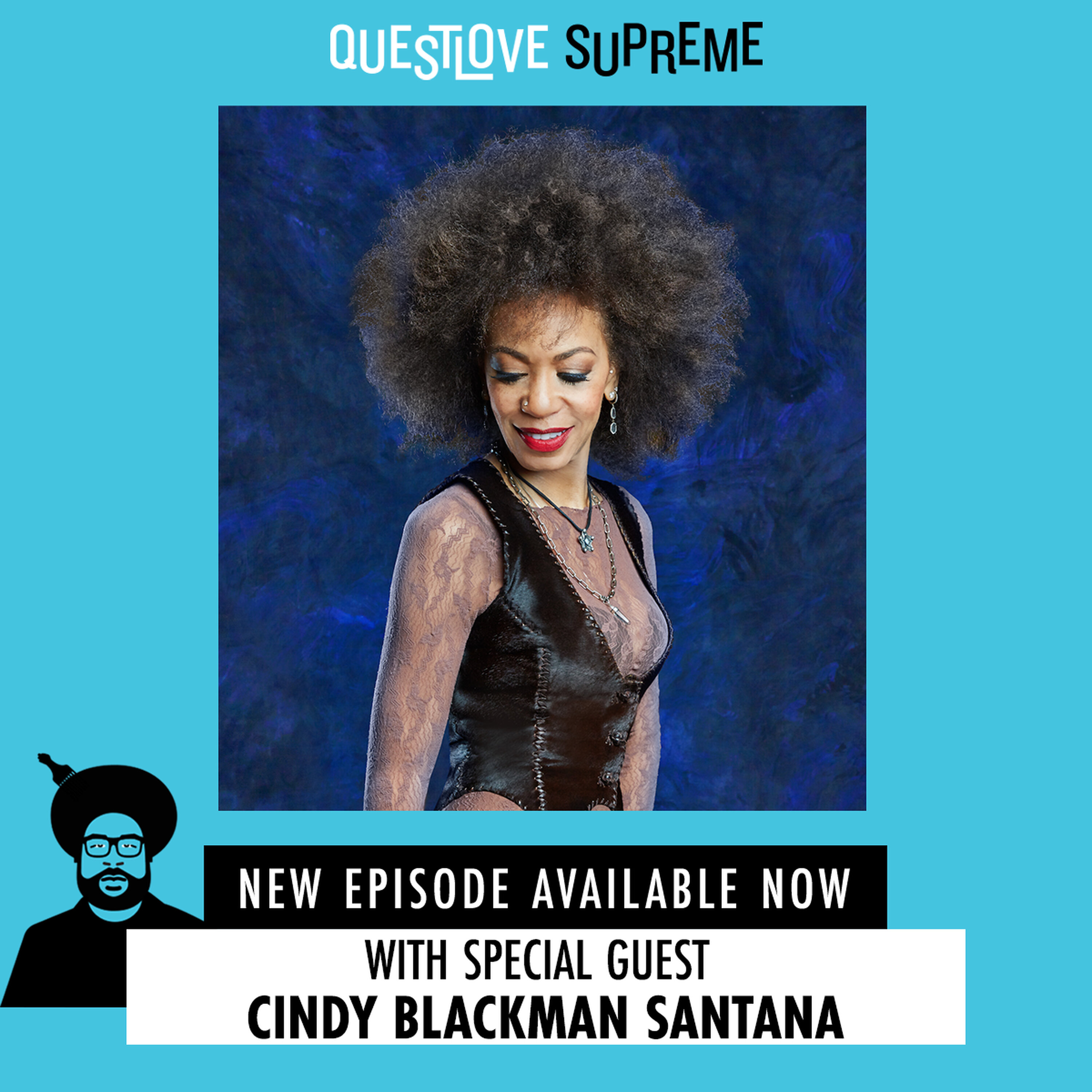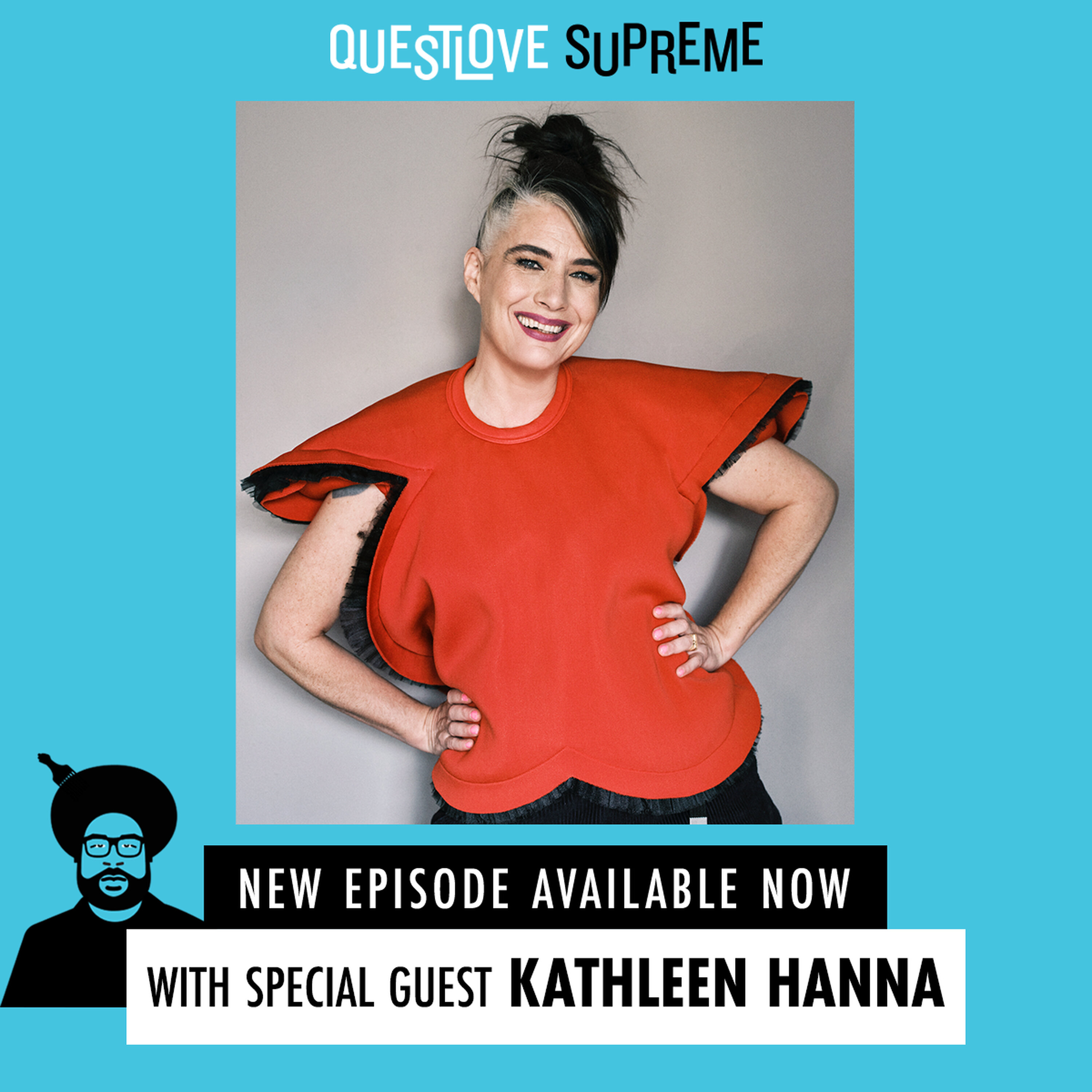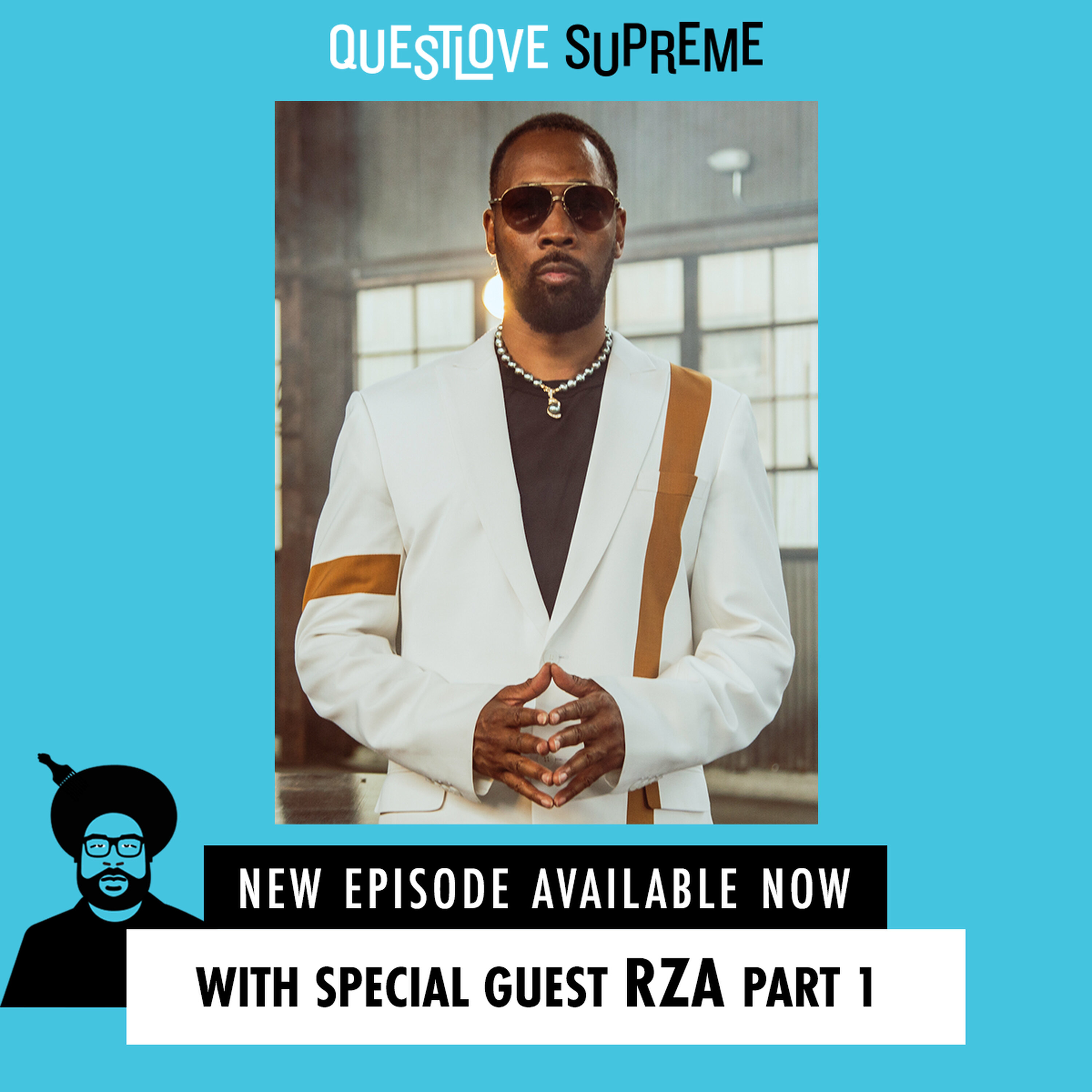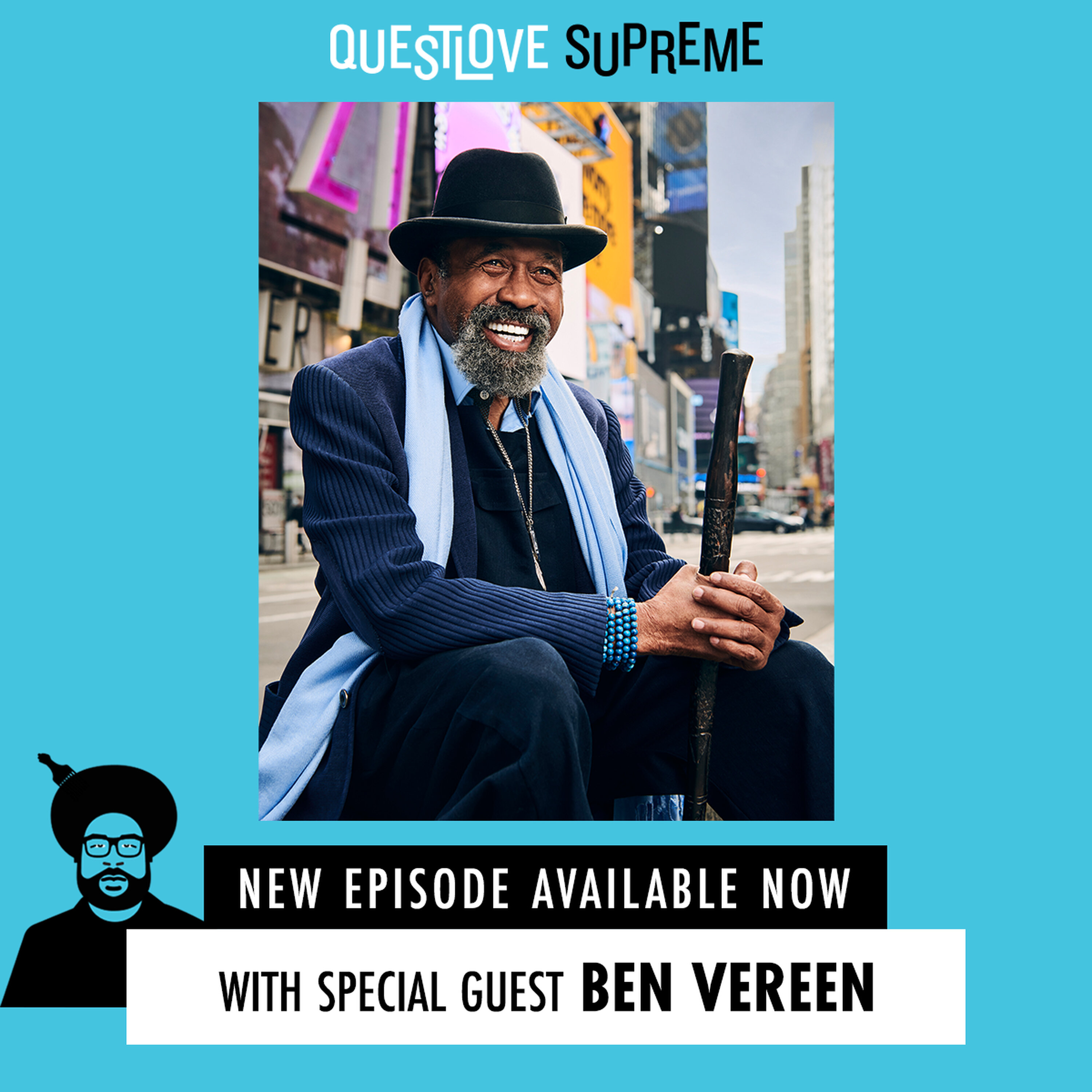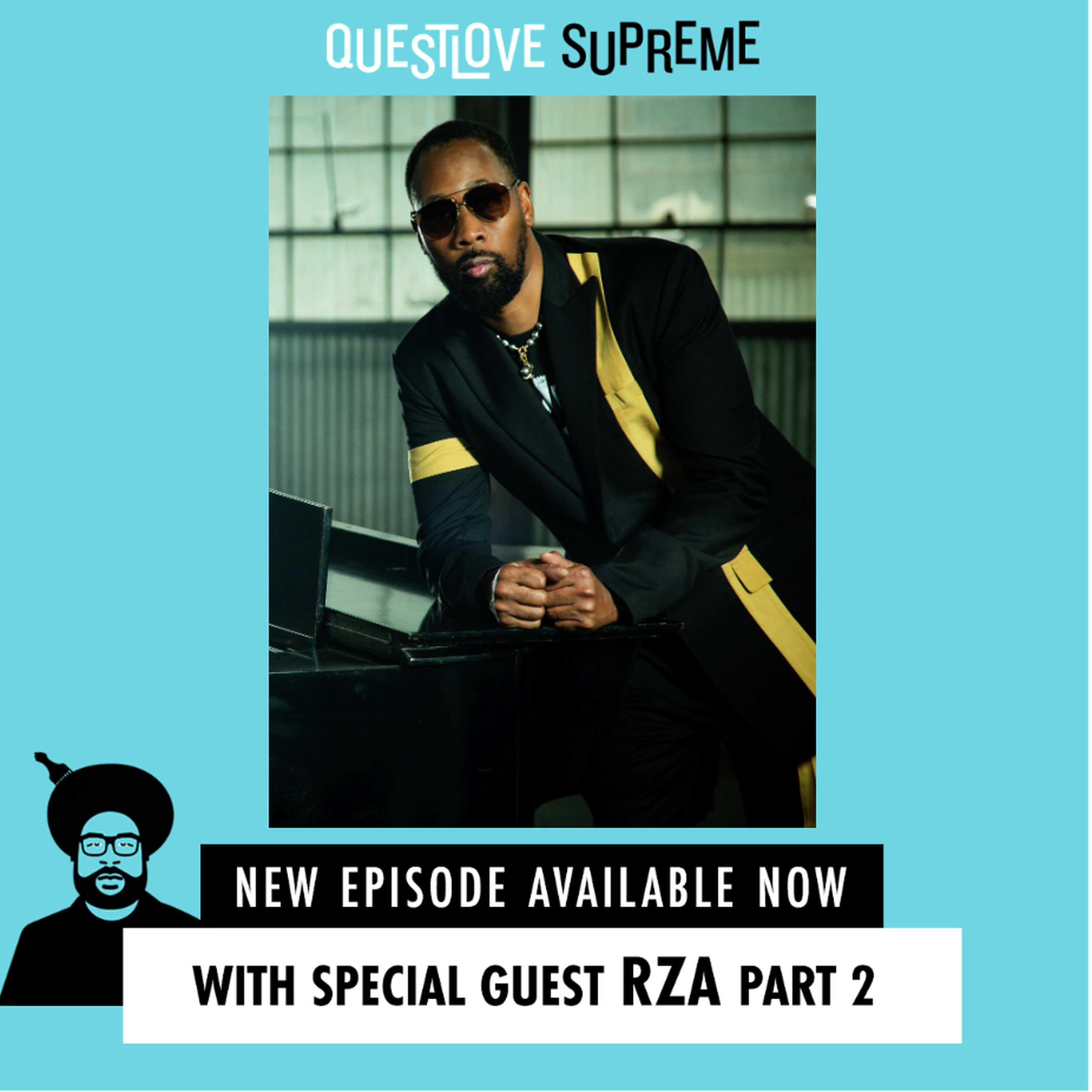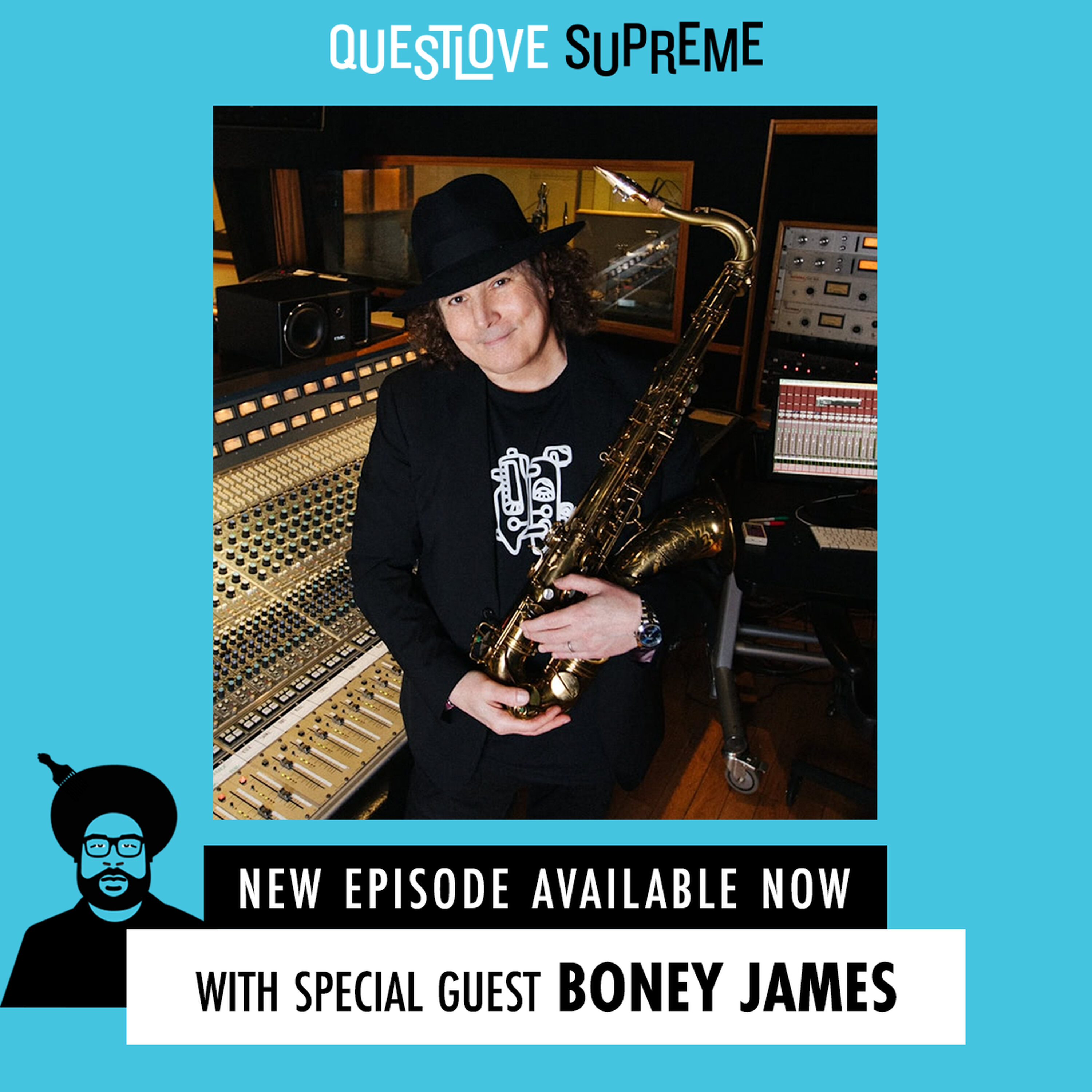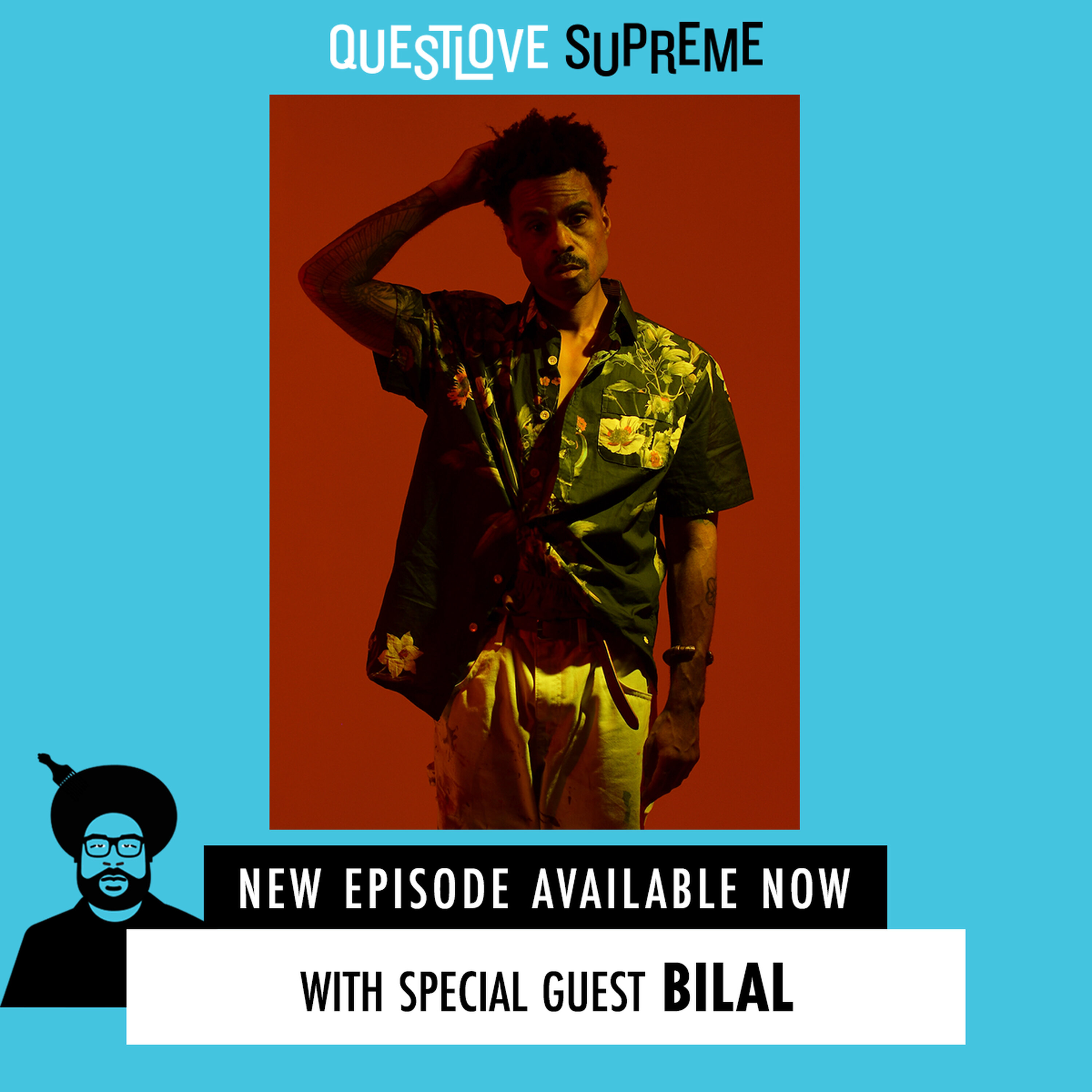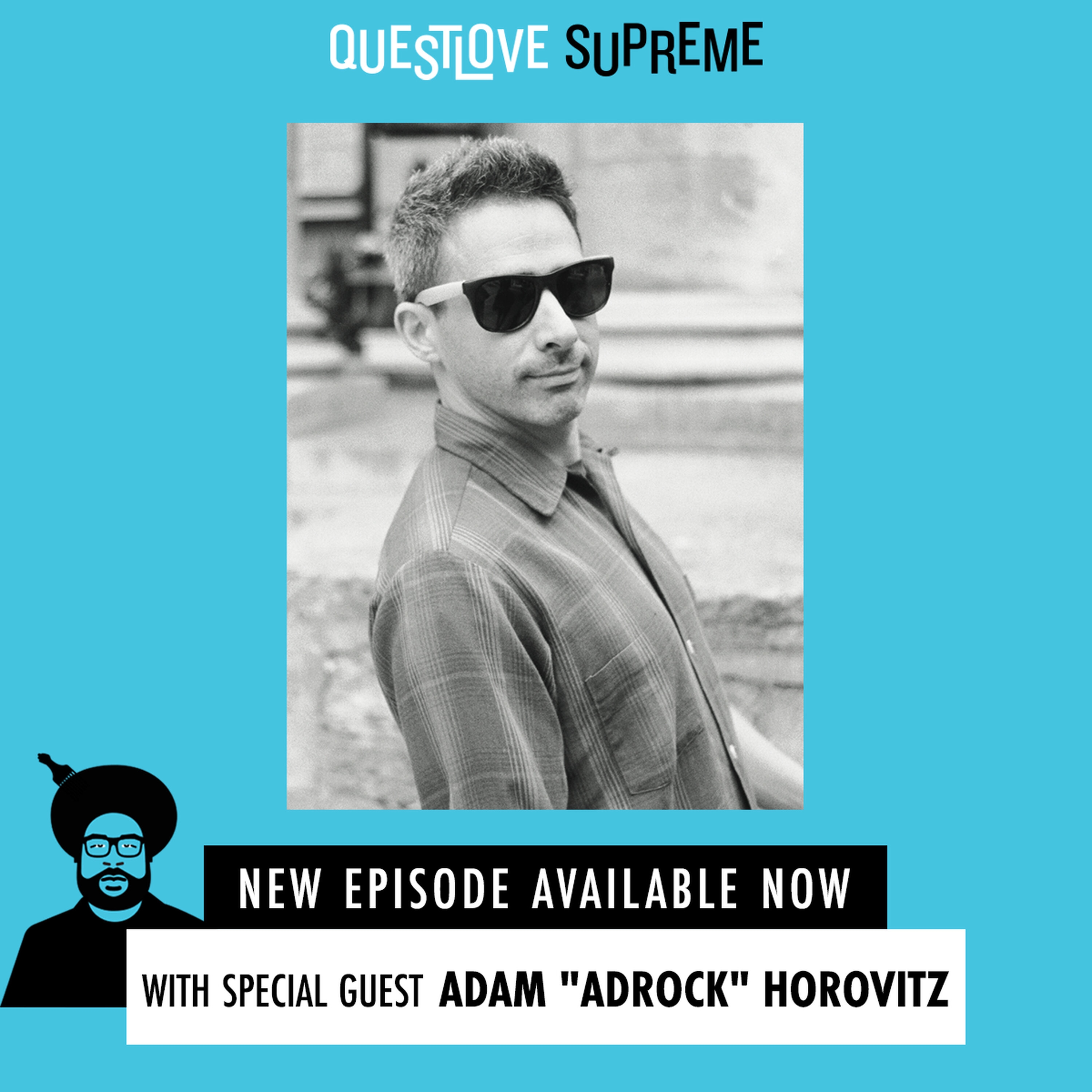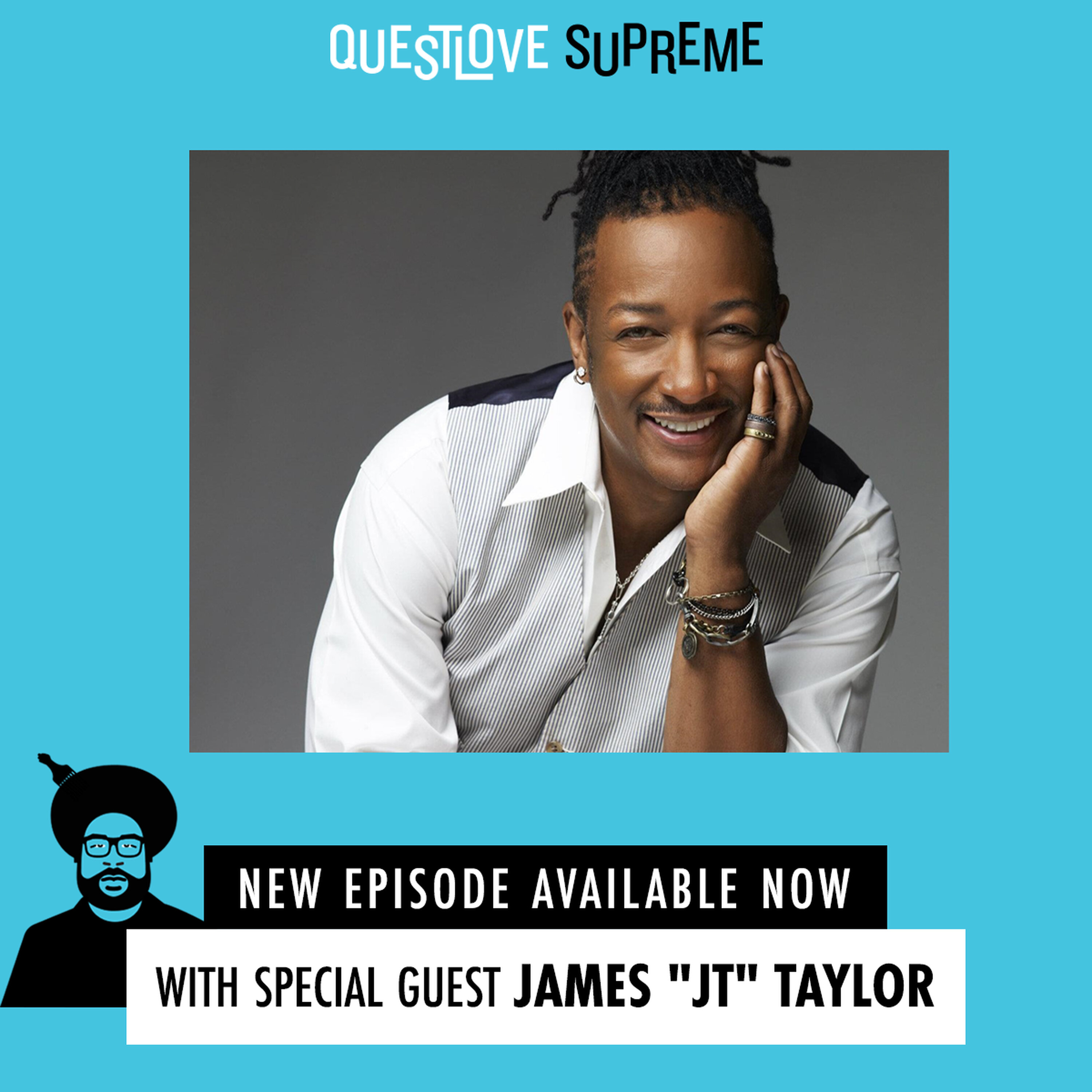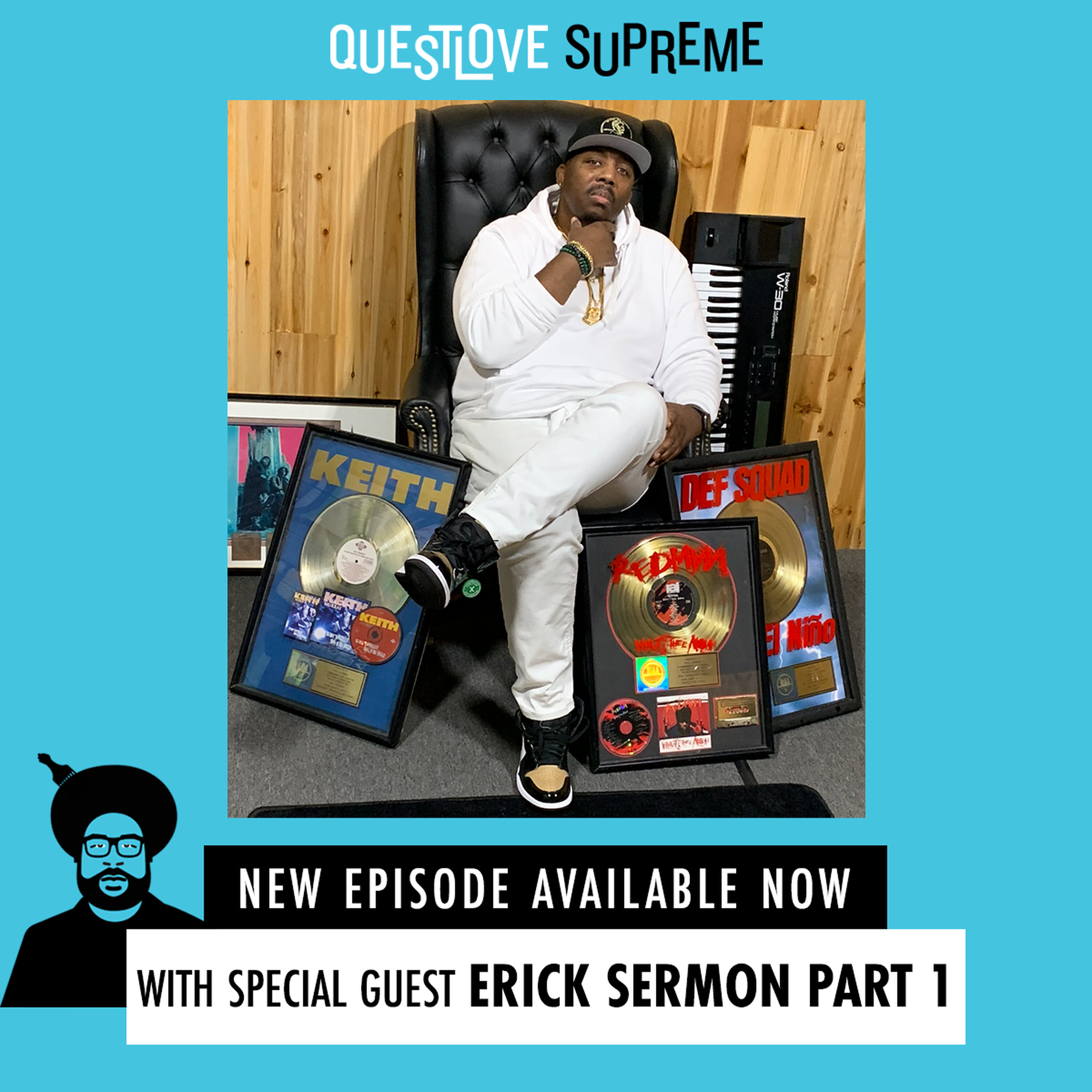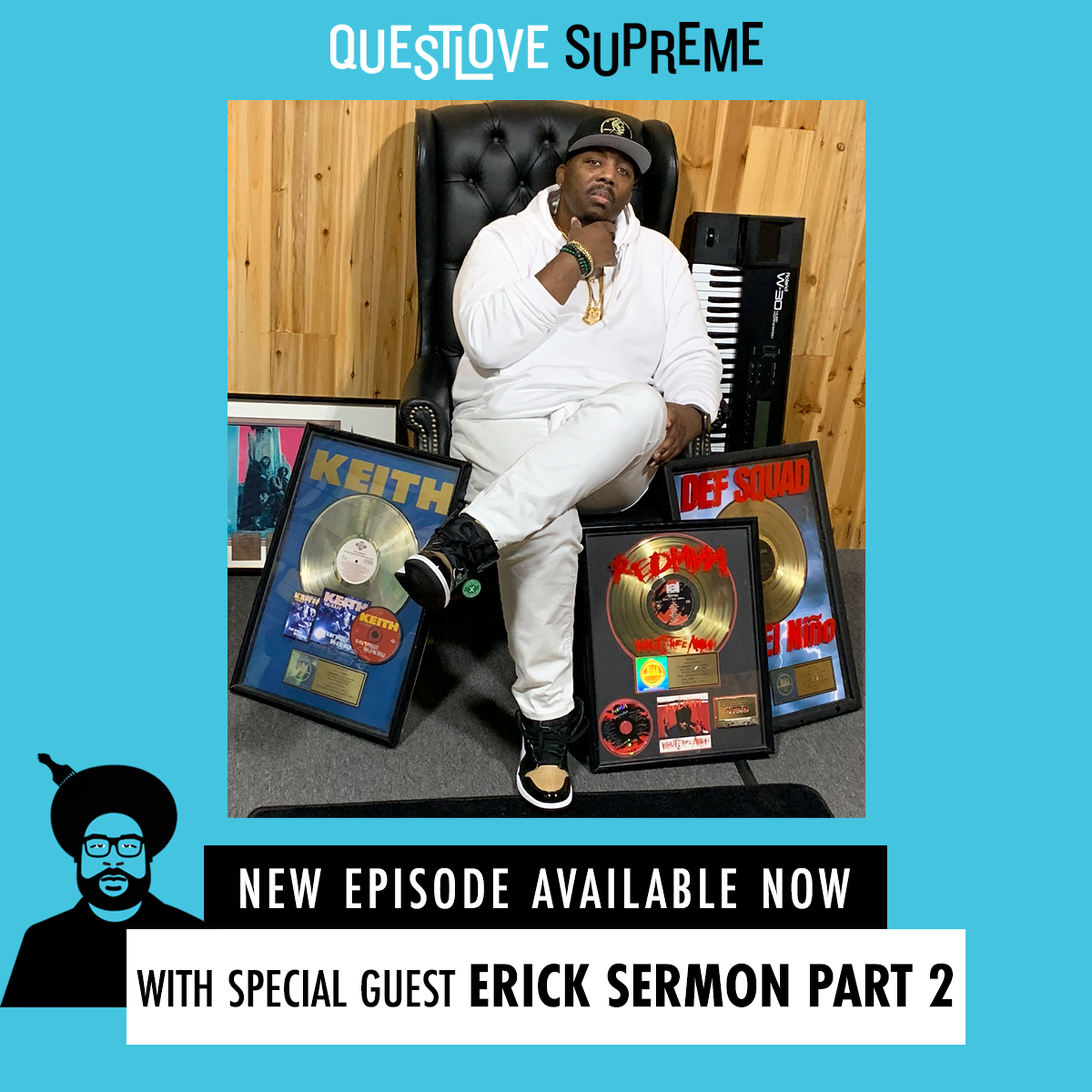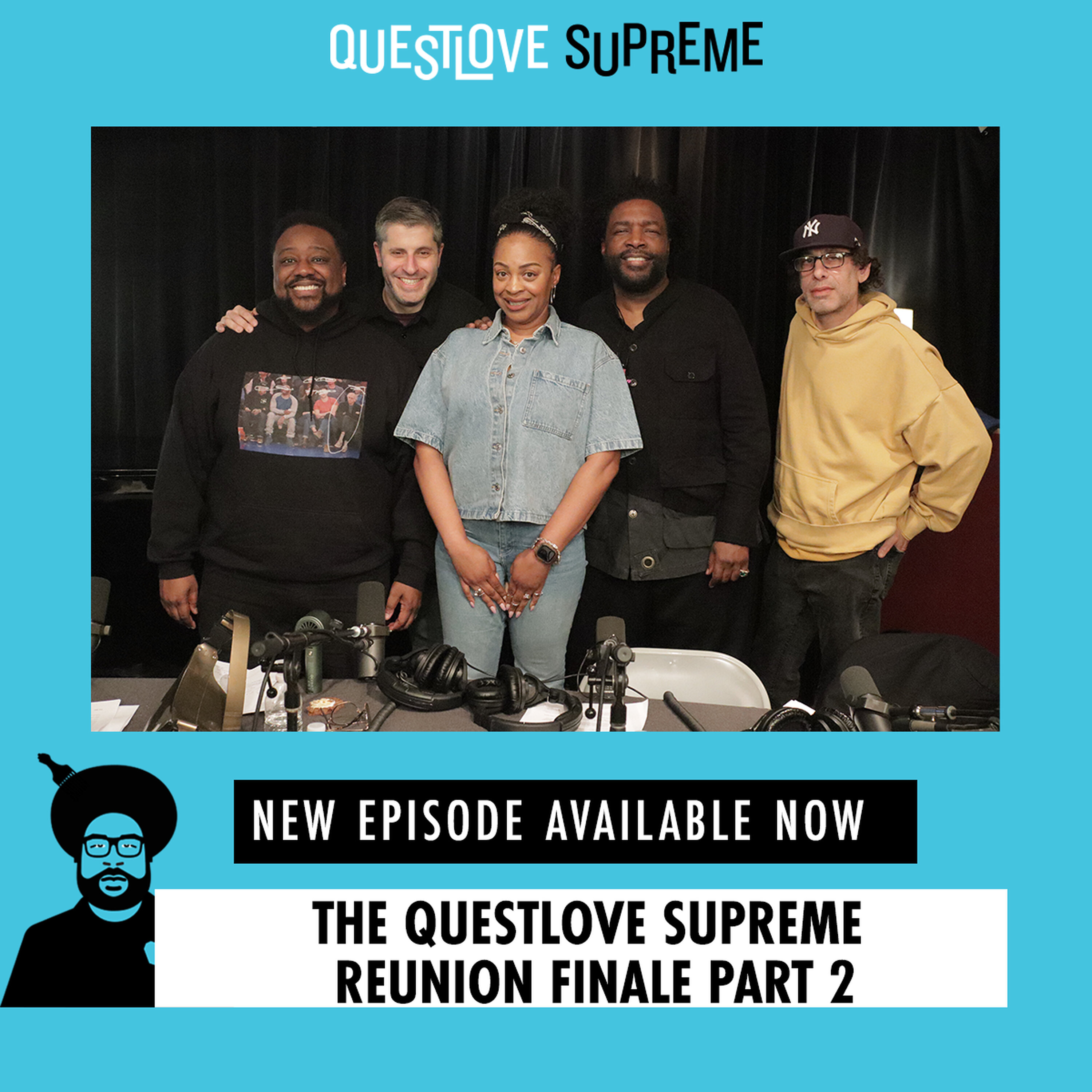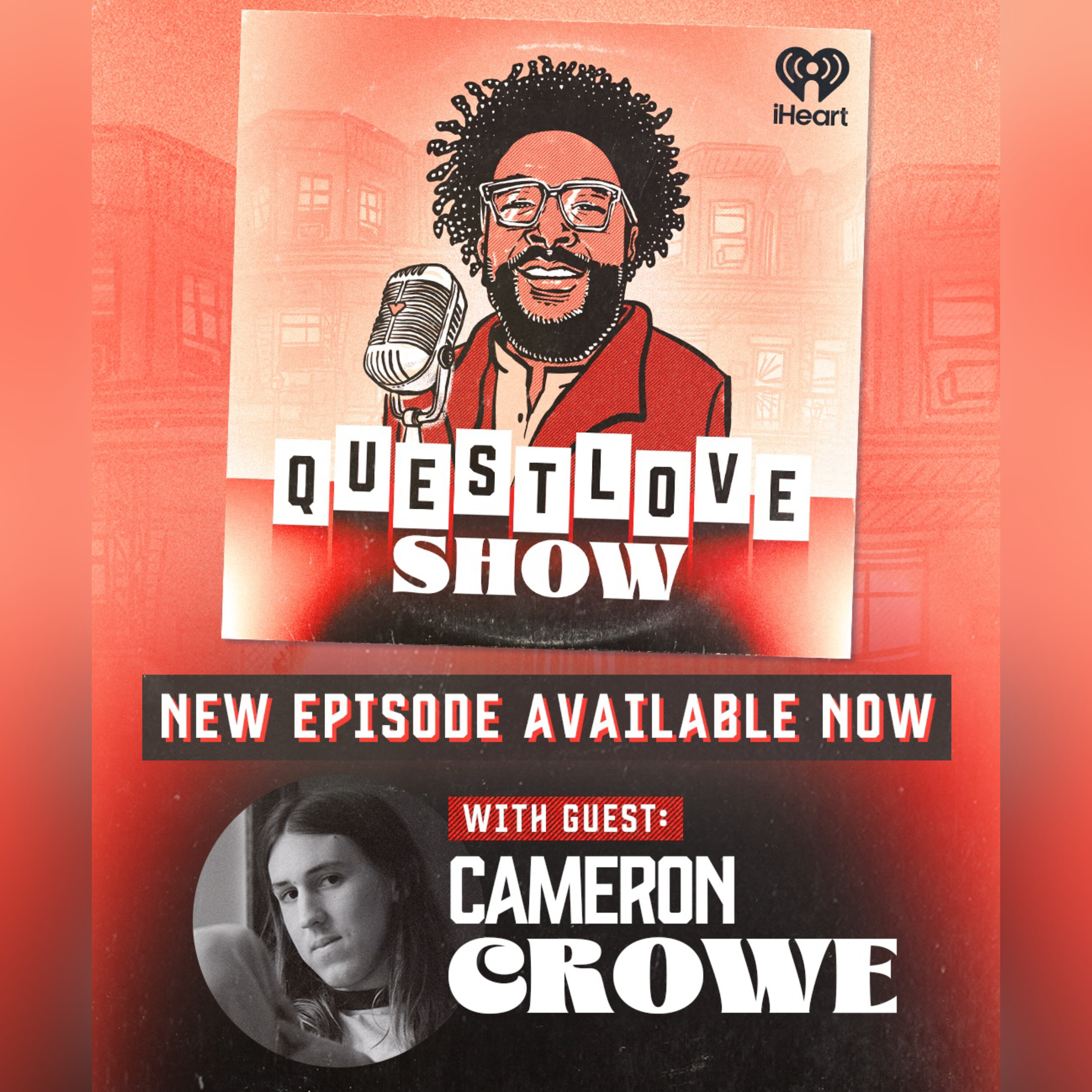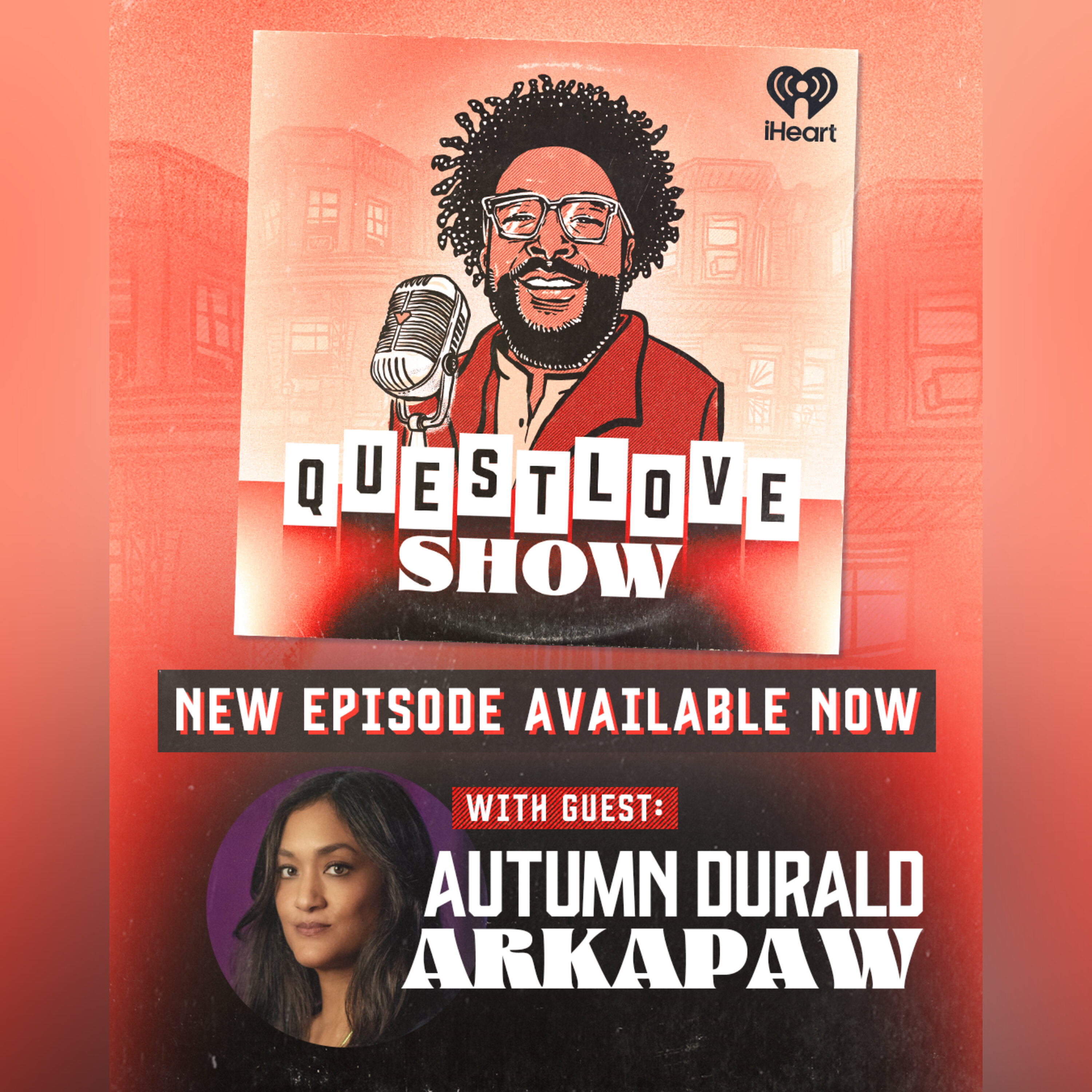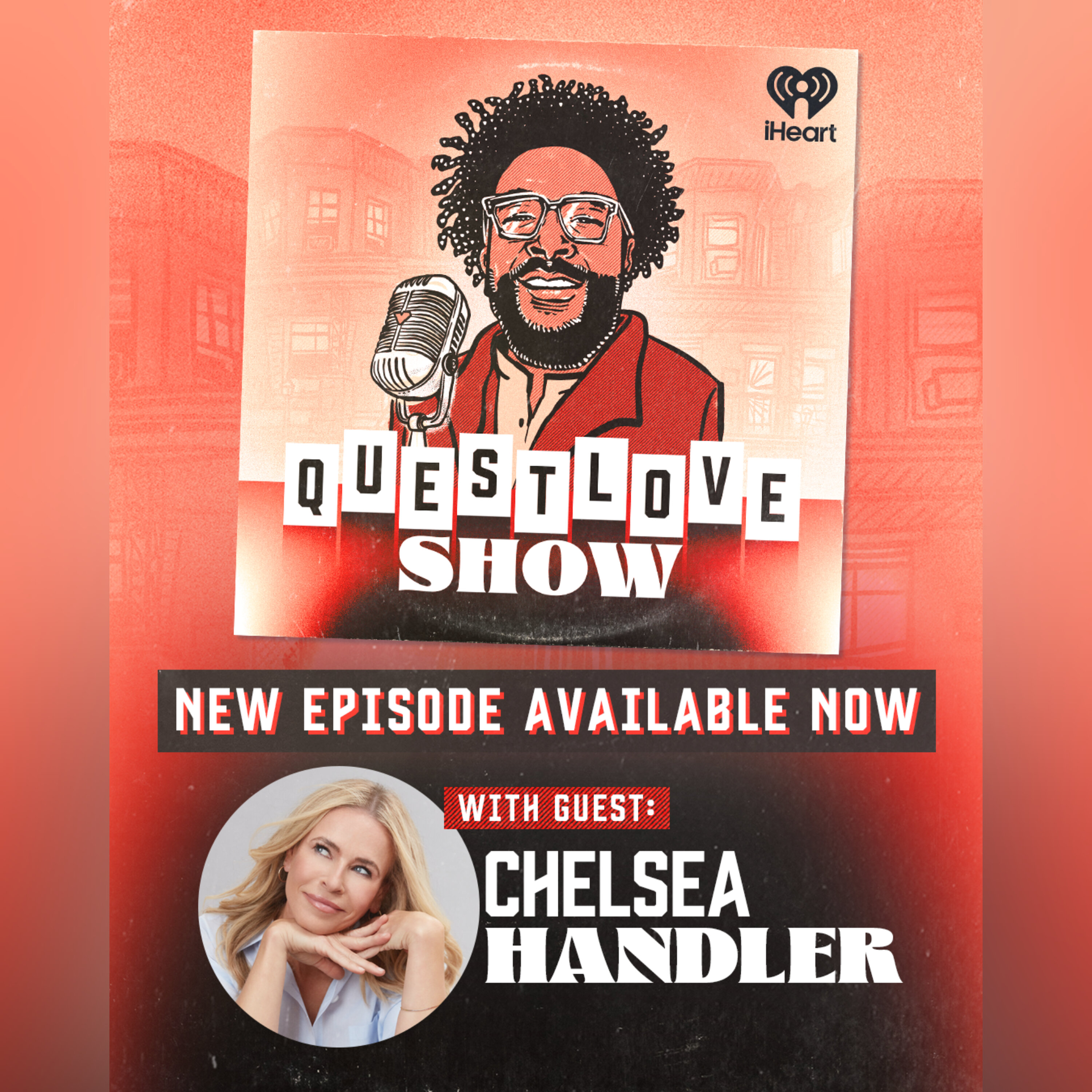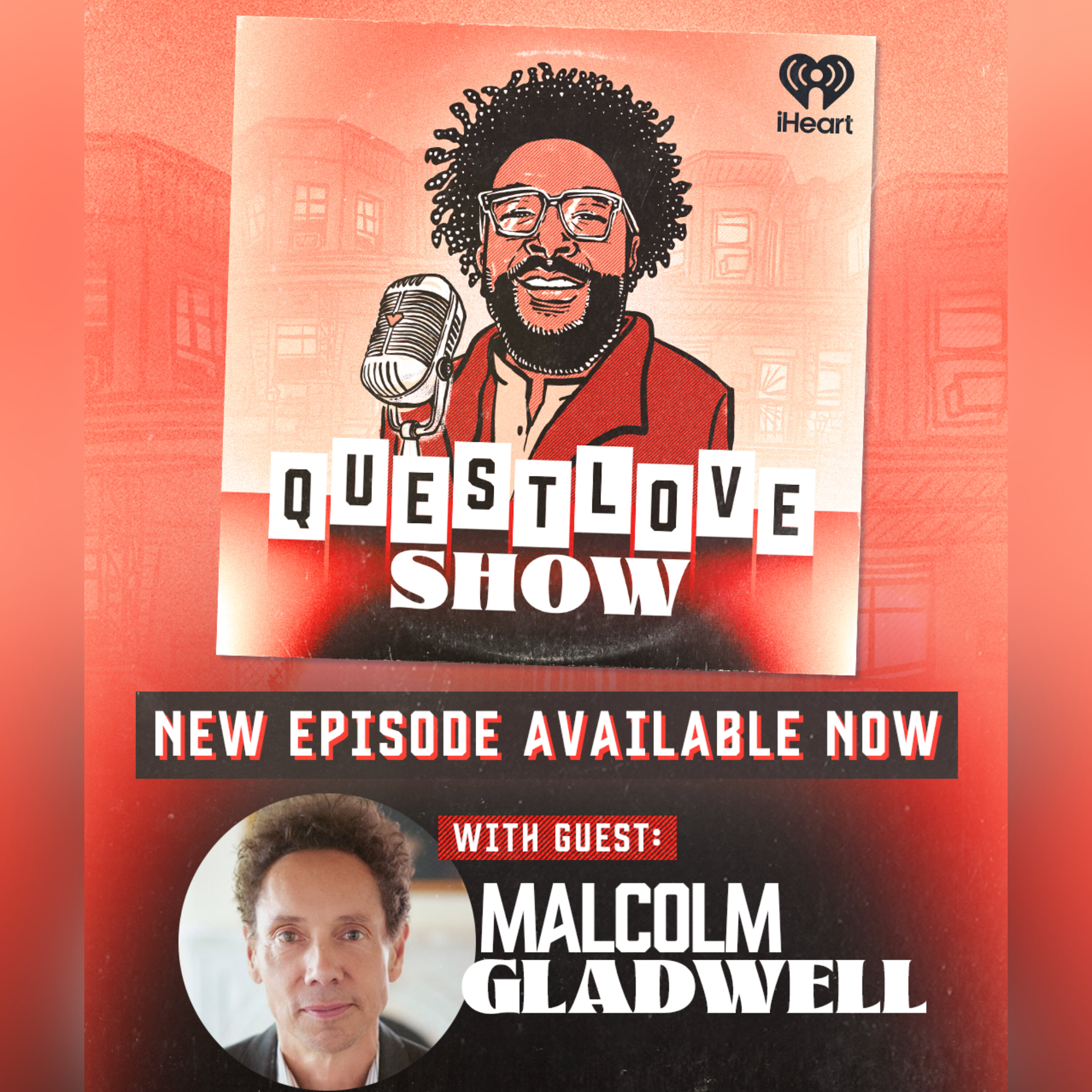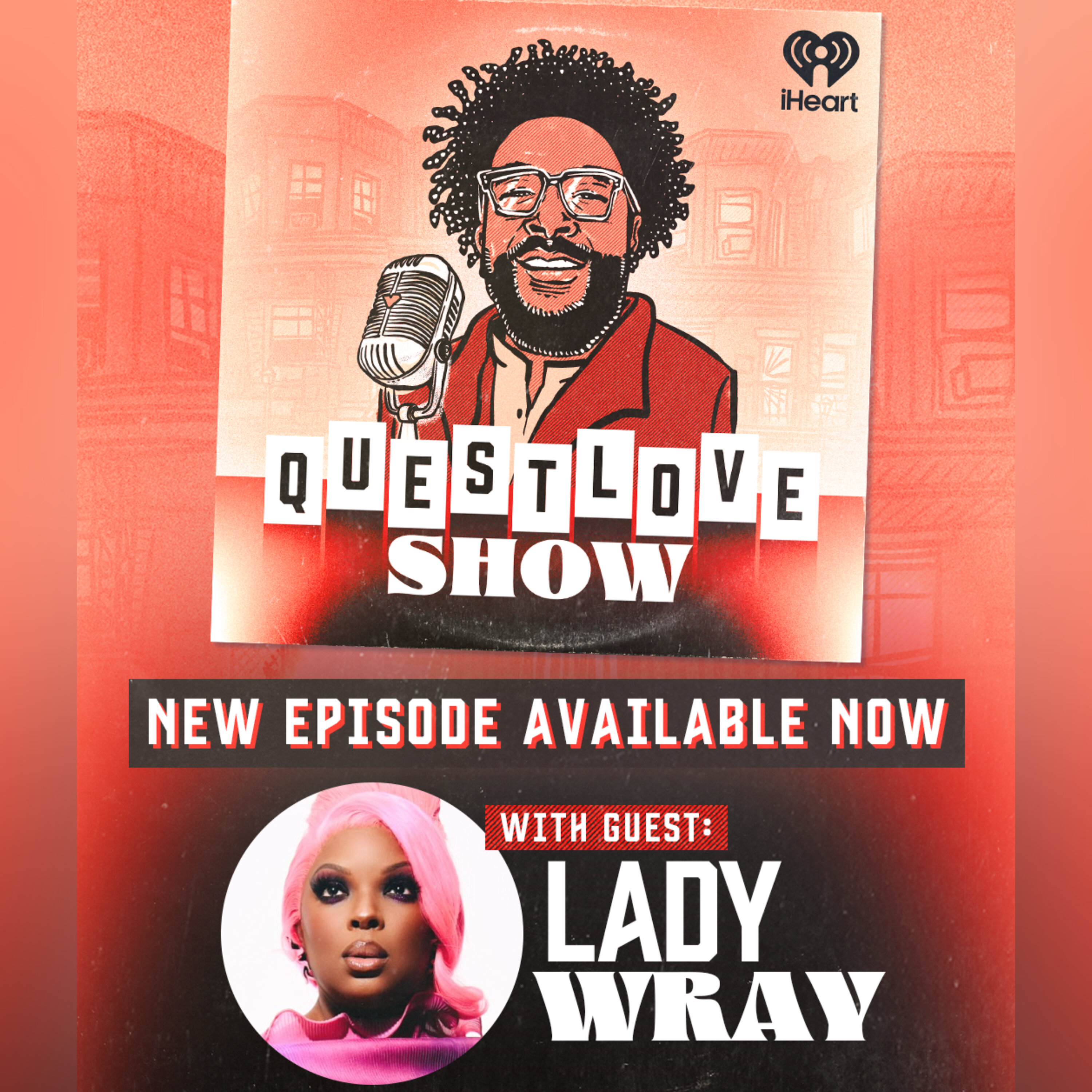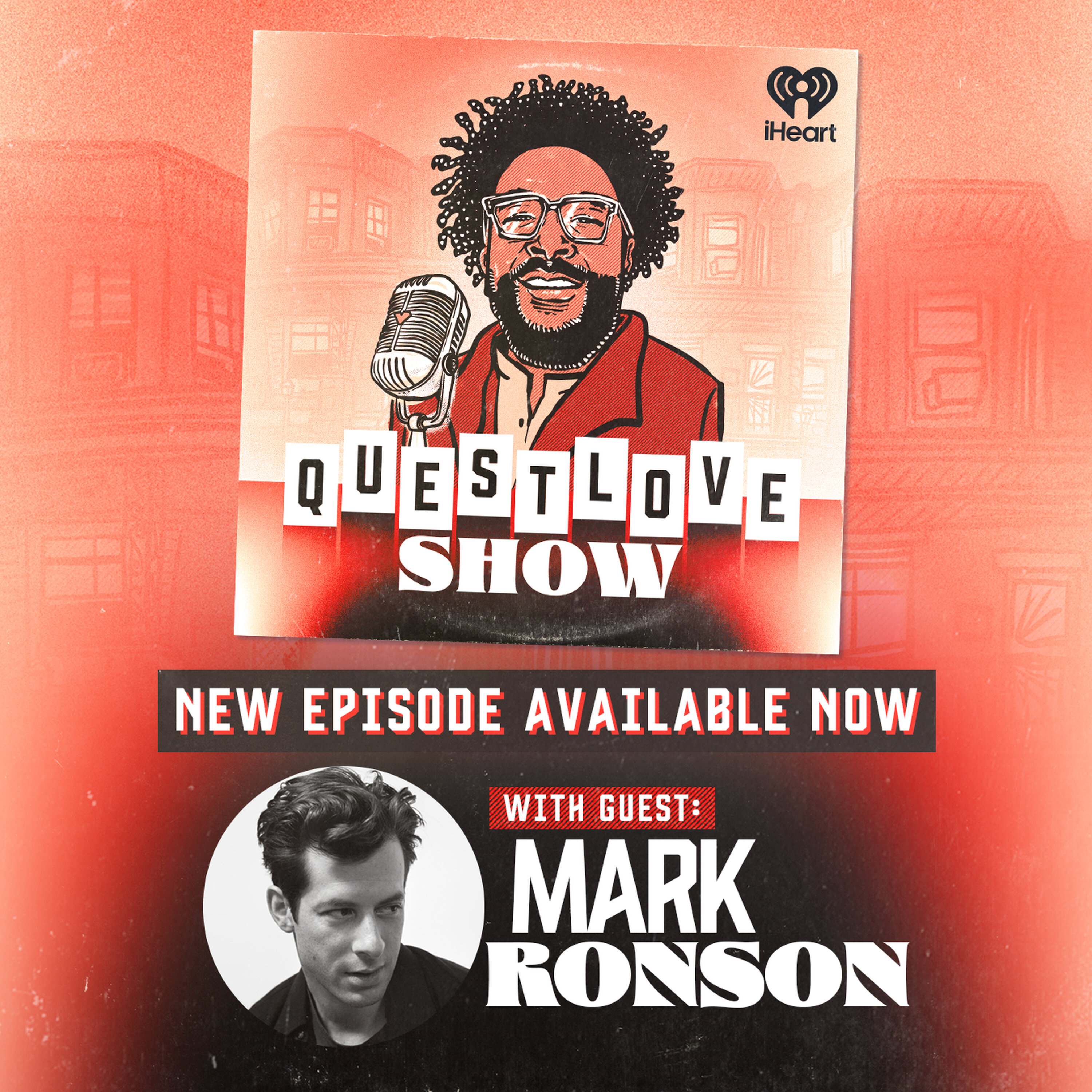QLS Presents First Musical Memories Part 2

In Part 2 of this special look-back series, Questlove Supreme examines guests' first music memories. Questlove shares another memory from his life and drops some anecdote. The second set includes memorable reflections from DJ Premier, Sananda Maitreya, Steve Ferrone, Adam Levine, Tevin Campbell, Brittany Howard—and more. As we celebrate these early impressions, please consider writing a review or drop us a line on socials, and let QLS know your own first musical memory.
00:00:00
Speaker 1: Quest Love Supreme is a production of iHeartRadio. Good People, Good People, What's up? Welcome back to Part two of QLs Musical Memories. I'm your host quest Love and I've asked his questions to hundreds, truly hundreds of people. You haven't checked out Part one, now's the time, but right now, here's part two. This one has a series of unique answers. Also, every one of these episodes are available to stream wherever you get your podcasts and on the iHeart app. Right about now, we're going to start with one of my musical heroes. All right, this guy man drummer of the Average White Band. He's drummed on so many records by Shaka Khan and Just the God. This is Steve Farhon. He shared a story about tap dancing. Ironically, that's all I also got into drumming, you know, I had to learn to tap dance first, coordinate my feet. And he taught us also about how tab dancing taught him about race and culture living in Brighton, England. So let's go back to twenty twenty two with the great Steve FERRONI can.
00:01:11
Speaker 2: You tell me what your first musical memory was?
00:01:17
Speaker 3: Well, you know what, I was told.
00:01:22
Speaker 4: Was that I used to sit in the high chair and we didn't have TV back then. We had radio, okay, And I'd sit in the high chair with my spoon eating and then some music would come on and I'd start banging my spoon on the on the on the high chair, on the table there to just keep in time with whatever music was on the radio. And that's was when they decided that my grand my grandma, my grandmother, and my mother decided that I needed to channel that that ability somewhere. So my grandmother was a big fan of tap dancing. She loved Fred Astaire and Jim Kelly and Tic Tac Toe and those guys. She was aware of them, and so she sent me the tap dancing school when I was better, as soon as I could, about three years old.
00:02:10
Speaker 1: Yeah, I was going to say, I just discovered that about you maybe a week ago when I was doing my research, and that's kind of my entry. And too.
00:02:20
Speaker 2: Drums.
00:02:20
Speaker 1: I went to perform in art school in the first grade, and it was one of those situations where you go to your drum lesson and the drums are right there and you're sort of like, let me at him, let me at him, and they're like nope, and they point to a practice pad on the corner, and you got to learn, like your roommate's like, it's almost like I had to practice to work my way up to the drum set. But even before I got to the practice pad, Yeah, I had to take tap dance. So yeah, yeah, all that bojangles me and my shadow like like I was, I was a hoofer, Like.
00:03:00
Speaker 2: Were you good at it? That was pretty good at it?
00:03:02
Speaker 5: Yeah, that was pretty good at it.
00:03:04
Speaker 4: I want medals and stuff.
00:03:06
Speaker 2: Really, can you can you still hoof now? Or is that I.
00:03:11
Speaker 3: Had a neat replacement that light on my feet anymore? But I could probably, I can probably I can do a timestep still, Okay.
00:03:20
Speaker 2: Yeah, Like around around maybe nine, age nine or age ten.
00:03:24
Speaker 1: I kind of eased out of that and just became strictly like music.
00:03:29
Speaker 6: Well, you know, I have.
00:03:31
Speaker 4: To say my first, like my moment that you had, that you said that you had with Average White Band, I had when I was about five years old. My parents used to take me. They used to take me. We had this I guess you call it Vaudeville or something like that. Vaudeville there was a theater called the Hippodrome and the Beatles played there actually, so it's kind of Bingo Hall now I think it is. But this is one of those theaters got sort of neglected and sort of let go little theater and uh and and they used to take me there to see these shows and and you know, usually it was comedians and pantomime at Christmas and stuff. And they took me there to see this show. And there was a band. There was a band, a close harmony group called the Deep River Boys.
00:04:25
Speaker 5: Deep from Brooklyn.
00:04:28
Speaker 4: Oh really okay, and they were very very big on Radio Luxembourg. Was was where you would where people would go to to listen to something other than the BBC, because the BBC used to just play classical music and it wasn't they didn't play anything at all, you know. So you go to Radio Luxembourg and you tune into Radio Luxembourg and they had a show on there and and I guess they also was it was also a show that was that was that was good for like uh, the the American forces were all over Europe at that point. They had the basis of France and Germany and and uh and and so they used to be on that on on the American Forces Broadcasting. But they had a regular show on this on this and they on Radio Luxembourg and they appeared at the Hippodron. So my parents took me down there and they did maybe it was kind of like gospel music, but I'd never heard anything like that, and I got really excited and started dancing around in the in the audience listening to this music is like, what's this?
00:05:29
Speaker 7: You know?
00:05:30
Speaker 4: Oh?
00:05:30
Speaker 5: Wow?
00:05:30
Speaker 3: Well is that ehen you find vanilla ice cream? You give a vanilla I skream to a baby first time they have it, They're like, why didn't you give me this before?
00:05:36
Speaker 4: You know?
00:05:36
Speaker 8: You get this baby food?
00:05:38
Speaker 1: Why where was this vanilla ice cream?
00:05:40
Speaker 5: Well?
00:05:40
Speaker 4: That was what what what I got with from their music, And they sent them manager there too me and they brought me backstage and befriended, befriended me.
00:05:51
Speaker 3: They made me Deep River Boys number six, and that was the time. That was when I found out that I was black. Oh word, okay, yeah, I had no idea. I had no idea that I was black until I went and saw these guys. And they took me back back to my parents, my grand my mom and my grandmother took me backstage to meet them, you know, with the they I've been invited back and I looked at these guys and they were six foot tall, which was then back then was gigantic, was a giant. And I said, I wish I could be black black you guys, back then we never said black was colored because it was disrespectful. It was disrespectful to say black black. Then I wish I was colored like you.
00:06:39
Speaker 4: And this guy Harry Douglas, who I stayed in touch with for years, he passed away sometimes sometime ago.
00:06:46
Speaker 1: Oh, you maintained a friendship with him.
00:06:48
Speaker 8: Yes, all through the years.
00:06:50
Speaker 3: Yes, it was just amazing.
00:06:53
Speaker 1: And uh and there the first Americans that you interacted with as well.
00:06:57
Speaker 2: Yes, how weird was it to hear? Did they have an accent to you?
00:07:01
Speaker 9: I didn't even know. I was just like, I was just so sweet. I mean that's how they sang. And they sang, they sang like, yeah, we heard. It seemed like we sort of heard about America.
00:07:13
Speaker 4: I think we had TV by then, So there a couple of TV series that we've seen, not much of a TV little thing like this black bohite thing, right, But but Harry Douglas looked at me and he and he said to me, he says, you know, tonight I'm going to cast a spell. And when you wake up tomorrow morning, you go look in the mirror and you and you'll be you'll be colored like we are. Sleep.
00:07:36
Speaker 3: I went to sleep, and then I got up and I went to the mirror, and yes, it was.
00:07:44
Speaker 1: Anything more about it. Oh god, that's a great story. Yeah, all right, that was Steve Farona, the average white band. Uh, he's played with so many giants. Next up, another great storyteller. You know, we gave our flowers to the one and only Tevin Campbell. What was your first musical memory in life?
00:08:08
Speaker 10: My aunt giving me the Amazing Grace album, the Franklin Mazin Grace album on the vinyl.
00:08:15
Speaker 8: She gave that to me when I was I think I was.
00:08:18
Speaker 10: That was the first album that I listened to continuously.
00:08:24
Speaker 8: Ah, I think I was maybe eight or nine. She gave it to you.
00:08:28
Speaker 1: So her version of Holy Holy is just like, come on, man, what were we talking about?
00:08:33
Speaker 8: Well, her version of Amazing Grace is, Yeah, it's incredible.
00:08:36
Speaker 10: I mean though the song was written by Amon, I didn't know that till years after a couple of years ago, I learned that.
00:08:43
Speaker 8: But anyway, she like, no, yeah, yeah, it does, it does.
00:08:48
Speaker 1: What was it like for you to see the film version of that after having lived with it so long?
00:08:55
Speaker 2: You mean you mean the her refas film version?
00:08:58
Speaker 1: She you know, when she was a she they tried to bring it out maybe like you know, like twenty years ago, and because of some sort of contractual dispute, she didn't allow it, so of course she had to pass away.
00:09:11
Speaker 2: Were you able to see the documentary or the concert the film.
00:09:16
Speaker 10: The Amazing Grace Yeah, yeah, yeah, yeah, yeah yeah, sorry, yeah. I thought it was beautiful in a point in her life where she was very happy, not that she wasn't happy at any point in her life, but she was glowing, and she was she had this afro and it was just beautiful, man, And you know, seeing her in her element, I think it was the.
00:09:37
Speaker 8: Most beautiful thing. I think that people were touched by seeing that film.
00:09:40
Speaker 10: Because you don't a lot of people don't know that she sat and played that pid piano a lot of the songs that.
00:09:47
Speaker 8: She did, and a lot of songs on an Amazing Grace.
00:09:49
Speaker 10: Album too, So to see her sitting there in her element, playing behind her and singing.
00:09:52
Speaker 8: It's just amazing all the time.
00:09:54
Speaker 1: So that most people don't know that she's like just as good as a piano player. She is. Yeah, it's important for people to see that. Here's Bernadette Cooper of Climax. Can you tell me what your first musical memory was?
00:10:12
Speaker 6: Wow, when you say musical memory like.
00:10:17
Speaker 1: Band that I now just from as a baby, Like what like the very first musical memory as a child.
00:10:25
Speaker 11: Of course, you know, Aretha Franklin was my was my played in my household when there was happy times, when they were sad times. So Rita was a person that I used to listen to and follow her lyrics and her and her vocal movements and her hooks, and and it made me a better writer by the Rita Franklin songs. And then of course moving on Dio Daddo, Remember Dio Daddo. Yeah, yeah, it was a little bit of all those guys. Jeff Beck, you know, I really got into that scene and kind of in the high school, junior high school era.
00:11:04
Speaker 8: But yeah, I would.
00:11:06
Speaker 1: Say, what was your first musical memory?
00:11:12
Speaker 12: My dad, my father, we were in a in a yard in the backyard in Outlan HALLI school, small little town, and it was like five o'clock in the afternoon. Everything's kind of gives gold you know, when the sound goes down, everything looks golden. And my father he was over there teaching me how to read and one of me teaching me how to play the violin. So he happened, opened up the violin case rather the violin put it put it up here like this, and then he goes.
00:11:38
Speaker 2: Meta, which means look meta. Then he went.
00:11:45
Speaker 6: And I'm like what.
00:11:45
Speaker 2: And then a bird.
00:11:46
Speaker 12: Comes over this, a little lance lance on this street, and he was he goes best, do you see? He goes bess one more time?
00:12:01
Speaker 1: Bird.
00:12:03
Speaker 12: If you could talk to the birds, you could talk to people.
00:12:06
Speaker 1: Get it. And I was like, and that was Carlos Santana. And you can add bird calls to as many talents.
00:12:18
Speaker 13: Oh.
00:12:19
Speaker 1: Speaking of which, wow, here's Mars day. Maris, what was your what was your first musical memory?
00:12:27
Speaker 5: It went way.
00:12:28
Speaker 14: Back, you know, because I kind of just came into the world with the notion that I was going to be involved with music, you know, born in fifty six, you know, and I can remember listening to the Beatles on our little am radio that we had, and you know, then later remember doing you know the James Brown running around my.
00:12:54
Speaker 15: You know, the house in the projects and fruit of the looms on doing the splits, trying to do James round and all that, and then sixty four comes around. We were one of the first you know, let you know how what priorities were back then, but we had one of the first color TVs in the projects all that. Back then, I was watching Bandstand Man, and I'm watching the Supremes at four tops, you know, all these motown acts on Bandstand and I was like, that's what I want to do, you know.
00:13:26
Speaker 5: So those were my early memories, you know, of music. But I just it was just in.
00:13:31
Speaker 1: My blood, all right. So you know, last episode in part one of this compilation, I gave you one musical memory. Part two, I'll give you another musical memory. Jimmy Jam would make fun of me during the pandemic when I was like DJ and online and you can read the comments as you DJ. Jimmy Jam always noticed that I would let the listeners know when a particular song scared me in my childhood, and I realized that I never liked songs that had a modulation in it, like whenever there's a dramatic key change. I was never a fan of that, Like it just sounded scary, real scary, And that's how it's always been great. Example Aretha Franklin's classic covering of Bobby Woomex I'm in Love. There's like a moment where there's like a bridge and then they go to this modulation key change, and then Eric Martin and Jerry Wexler put extra extra reverb on Aretha's voice, and you know, like I now know like gospel singing sort of comes from pain and whatnot. But yeah, I don't know. Just to my four year old ears, man, I don't know if it sounds like she was being murdered or whatever. So that's like a scary moment to hear. But also the beginning of me not liking modulation starts once again in my childhood. Three years old. Yeah, someone called child services for all the shit that happened during my third year of life. My sister and I are staying in Alta Dina, California, in my aunt's house while my parents are recording the Congress Alley album, the same Congress Alley album that Doctor dre used on a nothing but a g thing. I mentioned that a few times, my parents being a sample of those voices in the hook. Oh yeah. Anyway, So again in a bathtub, taking a bath, get out the bath and rambunctious two year old. I'm just running around, running around, and I slip and fall and I land kind of on my left side on our hot radiator. And the radiator has to be especially like back in the day radiators. Like now we have like you know, thermostats, and usually the heat comes from you know, like ventilators that are in the sky. But back in the day, man, they used to be on the ground, and they used to be burning and hot, like thinking of the equivalent of like an iron, just put an iron on and then just touch an iron, like that's how houses were heated back in the early seventies. And I slipped and my entire leg hits the radiator, and according to my sister, I think I had like second degree burns, but I was just screaming in pain. But right when this was happening, Soul Train was on and Curtis Mayfield was doing Freddy's Dead And there's a part in the middle of Freddy's Dead where they just briefly go to C sharp minor and a bunch of trombones and trumpets have the plunger, you know, like when New Orleans band uses the plunger, like that sort of thing, and they're doing that line and Freddy's Dead man and ah Man. I was never a fan of C sharp. C sharp minor is one of the keys that I don't like, Like when something scary happens in the movies or whatever, like that's the that's the key I don't want to hear for some reason. But any song that had a modulation after that I was not a fan of. Maybe with the exception. The only one that passed that test, I'll say was Stevie Wonder's Golden Lady, which used to, you know, at the end of the song, every four bars it would just go higher and hire and hire. So that's another distinctive memory from my childhood. What was your first musical memory in life? The Beatles.
00:18:00
Speaker 16: I was two years old, and it's the first not only musical memory, it's my first memory. I would imagine the thought. I almost vaguely think I remember a picture of my father being banished from my life my biological father. But obviously I would have suppressed that if it was a negative emotion. But at the age of two, I remember.
00:18:22
Speaker 6: She loves you. Yeah, yeah, and oh you.
00:18:28
Speaker 5: No no no, no no.
00:18:29
Speaker 16: If you don't understand, I want to hold your hand, and she loves you. That that is the earliest memory I have. And I just think it's so awesome that it was a musical memory as well, because nothing you know that that was the music that woke up my consciousness to the fact that I was existing in that life.
00:18:48
Speaker 1: So that was my first memory.
00:18:50
Speaker 16: I also remember seeing Breakfast at Tiffany's on television when it came on in nineteen sixty four, I think also too, or somewhere around thereabouts. And I remember my mother buying me some Batman cards because that was my first hero was Batman. So those memories around the same time.
00:19:11
Speaker 6: They were all the East Ards, New Jersey memories.
00:19:15
Speaker 1: And that was the great Sanata Matreya. Yes, the former TTD from our twenty twenty four to one on one interview, and this is John Oots back in twenty twenty two with a really touching memory of my father's music. Hope you enjoy it, do you know what your first musical memory was.
00:19:37
Speaker 5: I sure do, I absolutely do. Right after we moved to Pennsylvania, there was a place not too far away called Willa Grove Amusement Park. Okay, and now it was an airbase as well, but anyway, at the time it was an amusement park. And my folks took me there and Bill Haley and the Comments were playing in the band show. And I don't know if you remember, but Bill Haley was from Camden, of course, and so I was like I was probably four maybe, and of course, you know, I had had this musical sensibility at the time, even as though I was a little kid. And I remember running down to the stage. It was the band show, so the stage was only maybe two feet high, and I remember being this little kid and I ran right down to the band shell. And I remember the bass player, the upright bass player. At one point in the show, he rode his bass like a horse, and I thought that was the most amazing things I'd ever seen. And that actually the first live music I ever heard was Rock around the Clock. And and uh, you know Bill Haley in the.
00:20:41
Speaker 1: Comets really, so they were just performing at the.
00:20:46
Speaker 5: They were in the they were performing at the amusement Park. Yeah.
00:20:49
Speaker 1: I was going to say, I think I believe that I too saw a latter day Bill Haley before mat. Then we used to we had something called the Steel Pier.
00:21:01
Speaker 5: Oh yeah, I played at the Steel Pier.
00:21:04
Speaker 1: Yeah, the Steel Pier in a Lank City. It was in Lank City, right or wild Wood Yep.
00:21:07
Speaker 5: No, it was in Atlantic City. And when I was a really little kid, around five or six, I sang at something called Tony Grant Stars of Tomorrow, which was a kitty talent show at the Steel Pier.
00:21:22
Speaker 1: In my dating myself, I had mentioned the word Al Alberts. Where you do you remember the Al albert show Case at all?
00:21:27
Speaker 5: Yeah? Yeah, it was. It was around that time, and there was a guy and it was actually before Dick Clark took over Bandstand and it was what was his name? There was a different host before Dick Clark, but it was during that period of time. It was in the mid fifties. And uh so.
00:21:44
Speaker 1: You you were there for like the the do Op era of Philadelphia.
00:21:48
Speaker 5: Yeah, du Op and Jerry Blavitt and all that stuff. Jerry Blavitt was a big hero of mine. Yeah, was that the radio show that he used to do from I think it was from Trenton where he'd play all B sides and man, I heard, you know songs like Violah by the Versatones and you know and Guided Missiles and you know these songs that were just unbelievable. And you know your your your father man Lee Andrews and the Hearts. Man, I mean, you know, tik tik, ticking of the clock. He got a call.
00:22:25
Speaker 1: Can you tell me what your first musical memory was?
00:22:31
Speaker 6: Oh? Man, first musical memory. My grandmother had like one of those big consoles that has like the eight track player and the record player and the speakers built in. And I remember being really young, maybe four, and messing around with all the vinyl yes and pulling out some of the albums and had them all on the floor, and my Grandma's like what you're doing, you know, like don't break them and all this, and I remember her putting on the Thriller album. But I remember here. I remember hearing the speakers because it's like a tube system. Remember them warm up, and then I could hear, you know, songs of Thriller coming out of the speakers and being like, what the hell is this, you know, M kind of kind of amazed in the name of by the whole thing, not just the music, but just all of it. You know, the warmth of it coming on.
00:23:26
Speaker 1: Was that your kind of I don't mean come to Jesus moment, but for you, was that like the moment where it's like, Okay, well I want to also express myself in this way through music or.
00:23:43
Speaker 5: Nah.
00:23:43
Speaker 6: So no, not really. I mean I had that kind of moment when I was eleven. I was in middle school, and in my middle school, I don't know what if a grade eleven is fifth or sixth grade, and there was a band from our school rented out our gym and they were gonna put on a show. And I remember all throughout the day everybody was asking, are you gonna go to the show? You're gonna go to the show? I was like, I don't know, I'll see if I can get there. And so I get to the gym and I'm by myself. I remember being like super anxious because I don't really know anybody at well, and the band plays and amusing them play on stage, and kids I went to school with. It was like I didn't know these kids could do this. There were so talented. Look at the effects they're having on people. It was songs that I liked and I knew, and it was like the coolest thing I had ever seen. And it was in that moment standing in the gym that I knew I wanted to be in a band, and I wanted to make my own music and I wanted to be up there like they were. Like I think that was a come to Jesus moment for me.
00:24:42
Speaker 1: Okay, how long before you found other people that sort of had a common love for music? Like was music something that you kept close to the chest? Or like how big was the music community down there?
00:25:00
Speaker 6: It was? It was? It was so small. I had to teach people how to play music to be in a band.
00:25:07
Speaker 7: Wow.
00:25:07
Speaker 6: So I would go teach myself the instruments, and then I would go back to school and I would just try to find a kid with some sort of musical talent like rhythm, and I'd be like, Okay, hey, do you want learn how to play bass guitar? Like do you want learn how to play drums? And I would I would tutor them and see if that get to a pointment where we could make music together. Some some yes, but a lot no, Like it just didn't happen. I was trying to make it happen. And it wasn't until I was probably like sixteen years old that I finally met some kids who also were interested in making music. And that that was Zach Zach copple Bassis for Alabama Shakes. And then he's Fogg who became a guitar player, and it was them, So this whole thing really started from my school.
00:25:48
Speaker 1: Was guitar your very first instrument of choice? Or did play other instruments as well?
00:25:55
Speaker 6: My first instrument, I guess technically is like piano, and then drums, drummer and heart and then basically yeah, yeah, yeah, a lot of my yeah, a lot of the drums on my new record, I programmed those drums. I'm not saying I could play them like that, but I can hear it, you know, And uh yeah. Then I learned bass, and then I only learned guitar because I had to. I didn't really want to play guitar really, no, I want to be in the rhythm section. I just one. I want to play bass. What is the gap though?
00:26:29
Speaker 4: Wait?
00:26:29
Speaker 17: The gap in between you knowing you wanted to do this and you teaching folks that the music.
00:26:35
Speaker 6: Like, how are you learning?
00:26:36
Speaker 7: You never kind of said that yet, Well you just yeah.
00:26:40
Speaker 6: So at firstly I didn't have those instruments like drums. I could have access to drums because there were a set of drums at our school, so I could go play those drums after school. When it came to bass guitar, I would just borrow one from one of the rich kids, because like I don't know what it was about school, Well, all the rich kids had a bass guitar. Let me borrow it, you know, and they let me borrow it. And so I taught myself how to do that. And the guitar my my sister had a guitar like tucked away back in the closets, like one of those jcpenny guitars that looks like a less Paul and it's like it's like one hundred and fifty pounds. And that's what I learned on was that guitar. So I was teaching myself.
00:27:20
Speaker 7: How long did it take?
00:27:22
Speaker 6: I mean, I haven't mastered any of those instruments, right, that's what we're doing, okay, no, no, no, no no, no. Honestly, I was just learning as I went, So if I picked something up, I would make something with it. I would just learn as I went. So from from the very beginning, I wanted to make my own music. That was like the whole goal, that was like the whole purpose. But when I was originally learning, I had to learn other people's songs. So I just started with stuff that was easy, like like blink on a two, And I was like, kind of things like that that are pretty easy power chord stuff, you know.
00:27:55
Speaker 1: So I'm gonna ask you, Am I the only one that goes through this? Like sometimes when we're ask people about their childhood, you're thinking about your childhood too, but then you realize that their childhood is actually your adulthood like childhood, and I'm like, wait a minute. I was thirty three years old when that came.
00:28:16
Speaker 7: Out, like.
00:28:18
Speaker 6: Pretty, don't do the math, don't do the math.
00:28:20
Speaker 1: Don't do it.
00:28:21
Speaker 5: Don't do it.
00:28:21
Speaker 8: It hurts.
00:28:22
Speaker 1: I give my feelings hurt. I guess when we first played together was at the Rock and Roll Hall of Fame in Cleveland and we were doing a tribute for Big Mama Thornton. In your childhood was there? Did anyone ever put you onto her? Or was it like later in life when you discovered her. I'm for a so called music historian. I you know, I admit, and I'm ashamed of it that I was probably in my mid forties before someone explained to me who Big Mama Thornton was, even though like I've heard hound Dog and all that stuff all my life, but I.
00:28:59
Speaker 6: Remember doing a system. Is that a tharp?
00:29:00
Speaker 7: Though?
00:29:01
Speaker 1: Oh my god, you know what you want to edit that? Yes?
00:29:07
Speaker 10: Yeah?
00:29:08
Speaker 1: And quest Love makes mistakes. Yes, I had a brain fart. I'm sorry.
00:29:12
Speaker 2: He was atorian Questlove.
00:29:16
Speaker 1: Things. I'm sorry. I meant sisters at a thought.
00:29:19
Speaker 6: Yeah.
00:29:19
Speaker 1: Were you at all familiar with her in your childhood or did that come to you later in life?
00:29:25
Speaker 6: It definitely came to me later in life, maybe mid twenties. Mid twenties is when I started getting curious about these women blues players, right, And then I had started hearing about, well, there's this woman that kind of inspired Chuck Berry and inspired of Us Presley and had the electric guitar. And someone told me about it because I played an SG and they're like, oh this like sister was at a tharp, she also put a SG. She put an SG custom in white, and I was like, oh, I've never heard of her. So I started looking into her stuff and I was like, the stuff she's actually playing on the guitar is so unique. It's it's her voice on that guitar. Nobody else is doing it. It's crazy. It's actually hard. It's hard to play how she's playing. And so that's when I kind of started diving into her stuff and in her story, which her story is really interesting as well.
00:30:16
Speaker 1: And that was Brittany Howard. And here's Ellie Reid from part one of our epic three parter la. What was your very first musical memory, first musical memory ever? Like ever your first thought of music? What? Like what's it might be?
00:30:37
Speaker 18: It might be a little hazy, but I think that it was growing up Cincinnati, Ohio in the kitchen, small kitchen, transistor radio in the window, and I think it was It's my party and I cry if I want to. Yes, I think it was that because for some reason I remember that named Quincy Jones. Don't know why, but like I knew that name as a baby and it never left, you know. I think it was that, or it was something from Motown, right, like one of those dancing in the streets.
00:31:12
Speaker 1: So I can't exactly. I was very young. But the one that the one that got me though, the one that like the life changing moment, was when I heard give the drummer some and and cold sweat James Brown. That moment, like that was that the world stopped. So speaking of Cincinnati. Oh, by the way, uh, in case our listeners don't know, not many people know that Quincy Jones produced Leslie Gore's It's My Party. That's his very first, very first hits as a as a pop producer. I was going to say that I noticed, at least from what Bootsie told me and just from observing that anyone who's in proxy of King Records and their whole operation had their life changed, either as someone that works inside of King Records or the studio or the factory, or someone like Boucie Collins did hung in the alley way and just hoped maybe one day we'll get used or something like that. Yep. But because there's a five year of five to ten year age discrepancy of you and Boucie's generation, right, how did the James Brown Ohio effect? And plus this also explains why Ohio is the funk capital of the United States because I mean basically, King Records moved their operations to Cincinnati, and basically at a time period in which the ripple effects started happening even in other cities, like Funk just spread throughout Dayton, Columbus, Cleveland, been all over. So just as a ten year old, were you aware of James Brown's presence in the city.
00:33:04
Speaker 18: I feel like I didn't know it officially, but I felt the presence.
00:33:09
Speaker 1: Like the first Contenter ever went to was a James Brown concert at the Cincinnati Convention Center, and I hung outside and I met Maceio Parker, and.
00:33:19
Speaker 7: That was that was a big deal for me, like.
00:33:21
Speaker 1: Literally walking down the street outside the convention Center. And also King.
00:33:26
Speaker 18: Records was like a few doors down from like my karate school as a kid, right, so I would go to karate school, but when I wait on the bus, right take the bus home afterwards, and I knew that that was King Records.
00:33:41
Speaker 1: So I never saw a soul, but I would just stare at it. I felt drawn to it. But then as I got like slightly older, all the musicians in Cincinnati were all so impacted by Bootsy and James Brown, but more Bootsy to be honest, right, James was like the godfather of soul.
00:34:03
Speaker 18: But Bootsy was our local superstar. So everything that Bootsy did, we all, you know, aspire to do. Bootsy holds his base this way, so you hold your base like Bootsy. Right, Bootsie wears these kind of shoes, so he has these. Everything was about whatever boots he did was the magic. You know, he was like a god to us.
00:34:24
Speaker 1: James Brown needed Booty more than boots He needed James even though Booty needed that guidance, right, Yeah, James Brown needed that validation of you know, the next generation respecting him. And what was the first song super Bad, very first song sex Machine? Sex Machine was Bootsy very first one. Yeah, okay, you got it. There's there's an amazing all right, so they did that song in two takes, and there's a there's a really amazing, rare dialogue for James, Like if you listen to James's out takes, normally it's sarcasm or I mean not like mean spirited, but like if they mess up or whatever, you'll you'll you'll you'll hear him like Chastise the engineer or something like that. But when they do the second take of sex Machine, there's like a forty five minute conversation of James just like you hear him walking in the studio and tell them like like being encouraging almost like which is rare for James Brown. But he's like obviously knows like these these six seventeen eighteen year old kids are really really scared right now, and he's just oh, no, you got it, man, like you can do it and D D D like, which is oh wow, compared to the rest of what James does, like on the other takes or whatnot. Like it's almost like he knew that he was dealing with children, you know what, I'm right, So he has some sensitivity and he's yeah, that's great. All right. Here is a DJ Premiere Premiere fun fact about Premiere secret comedians. See that was Premiere playing piano right now. So to be fair, when this episode aired in twenty seventeen, I didn't ask the question. We were just in the studio talking and Premiere shared this. But it fits. You know, whenever the two of us get to talking, we have a lot to say. So Premiere, for me, it was.
00:36:31
Speaker 17: My mom is an art teacher, and she just had so many records in the house. You know the rules where don't touch the top of the record, only all the edges, or you get a we call it a whooping, not a spanking, a whooping. I touched the top because I just wanted to see what is touch on the top do.
00:36:50
Speaker 7: She goes, you got your fingerprints on it? Your dumb motherfucker's.
00:36:56
Speaker 17: Like, and then I mean I got plenty of whippings because you know, I looked at records as a toy, because the labels was what attracted me. The way they looked when they spun. I was really attracted to the labels. You know, It's like, Wow, Motown, the way it looked in Tamala, dark.
00:37:13
Speaker 1: Skinned Motown versus.
00:37:16
Speaker 6: Yeah, oh, like the blue versus the yellow, and the.
00:37:21
Speaker 1: Moto was the yellow in the brown. Harry Winner once at Universal explained to me that because Motown used eighteen different factories across the United States uh to print it, like, they didn't do their own pressing, it was never consistent. So the ink would be consistent. So you would have some Motown print that had a very dark queue to it, and then you had a lighter Motown. But sometimes even the Tamala would be a very dark label versus a light one, like it would just Gordy. It would depend on you know what pressing plant used.
00:38:01
Speaker 17: Yeah, but the labels always fascinated me, just the way and look when it's fun. And then on top of that, you know you had semi even not semi auto. You know, they went to semi automatics, but it little almost like a gun. But they even fully automatic turntables, which at that time my mother called it a record player, not a turntable. So seeing her stack the spindle with the that looks like a bottle rocket or whatever, and stacked that and then puts five forty fives on there and let the arm hold it, and then the arm goes up, touches, it goes back the record droughts in it. I'm like, how does it know to land there?
00:38:35
Speaker 4: Like?
00:38:35
Speaker 7: You know, so I took her as apart, which got me.
00:38:40
Speaker 17: That gets you because I wanted to see the mechanics of what's making it do that and you know where to land. And then on top of it, when you put a twelve you know an album, it knew the start at the album where it's.
00:38:50
Speaker 7: Like, how's it?
00:38:51
Speaker 17: No, go here, but on the forty five goes all the way inside and lands right on the tank.
00:38:54
Speaker 1: I was in the juke boxes too.
00:38:55
Speaker 17: I would just stand at the jukebox, because almost any restaurant back then had a jukebox that I would to stare at and watch it shuffle the records and then you know, like that.
00:39:04
Speaker 1: I don't know.
00:39:05
Speaker 7: That's why used like happy Days.
00:39:07
Speaker 1: I don't stuff, I do not feel would you would you rotate records without even listening to it, just see what it looked like spilling? Were you biased against labels that you didn't like copy wise, even if I had good music, did you judge it on the label?
00:39:27
Speaker 7: Judge it on the label like I do now?
00:39:28
Speaker 4: Like?
00:39:29
Speaker 1: I never like Capital so it took me a long time, like especially.
00:39:33
Speaker 17: Old swiming purple or orange like Nat King cole Cat black with a rainbow around.
00:39:39
Speaker 1: Yeah, that's why I never touched my dad's Capitol record right took wrong to get the Beatles and Beach Boys like label who was the like the one I used to like. Scary labels used to scare me. I never liked.
00:39:51
Speaker 19: Buddha, yeah, with the little man at the bottom, like Uri Curtain, But here's the thing you like Kurt Time.
00:40:02
Speaker 1: Yeah, I scared.
00:40:06
Speaker 7: Literally face say that.
00:40:08
Speaker 1: At the same I would never to listen to if there's hell below, we all gotta go. We're all gonna go with all that psychedelic echo effect to it in the dark. As a three year old watching that Kurt Time label, Nah, but I'd be obsessed with it, like make him put it on. Then I run upstairs and hide on the cover.
00:40:30
Speaker 7: I don't.
00:40:31
Speaker 17: I hit under the covers when Jaws came out because I thought the shot could come in and I'm like, and if you think about it, the shot can't swim without water. But I just remember going to see Jaws with my family and just that.
00:40:42
Speaker 7: Boom doom, doom, doom, doom doom. I was so.
00:40:45
Speaker 17: Scared of staying by myself, you know, my my parents let us stay by myself at a young age because it's just like that in the South, you know, you know, you leave your door unlocked and people just walk in, you know, like I'm from that, Like, hey, yeah, your that at home.
00:41:01
Speaker 7: It's not you know, unchained five li.
00:41:05
Speaker 17: I learned that when I came to New York and my mom's from Baltimore, so even when we used to stay at my grandmother's house, same thing. They had all these like all these locks, and you're just like, damn, you know, what's the you know. But then you see the corner store right outside the house where everybody's fighting and screaming and breaking glass.
00:41:24
Speaker 7: And I'm like, I want to go back to Texas, you know.
00:41:27
Speaker 17: And then you get to the teenage age where it's like, yo, I love all this violence stuff. And that's when the changes started. The change started to come.
00:41:36
Speaker 1: Your father, your father, he was a professor at Review.
00:41:40
Speaker 7: Yeah, yeah, and he was my dean. Imagine that.
00:41:44
Speaker 6: So you went for free?
00:41:45
Speaker 1: No?
00:41:46
Speaker 7: Well, I mean yeah, he paid for it. What was computer science? But none of those languages exist, you know. I took for tran and basic.
00:41:57
Speaker 1: Yeah, you can't get your receipt back. So wait, if the if the turntable was such a sacred holy ground in your household? What happened the very first time you ever heard the Adventures of Grandmaster Flash on the Wheels is still? Did you hear it as a youngster in Texas?
00:42:25
Speaker 7: No? I was. I was going back and forth.
00:42:27
Speaker 17: Yeah, but I was going back and forth because my grandfather lived in Brooklyn, that's how the first Brooklyn connection happened because he's still he lived in Brooklyn, so being staying with him, he and I used to always go to I was really in the in the pinball games heavy as a kid, so he's always take me to Playland in Tom Square and then we always go to a Yankee game. So I was so used to going to baseball games with him. That's how I got into baseball. I played that played when I was young, and that he's the one that got me into that. And then he used to tour with his band and he played trombone, trumpet, guitar and upright. So he used to always showed me all the pictures like, yeah, this is when I was in Germany, this is when I was here, just when I was there. And I remember his wife, Rooney.
00:43:07
Speaker 7: God bless her.
00:43:08
Speaker 17: She's always going, oh, Bill, there you go. He loves to brag about all the places he's been. But for me, it was like, Wow, all this music took you all these places, you know, so I wanted to do that same thing.
00:43:21
Speaker 1: See yeah, but so so it wasn't like you scratched on the home term table and nah, not then.
00:43:26
Speaker 17: But by the time scratching came out. I just was wanted to figure out how they able to bring it back like that. And then my homie who's still a friend of mine, RP.
00:43:36
Speaker 1: Cohler.
00:43:37
Speaker 7: His name is Randy Pettis. He went to my college.
00:43:39
Speaker 17: So I didn't really understand the scratching aspect as far as how they're making the record come back until like nineteen eighty five, when eighty four, I'm sorry, eighty four, when I was in college, cause I graduated high school in eighty four. My freshman year in college, I went. I went to summer school just so I just wanted to be in college so bad, because, you know, just to get away hang out with all the people. And don't we only live five minutes from the college, but.
00:44:02
Speaker 1: It's still a different when down on.
00:44:05
Speaker 17: The dorms and with the boys, we're drinking, we're doing all the stuff that and that that you want to do away from your parents, and and uh, I just remember, man, he was scratching and and he had these felt pads on there, and I was like, Yo, how are you doing that?
00:44:19
Speaker 7: And and he was like, I'll show you.
00:44:21
Speaker 17: He's come to my dorm. And I went to this dorm he showed me how to cut on his old big Gemini. It was a big Gemini mixer. It was silver with wood on the side. That's all I remember, the big silver.
00:44:31
Speaker 7: Damn. He had to run to get the cross face, you know. And he was and the way, the way, the way the dorms were set up shot the Holly.
00:44:38
Speaker 17: Hall that was that was the dorm of all the wildness. He the way he had to set up here two on the right because he couldn't.
00:44:45
Speaker 1: He couldn't question.
00:44:46
Speaker 17: He couldn't do lefting right, because well he could left and right, but only when he was doing the gigs at his whole, at his dorm, he would set him up on the right. So, being I got so used to learning it that way, I just stuck with that way.
00:44:58
Speaker 4: I could.
00:44:58
Speaker 17: You know, I got better now you have to cross over and everything, but I now I don't want them that way. But if it's set up that way, I'm still nice to do it with him on the right or And then the second thing that led me just keeping on the right was when Malcolm Claren and the world famous Supreme Team came out with the album d You Like Scratching?
00:45:16
Speaker 7: You see the turntable together.
00:45:18
Speaker 17: Yeah, the turntables together on the cover, and the mixer is a GLI mixer in the front. So I was like, I want to do that, but I'm just gonna move them back over like the way RP taught me.
00:45:28
Speaker 1: All Right, So when anyone ever asked me, like, what is the most exemplary episode to listen to? I always referred them to the Great Jimmy Jam one of my favorite QLs episodes of all time, talking about musical diversity and his upbringing.
00:45:49
Speaker 20: My earliest memories were always you know, I always loved the harmony groups. I loved the Seals and Cross America America. Yeah, you know that kind of stuff. Bread that was. I mean, to this day, that's the way I stacked my harmonies because of the way they sang those songs. Back then, a little bit later in life, I liked, like, around the time I met Terry, I was really into Chicago that was. That was my favorite band ever, you know, and me and Terry both loved them, And then Terry then turned me on to when I met him, he turned me on too, earth Wind and Fired Tower of Power, New Birth. I met Terry in seventy two. Okay, Yeah, so we're just we're talking Last Days in Time, Earth Winding Fire and music in my mind Stevie Wonder. You know, these were the albums and Terry turned me on to.
00:46:35
Speaker 1: Those red black radio. You didn't have no black radio experience at the age of ten did twelve?
00:46:41
Speaker 20: There wasn't a black radio experience for me. When I got into high school, I was really into or junior high and into high school, I was really into Gambling, Huff and everything coming out of Philadelphia. Blue Magic was my favorite all time group. I know everybody was into stylistics, but Blue Magic was my group.
00:46:57
Speaker 1: But how could you hear it or see it was?
00:47:01
Speaker 20: Oh yeah, Soul Train definitely was on and you definitely would he hear it on Soul Train. But I I remember I had a friend of mine whose dad was an executive of music Land, which is one of the big retail stores back in the day. So he used to get every single record that came out. And my thing was I was always a big liner note reader and a big label reader. So my thing was we all collective A and bill Yes. So my whole thing was, I remember there were records that would come out and I would particularly during the Motown era, because I really I really loved the Motown records, all of that stuff, the Holland Dozer Holland, like I remember, I didn't I remember looking at a Supremes album at a like a family reunion or something back in sixty two or something or sixty so I was like three or four years old, and I remember that Holland Dozer Holland it was. The album was called the Supreme sing Holland Dozer HOLLANDLD Record and the Gold Record, right. I had no idea what that meant. I kept going, what does this mean? What do you mean they singing Holland Dozer Holland, And somebody explained to me, no, they wrote the songs. The girls are the singers, but somebody wrote the songs, and something went off in my head at that point. That always made me look who wrote it, who produced it? And so I remember like all the Motown records would be the first ones I'd always go to. And I remember like staring at the first time I heard I Want You Back Jackson five and you know Dinnah Ross and Dinah Ross presents the Jackson five, and I thought, oh, wow, that's cool, and I looked down the record, I'm like, well, I don't see Donna Ross's name anywhere on here. There's some dudes called the Somebody. I gotta find out who the corporation is, you know. So that was always my my thing, and I knew that because what I learned was there were certain there were groups I like, but it was all about who produced them.
00:48:54
Speaker 1: Like it was.
00:48:55
Speaker 20: It was like, you know, like Eddie Kendricks could come out with a song and I would be like, Yeah, that's okay. And then you come out with a song, I go oh, I love that song, Okay, who did that song? Okay, Leonard Caston and you know, Frank Wilson and okay. And then I'd hear another song that had nothing to do with Eddie Kendricks, but I'd go ooh, I like that track.
00:49:15
Speaker 1: Who did that?
00:49:16
Speaker 20: And it'd be the same dudes, right, And that's when I got That's when I started going, Okay, that's that's my thing. And so for me, that's what always excited me, and that's what, you know, ultimately made me want to become a songwriter and a producer.
00:49:32
Speaker 1: We're gonna close with Adam Levine. This is from an end Studio in twenty twenty four episode, and it really just captures the rabbit holeness of QLs, Eddie Grant and to Cat Stevens and everywhere in between. And we'll close this and we'll catch up with you guys soon. All right, thank you. What was your very first musical memory in life?
00:49:57
Speaker 13: And I know the first record I bought other than my parents playing music in the car, which is probably always the Beatles. This is so funny, but I remember very distinctly buying the Eddie Grant Electric Avenue.
00:50:11
Speaker 2: Electric that I like it was, but it was like like a tick.
00:50:15
Speaker 13: I played the song like my parents were like, I never need to hear the song again, So.
00:50:20
Speaker 1: What it's not unusual. It's to John Malaney, that's what Electric Avenue was to music.
00:50:25
Speaker 13: It was like it was like ad nauseum all day long. Please God, I don't ever want to hear it again.
00:50:30
Speaker 1: That song comes on, that song holds up, dude. Jimmy wanted him on the show to do Electric Avenue, and the first thing he wanted to do. You know, like artists might have that smells like teen spirit moment where they don't want to do the song that they're known for.
00:50:48
Speaker 13: Like Bobby mcfairn, like like, you know, like I want to do.
00:50:53
Speaker 1: Like play that, So.
00:50:56
Speaker 13: And so listen to the song and realize what it's about and then realize, sho play Okay.
00:51:00
Speaker 1: When he came on the show, you remember this, Steve, he wanted to do like a different version of it. He wanted to mix it with it. I don't want to dance like the other minor hits that he wanted to do. The B side, time Warp Yes, yo, Wait, so do you know about time Warp? No, dude, So time Warp is I didn't even notice this, but we've all heard time Warp. So Time Warris is kind of a song of his that was like a B side that wound up being not him going rogue the only way I can describe it, you know, like dog was a donut on Cat Stevens's record. Wow, that's a metaphor. That is a deep cut.
00:51:38
Speaker 7: It's like an instrumental.
00:51:39
Speaker 1: Right, it's an instrumental. Okay, So Encyclopedia. In seventy seven, Cat Stevens had a synthesizer endorsement deal with the company of which he promised, like, okay, one of these songs I'll play your instruments on the record, but Cat Stevens ain't necessarily a synth based artist. He's like acoustic.
00:51:59
Speaker 21: Yeah, you don't say, right, And so basically the penultimate cut, like the song before the albumans, he did a quickie, little four minute demonstration song of this new drum machine and whatever, and it actually fucked around and wound up being like a bee Boy classic.
00:52:17
Speaker 13: But who's about right now?
00:52:19
Speaker 21: Steps Adam, Let's get Seddie and then back to my mind just exploded.
00:52:29
Speaker 1: This is dog wasn't donut by? Uh? Oh okay, yeah right, which is basically like, so this is Cat, that's what you went.
00:52:39
Speaker 6: Adam's like, where do we start with this?
00:52:40
Speaker 1: He that's not cast. It is because he contractually had to make a song up with all this drum machine, Like that's a weird contractual obligation. In nineteen seventy seven, he was the first with the like Lynn drum and all that stuff. So he made this ship and of course the b boy community press work immediately picked up on it and it became a classic unbeknownst to him, But the same way Eddie Grant. Eddie Grant did kind of an overheim synthesizer song called time Work, which is.
00:53:12
Speaker 13: He had a foot in that door already though that the cast even ship is crazy. Yeah, I never heard anything like that in my life from him, Like, what was that?
00:53:19
Speaker 1: I want to hear it. I didn't know, right, none of us knew what it was him.
00:53:23
Speaker 6: You got to get this.
00:53:24
Speaker 1: So this, this is the B side of Alectic Avenue. So basically at Paradise Garage this became an anthem. And if it's played at Paradise Garage, it also means that at Crocker is also playing it on his radio show. So Eddie Grant wanted to come and do work.
00:53:46
Speaker 7: I just came back. We got full circle. I'm there.
00:53:50
Speaker 1: I'm very focused in the morning, and now the show's over. Thank you very much. Eddie Grant really fucked us anyway. So you loved Electric Avenue. He came and wanted to do the B side. Yeah, he's just crazy. Jimmy is always watching the music guests from his dressing room or his office because he has a monitor in there and he tries not to come out and freak out the people that early in the morning. But that's the one time in which you know we're like, okay, so we'll do one verse of Electric Avenue and then we'll do time Warp in which you're not singing at all. Jimmy ran in and it was like, guys, no, I need you to do Electric Avenue. And then at that he wanted to do like a blues harmonica version of it.
00:54:38
Speaker 13: Oh god, yeah, yeah, yeah that's hard when that's like so we had to.
00:54:43
Speaker 1: Right, we had to wrestle him out of that and just do regular ass electric Avenue. You guys had already like sampled all the weird little samples in all the little Thosettle stuff Burbson's frame. Its like Ray Parker not doing Ghostbusters some ship like that. True, yeahs true, So Huey lewis not doing Ghostbusters. Thank you for listening to Quest Love Supreme Hosted by Amir Quest, Love Thompson, by Your Saint Clair Sugar, Steve Mandell, and unpaid Bill Sherman. Executive producers are Amra Quest Love Thompson, Sean g and Brian Calhoun. Produced by Brady Benjamin Cousin, Jake Payne, Eliah Saint Clair, edited by Alex Conroy, Produced by iHeart by Noel Brown West Love Supreme is a production of iHeart Radio. For more podcasts from iHeart Radio, visit the iHeart Radio app, Apple Podcasts, or wherever you listen to your favorite shows.















